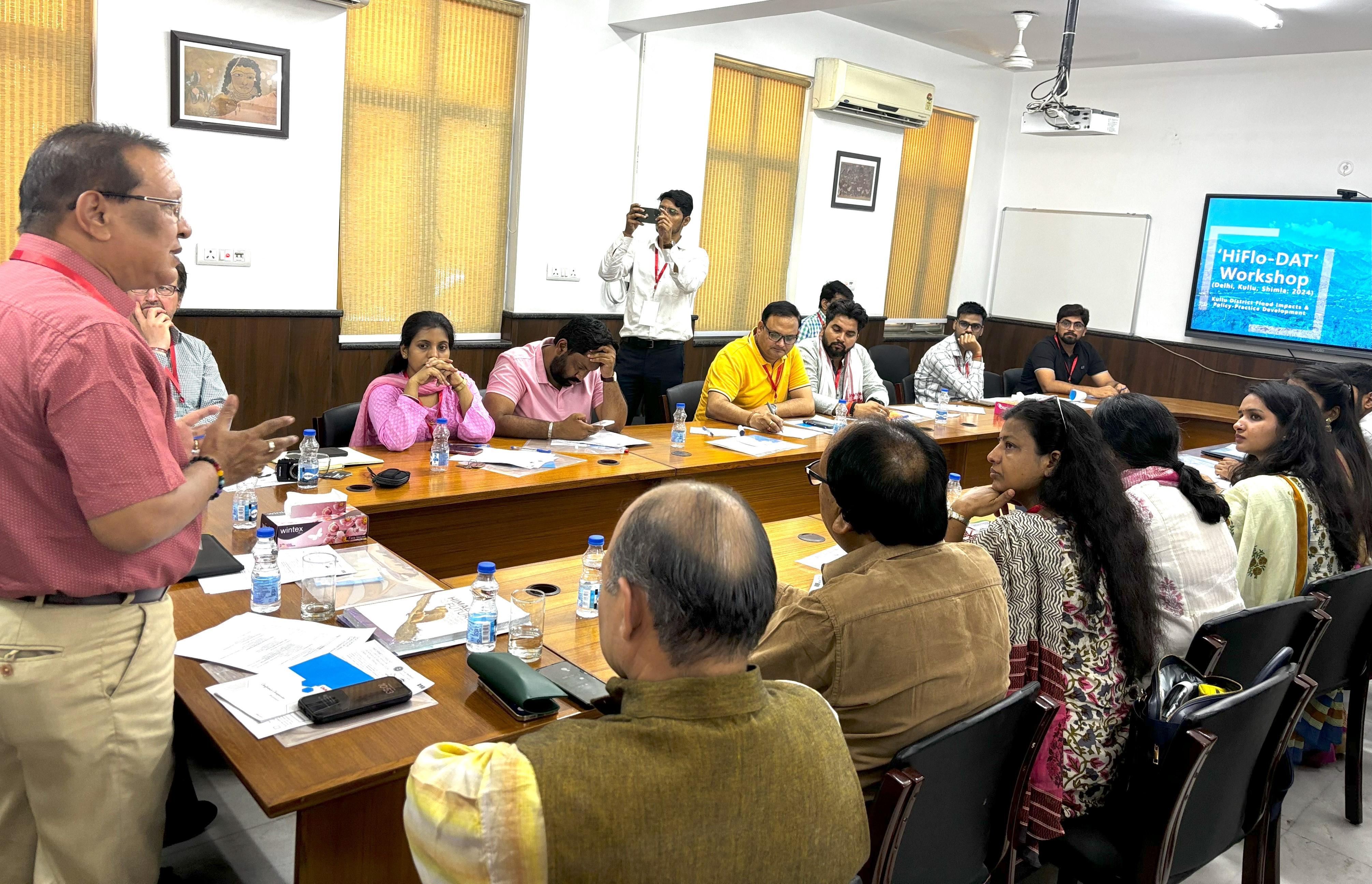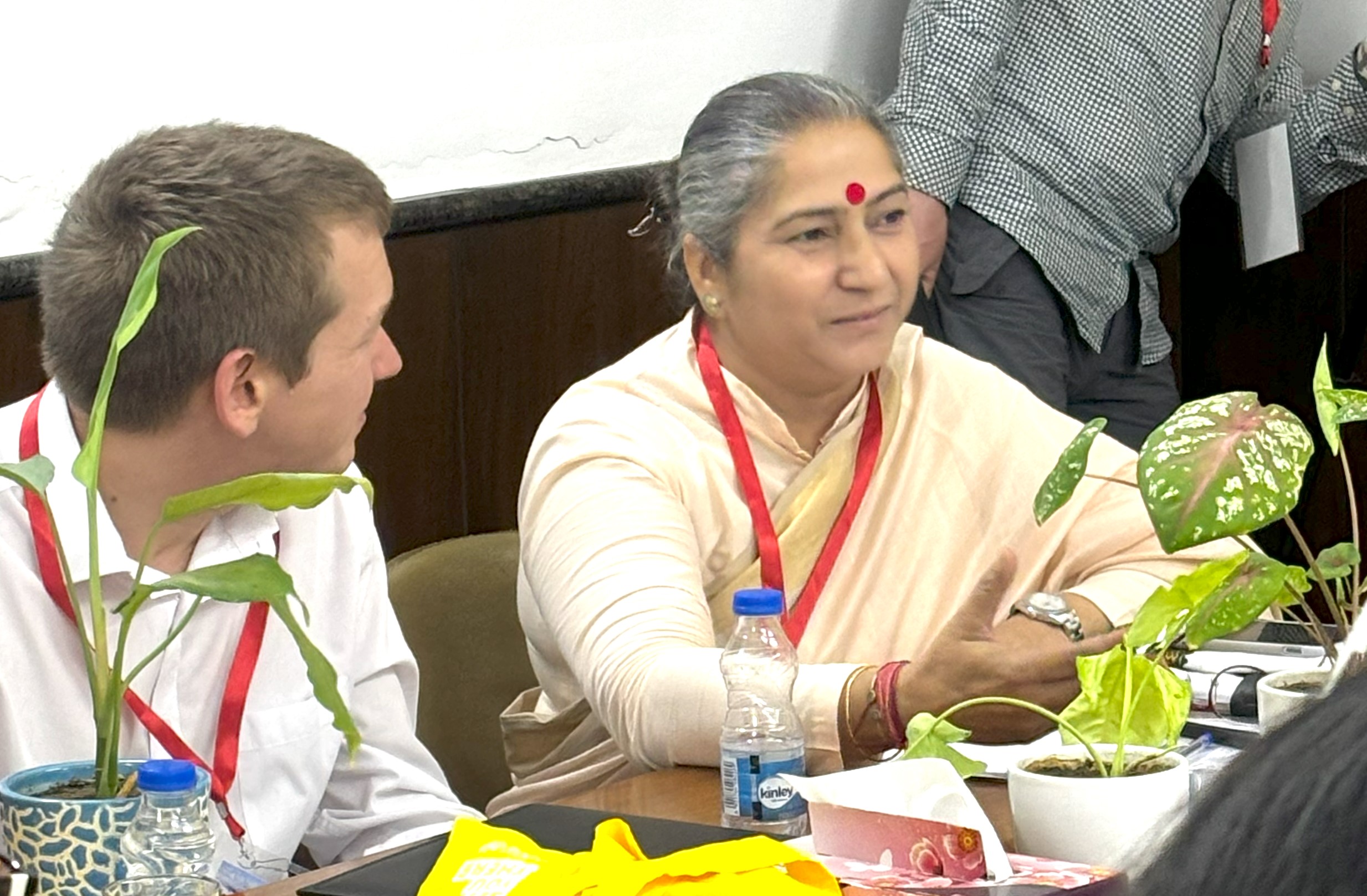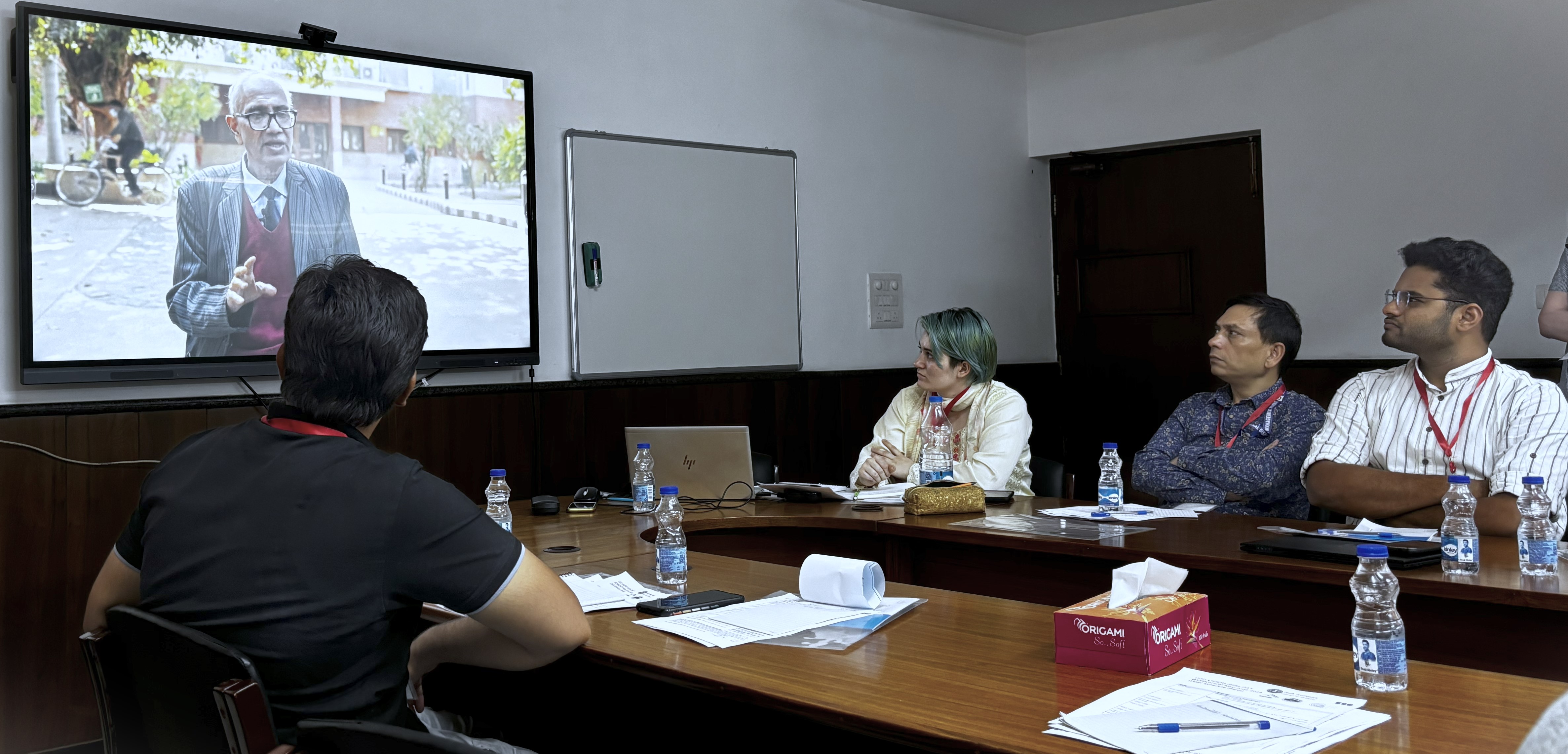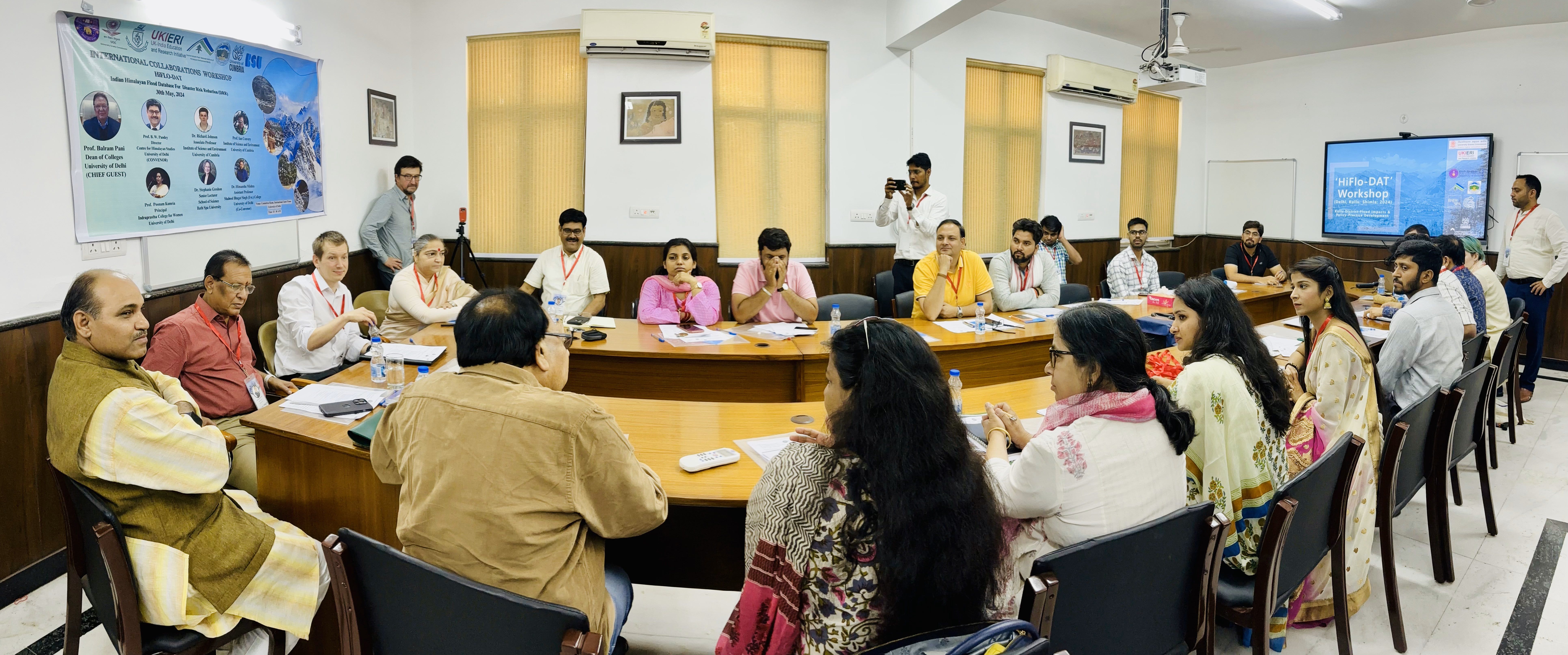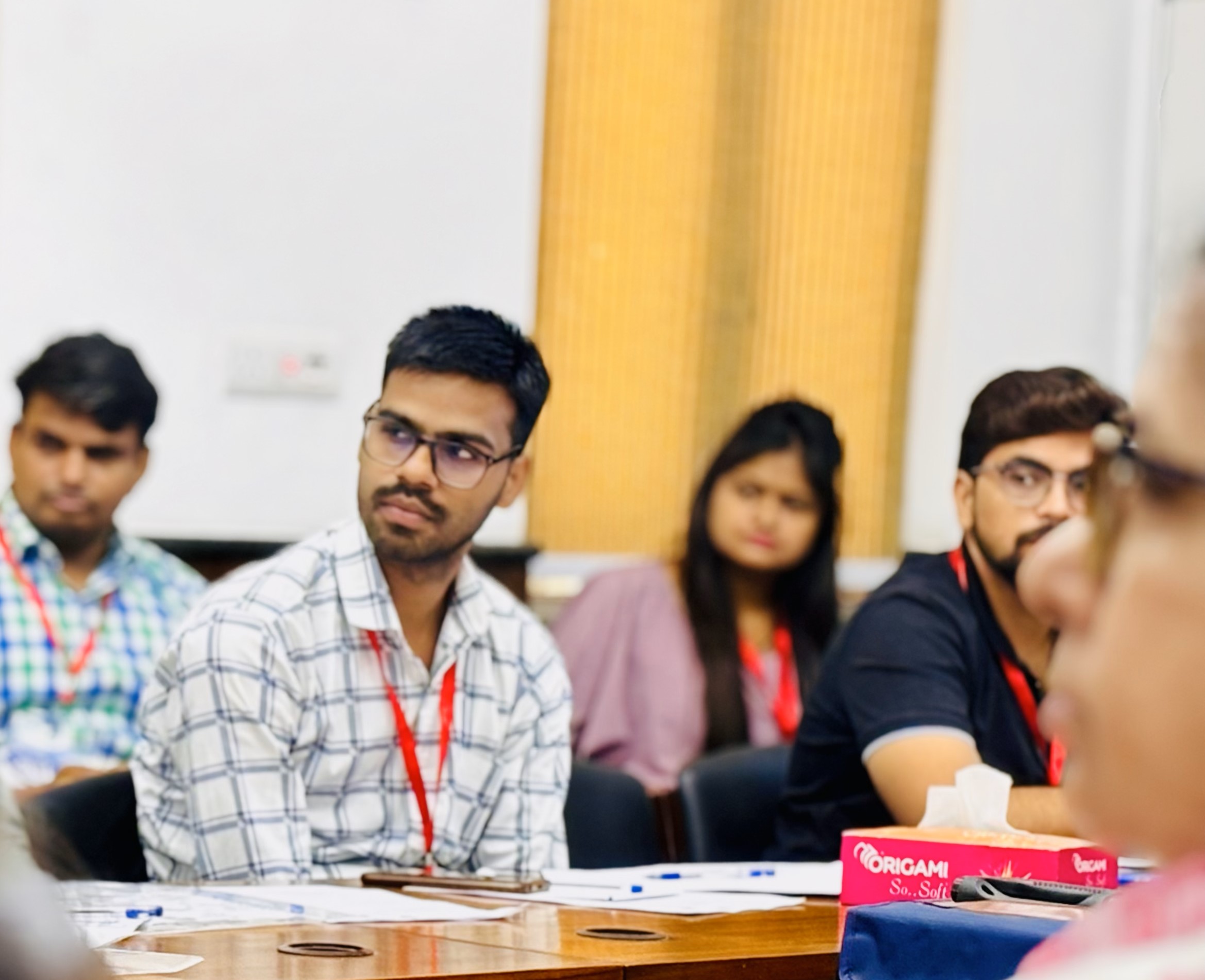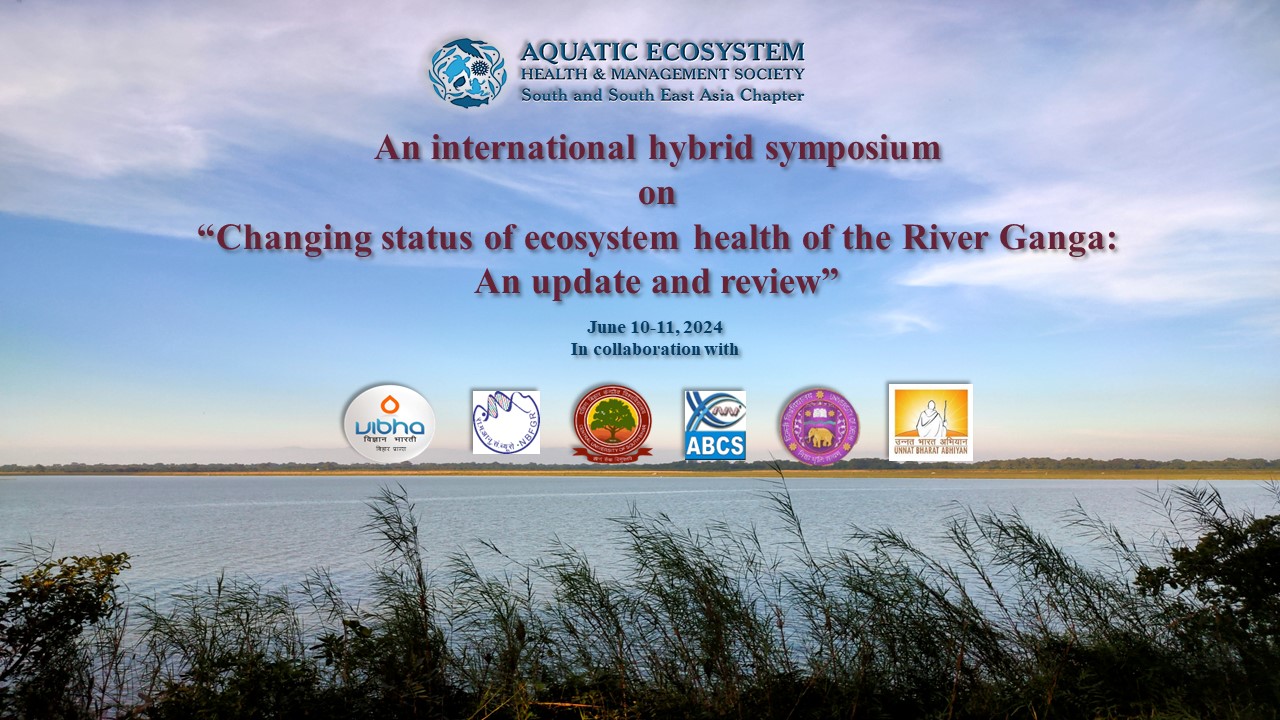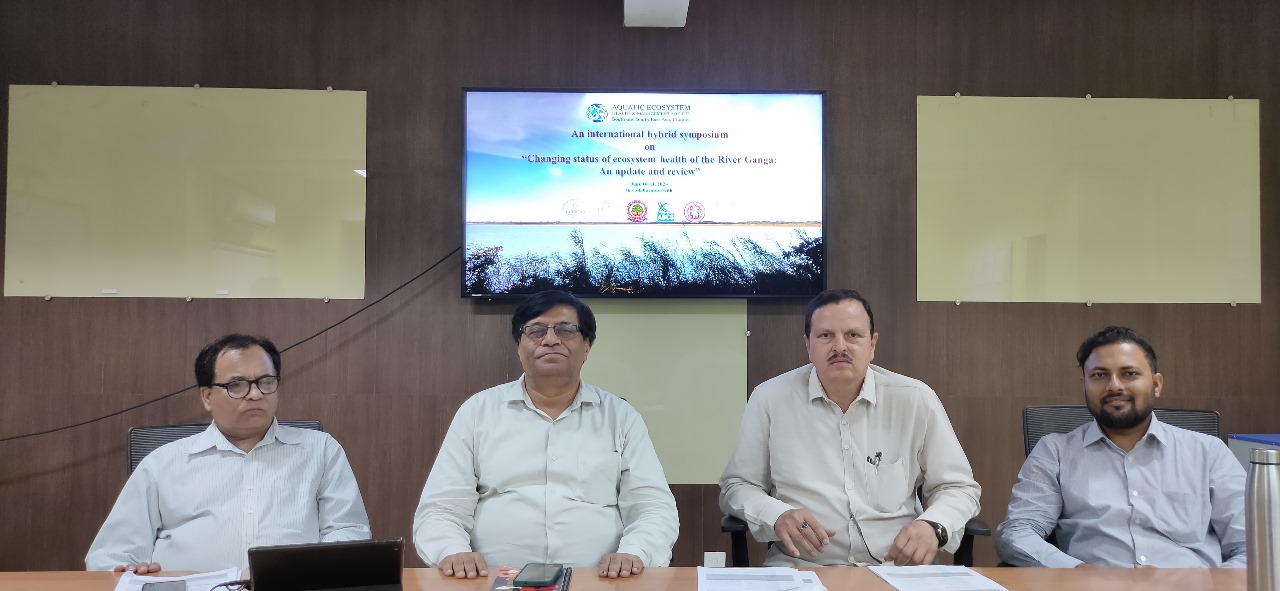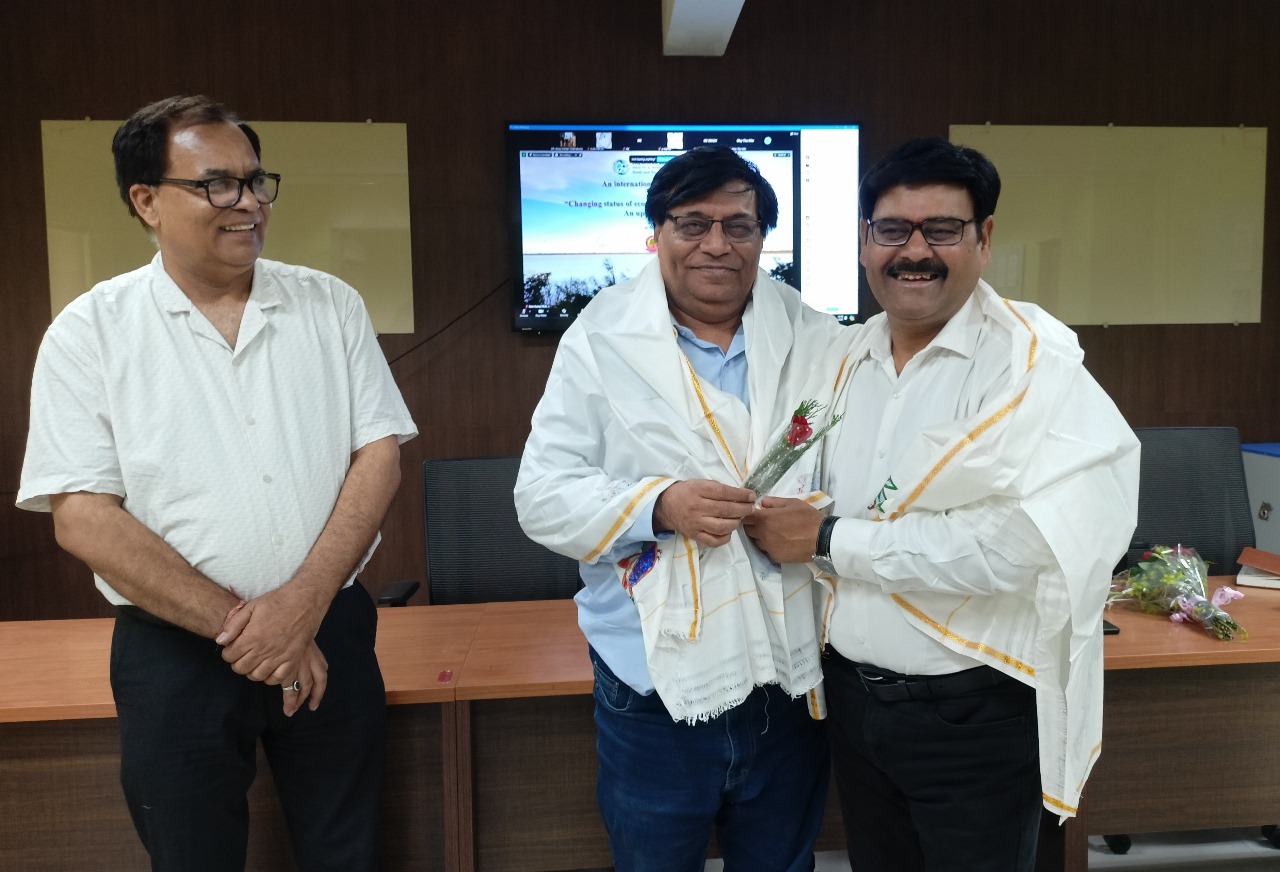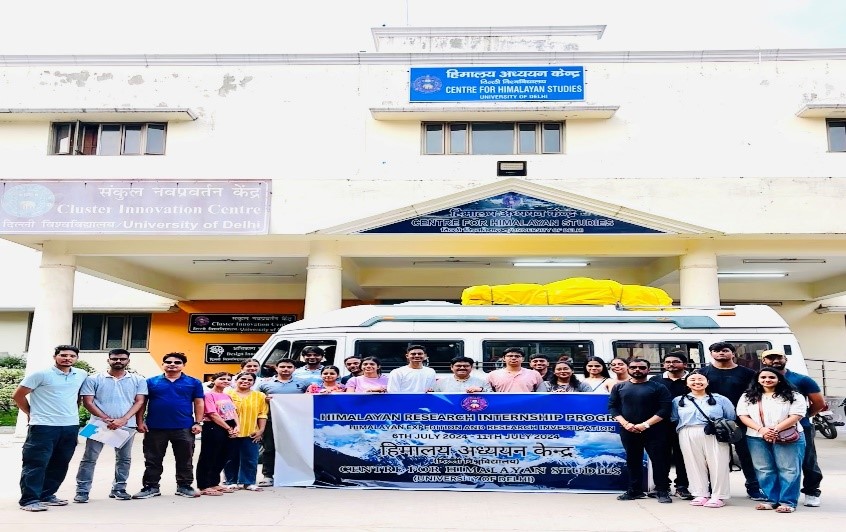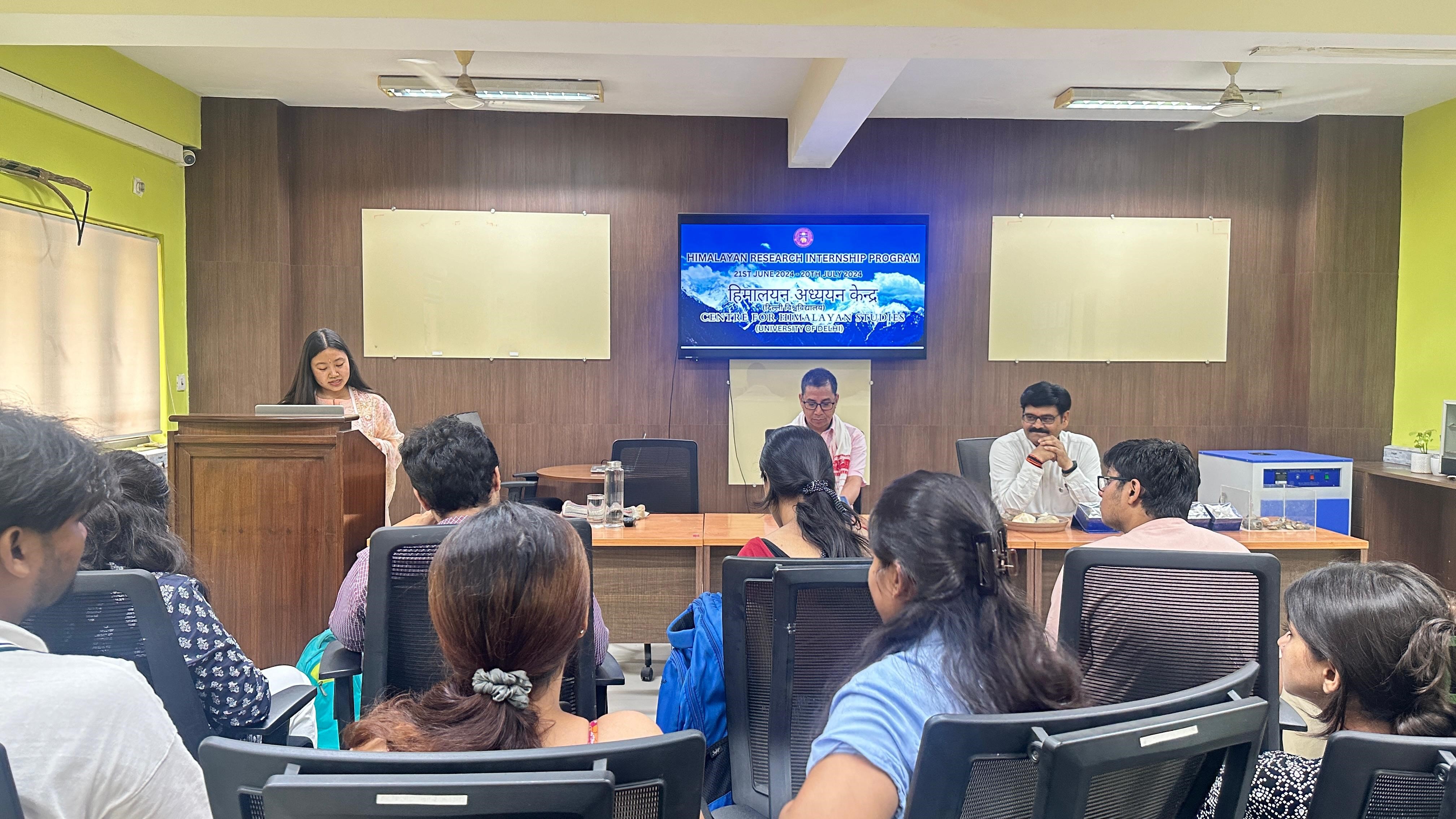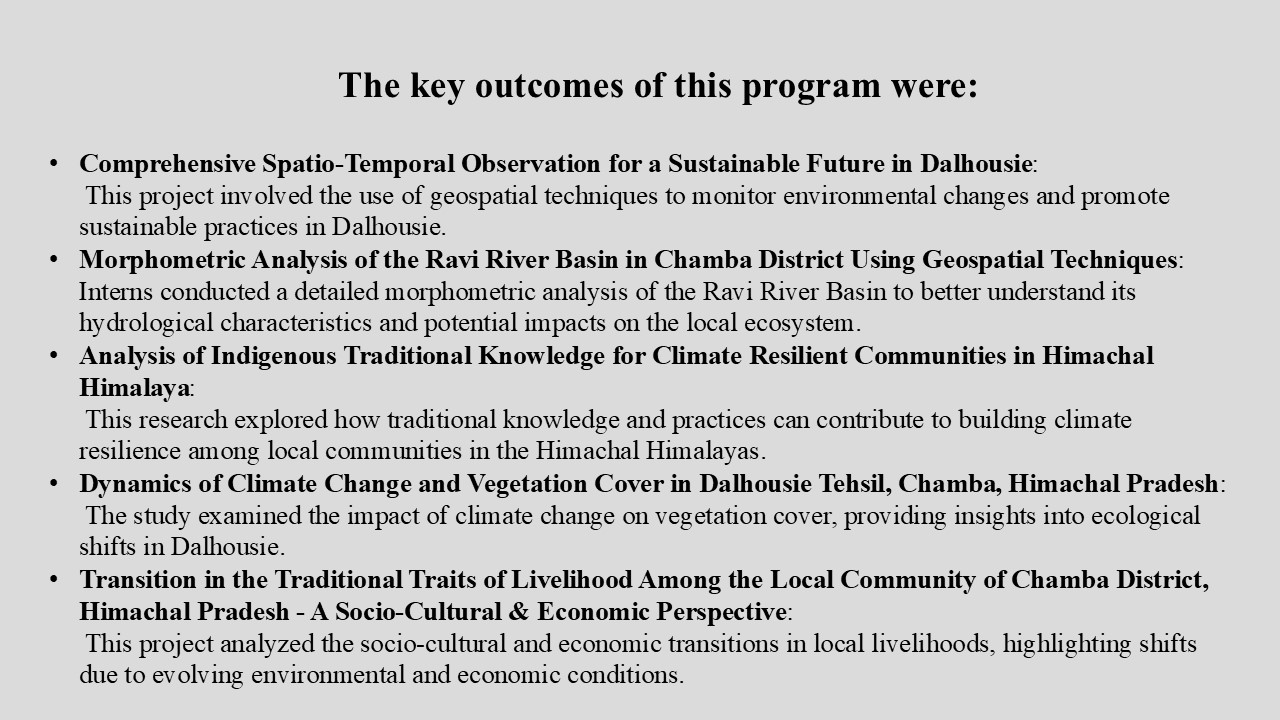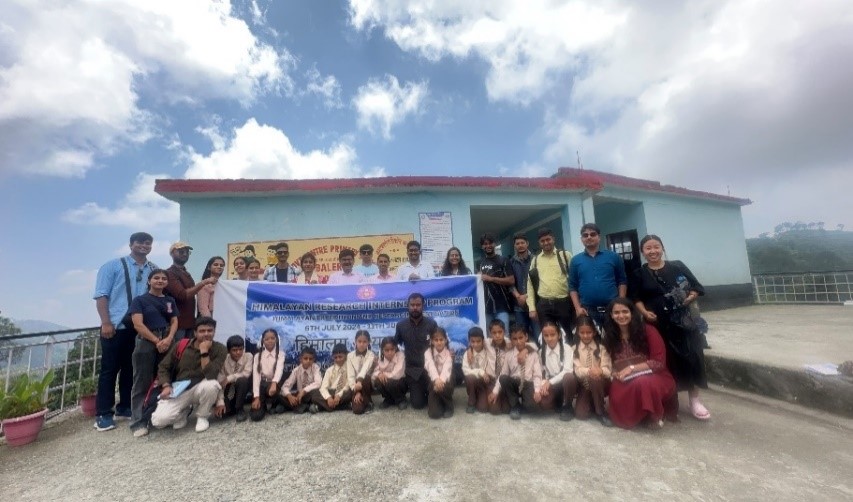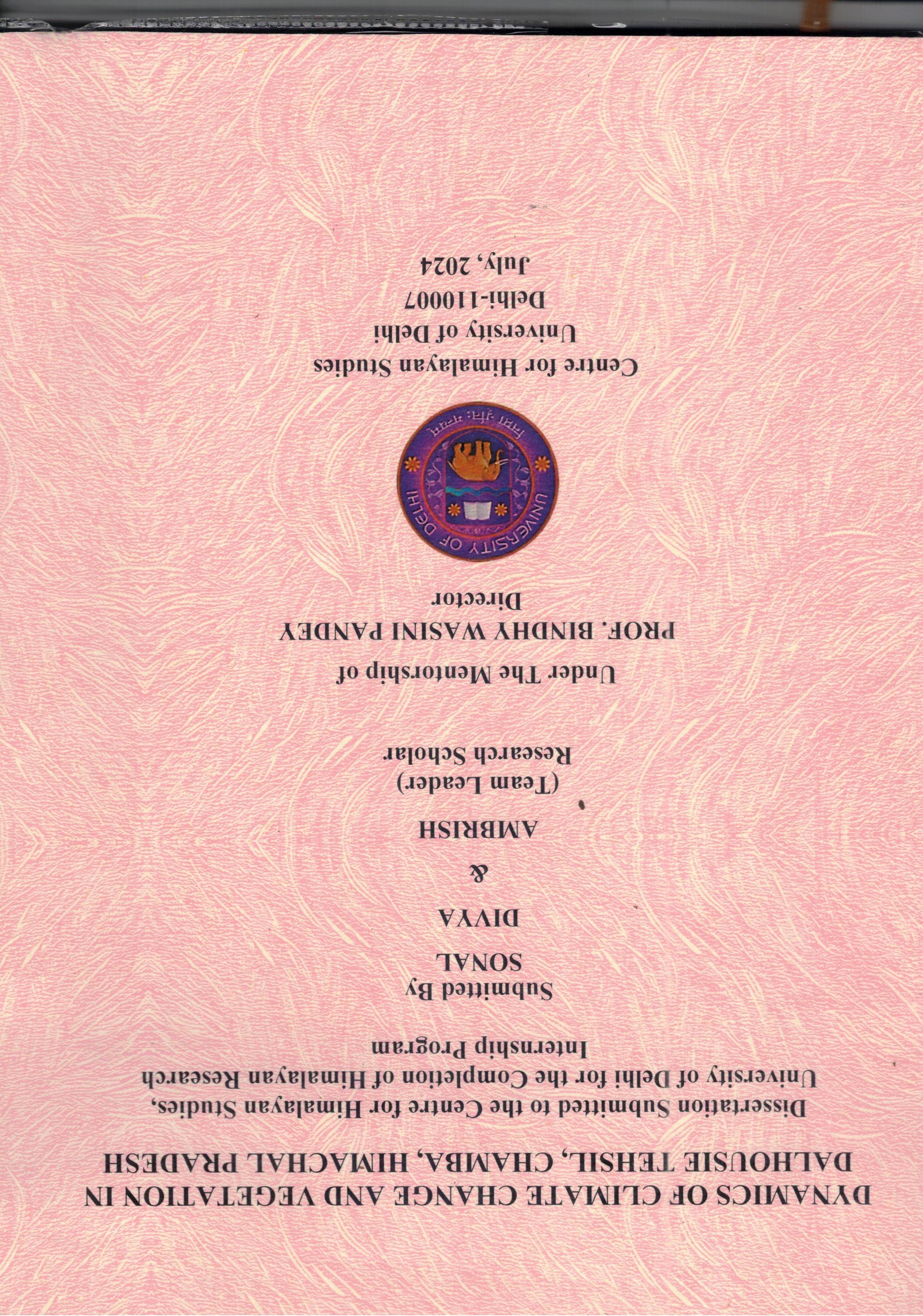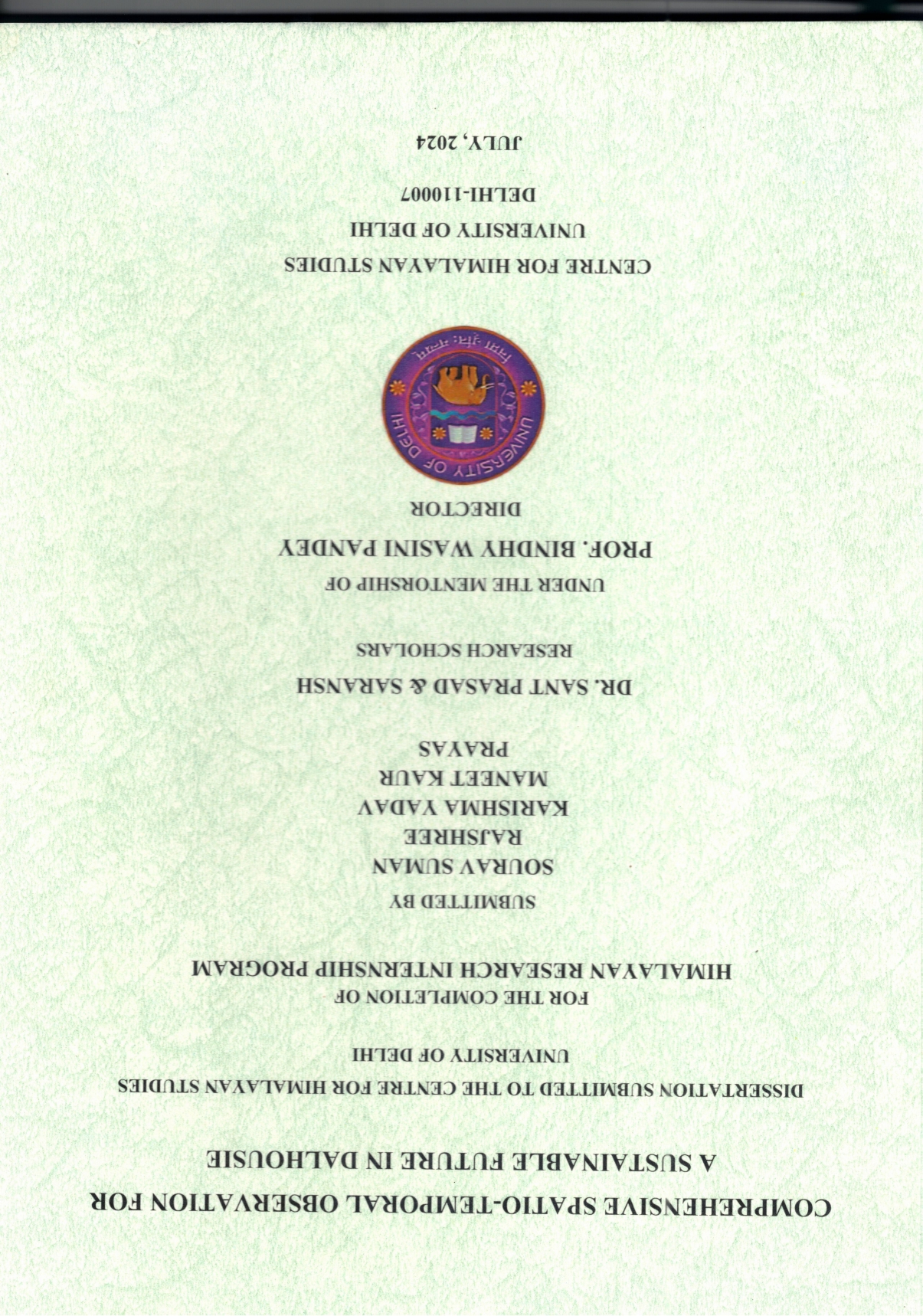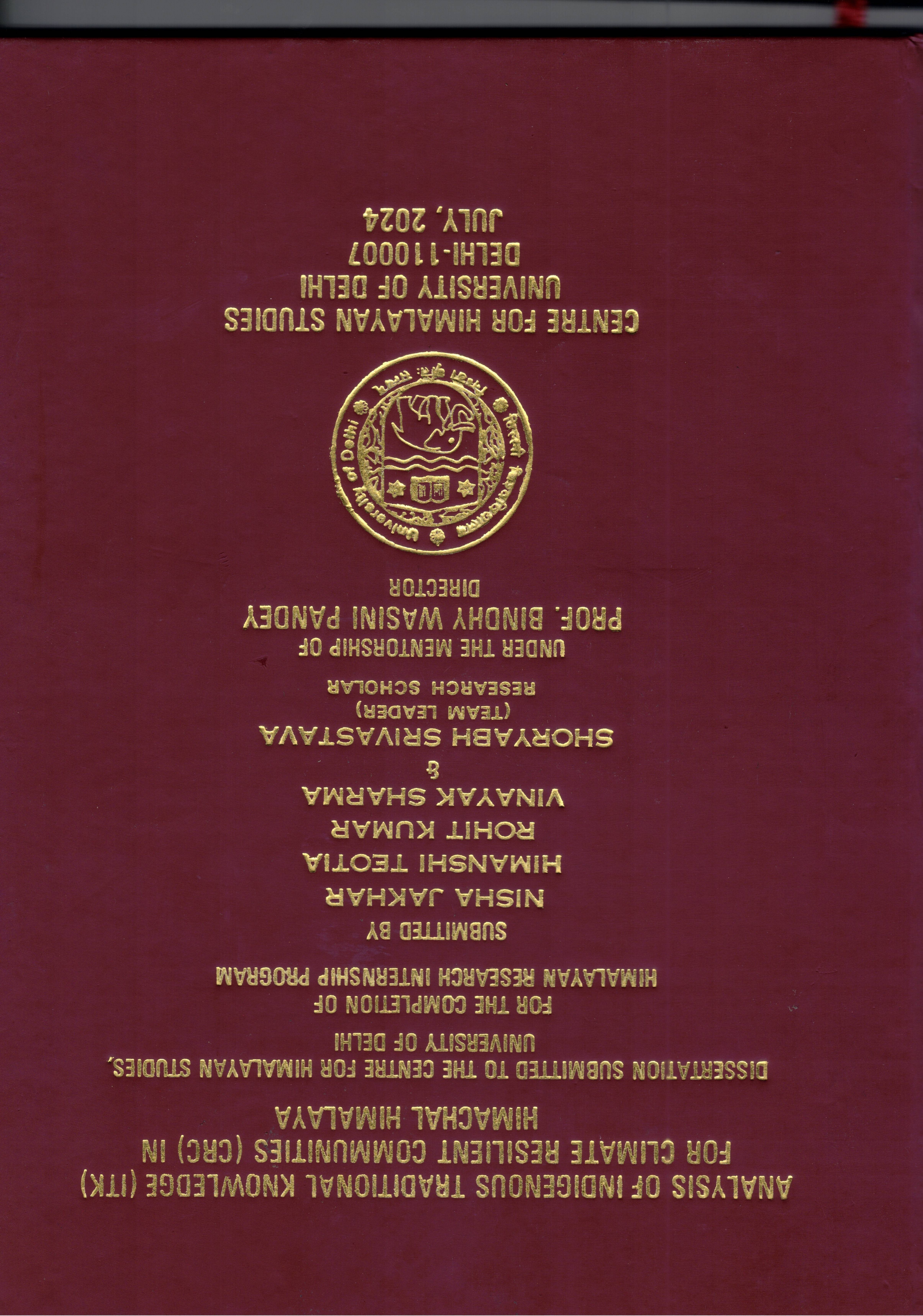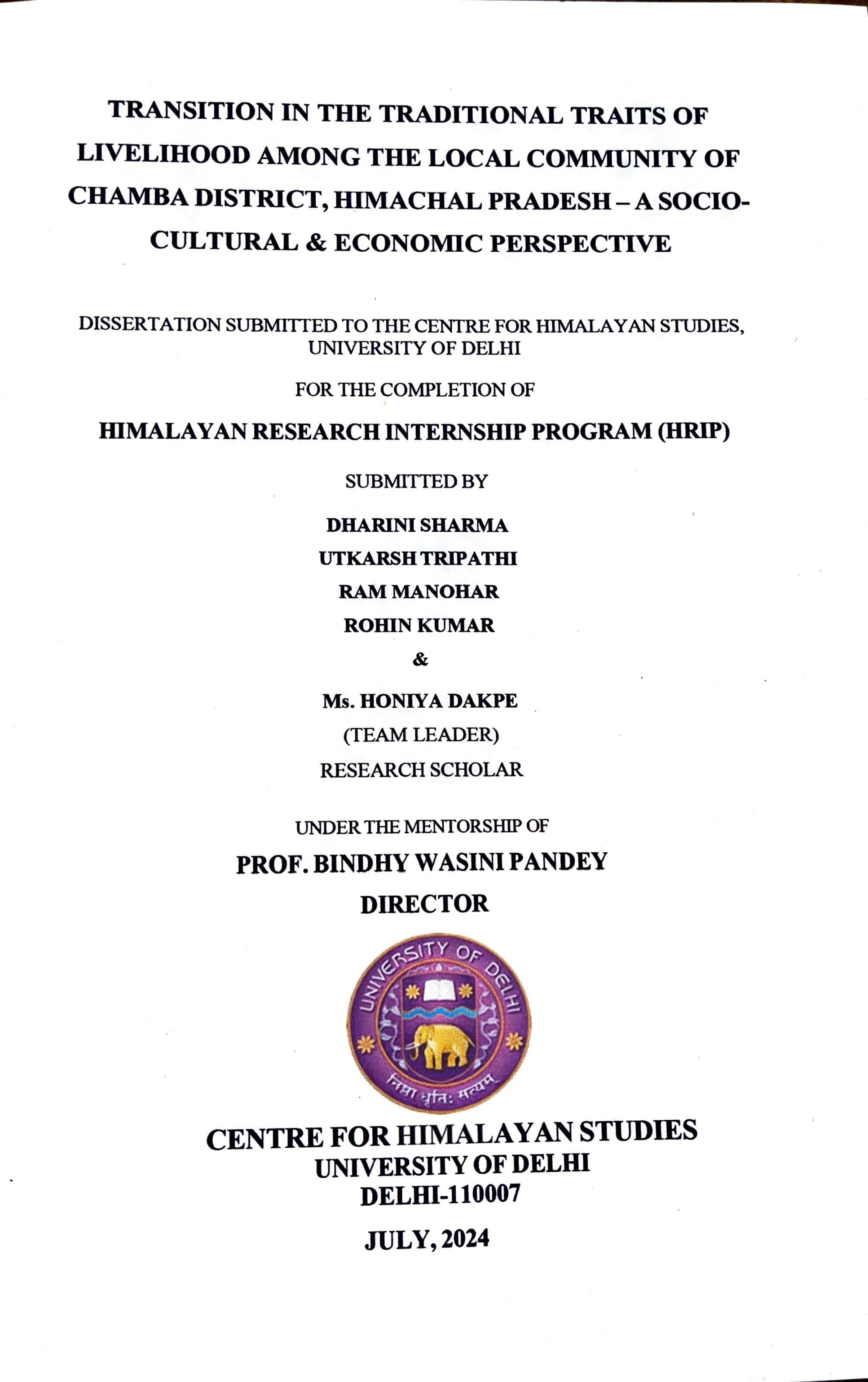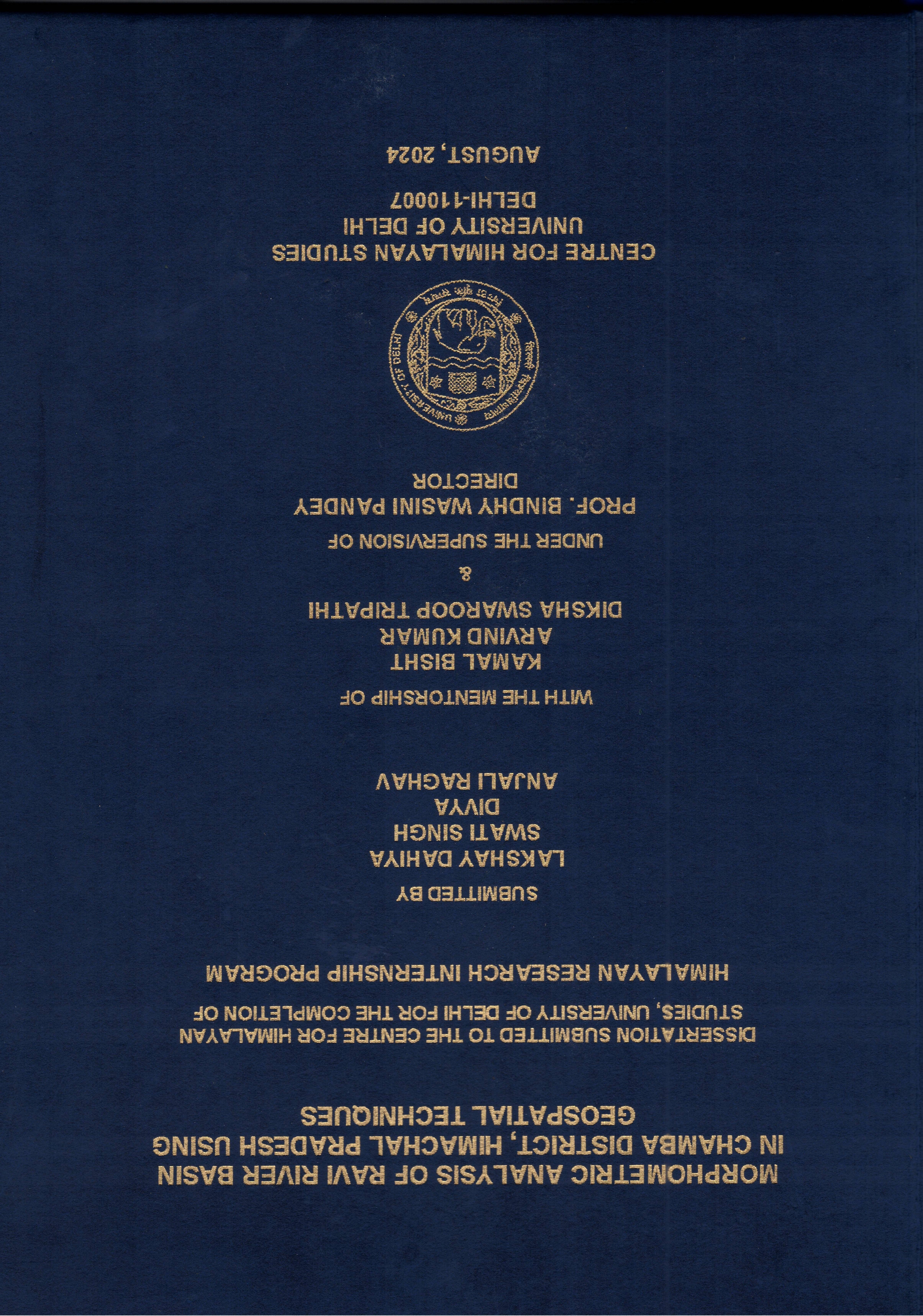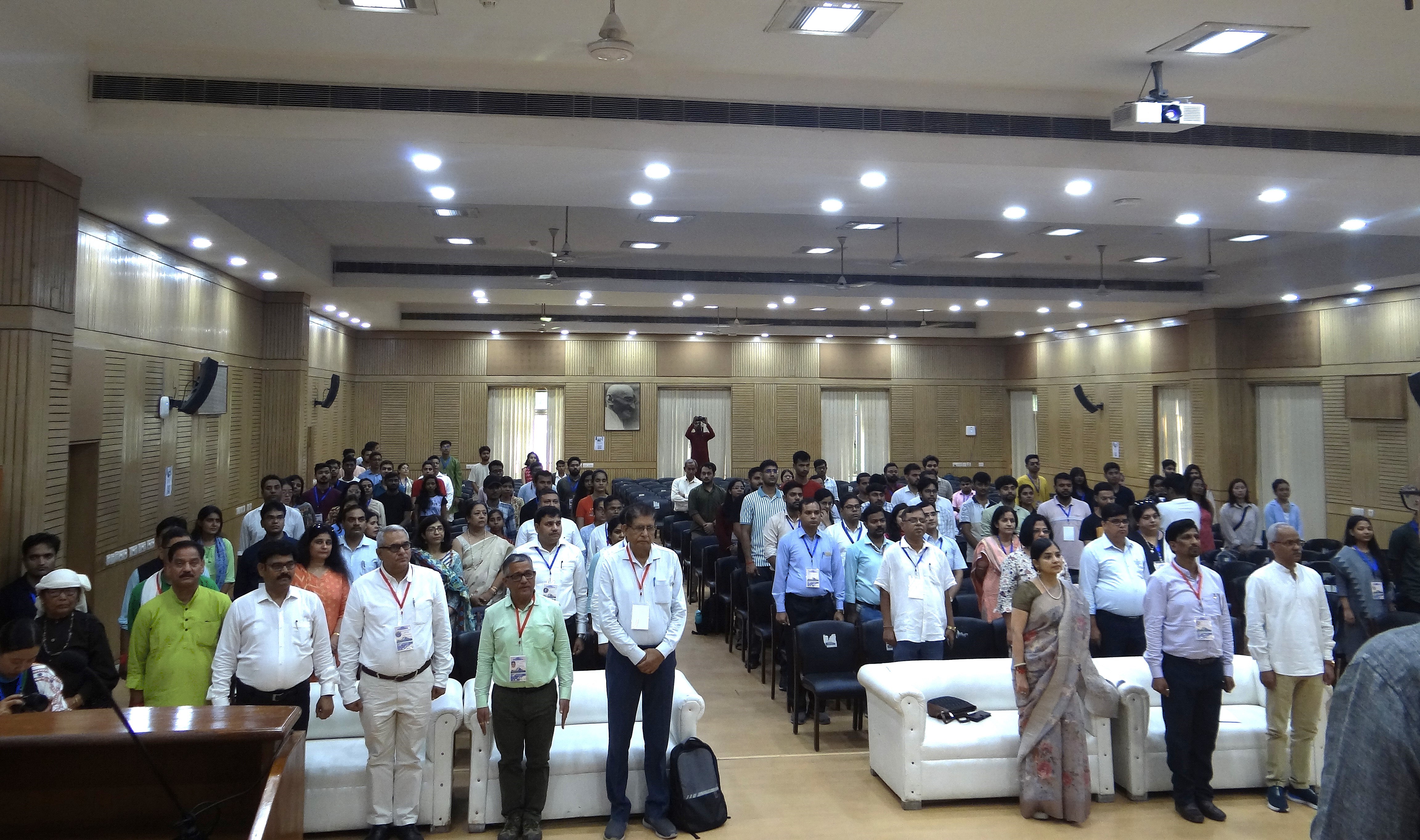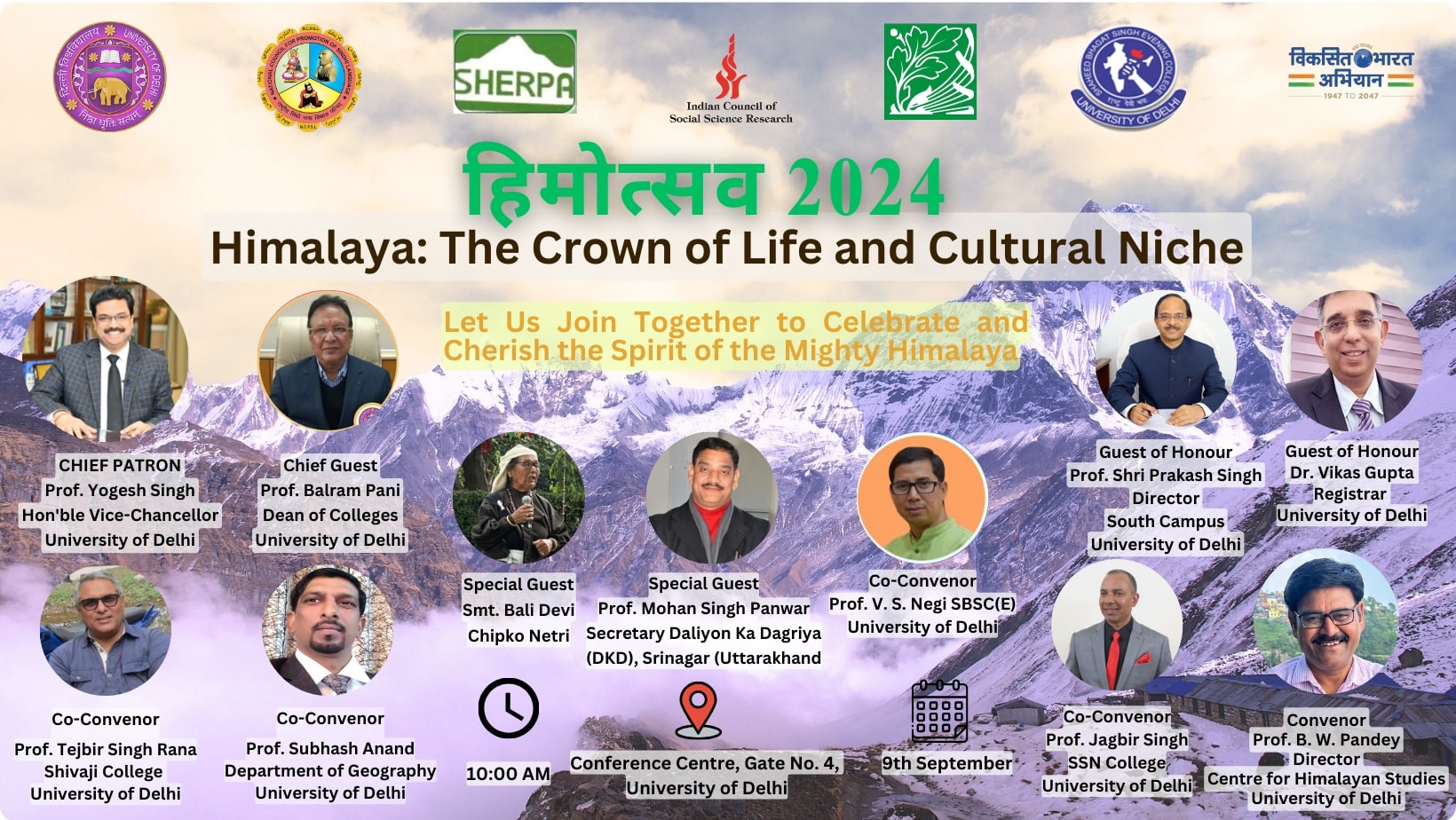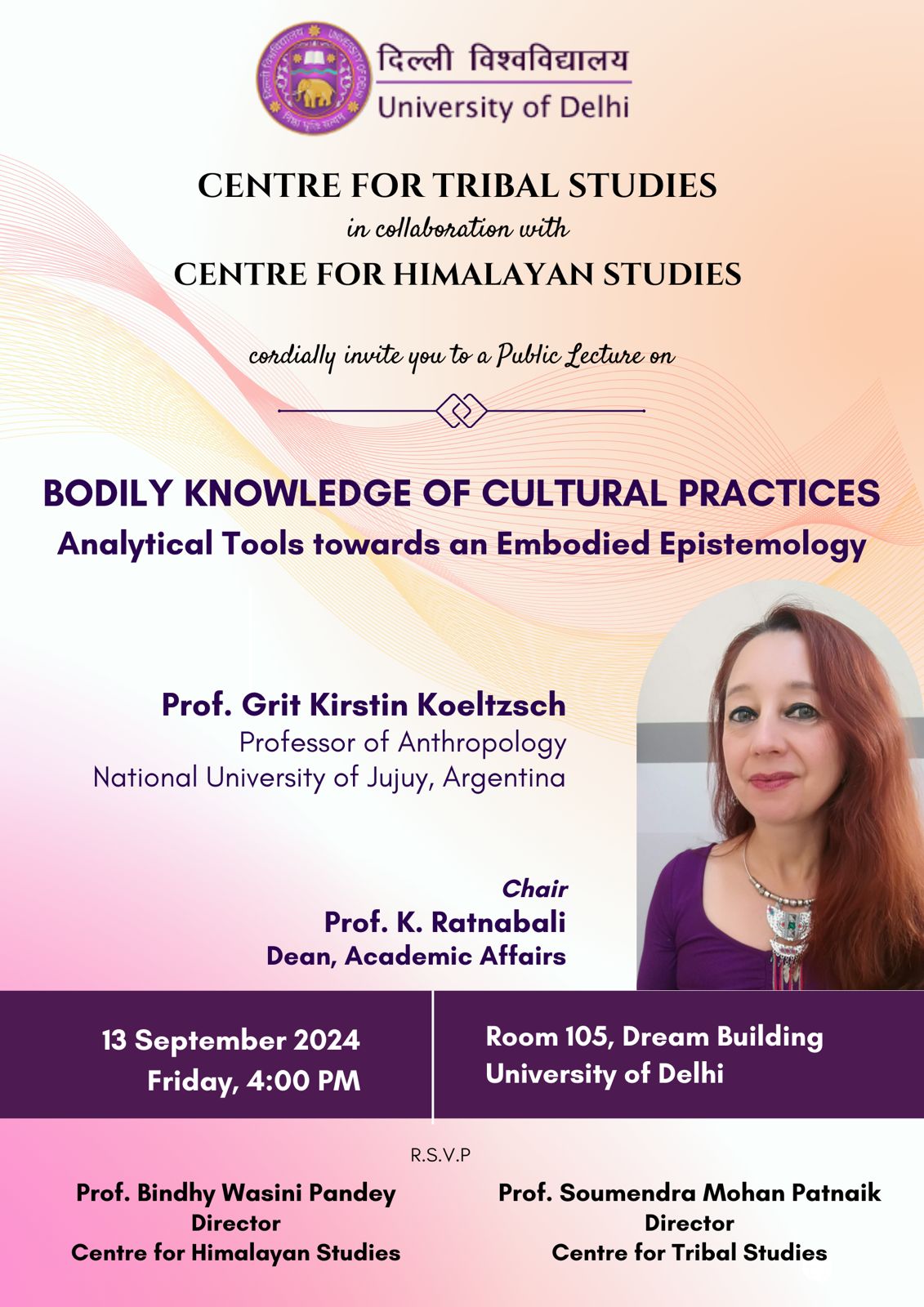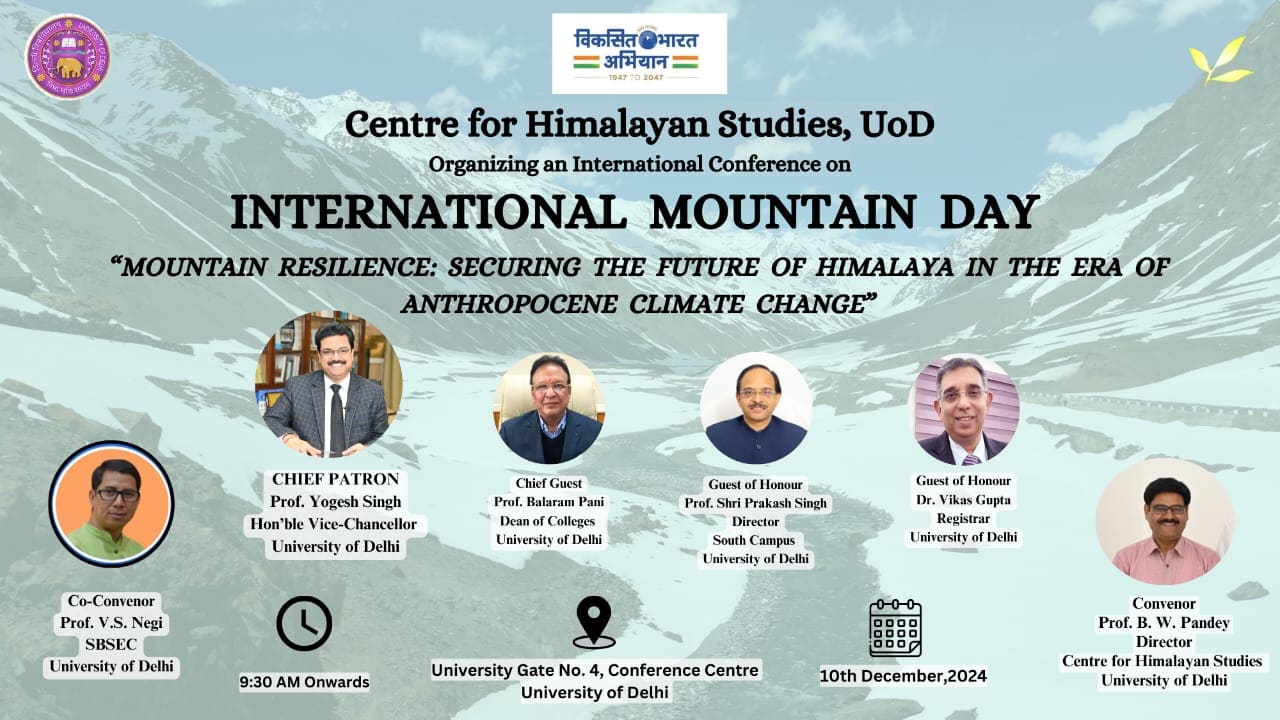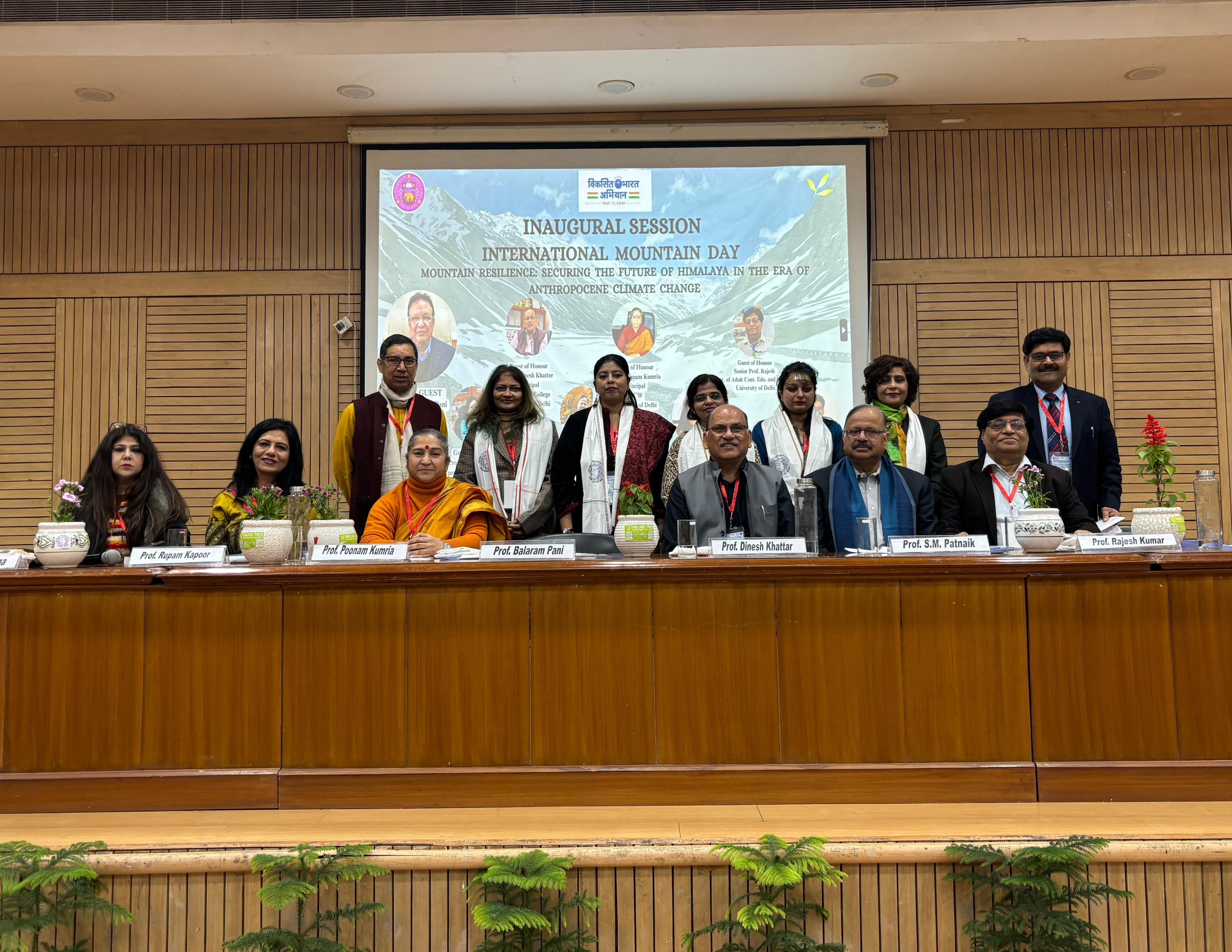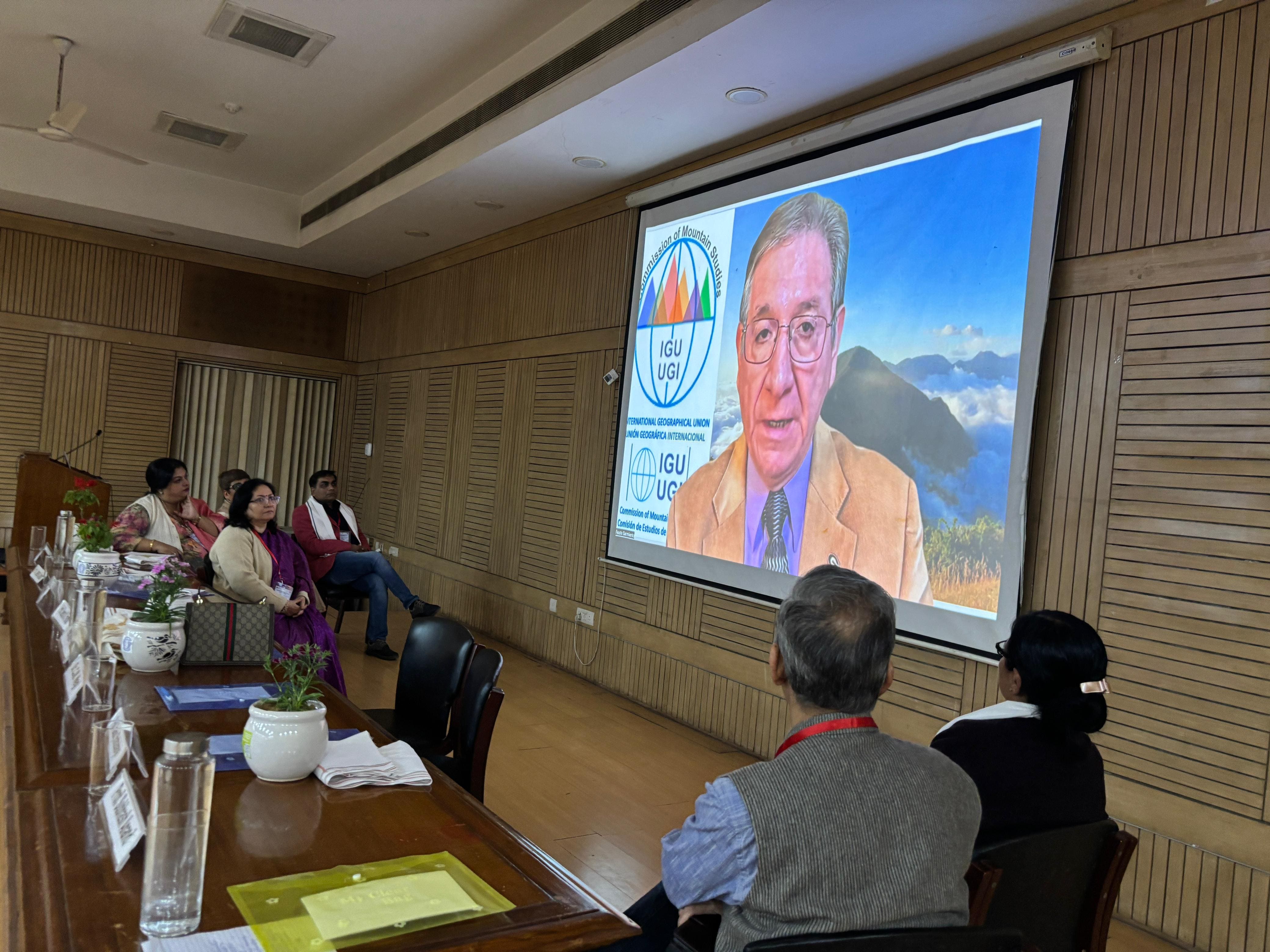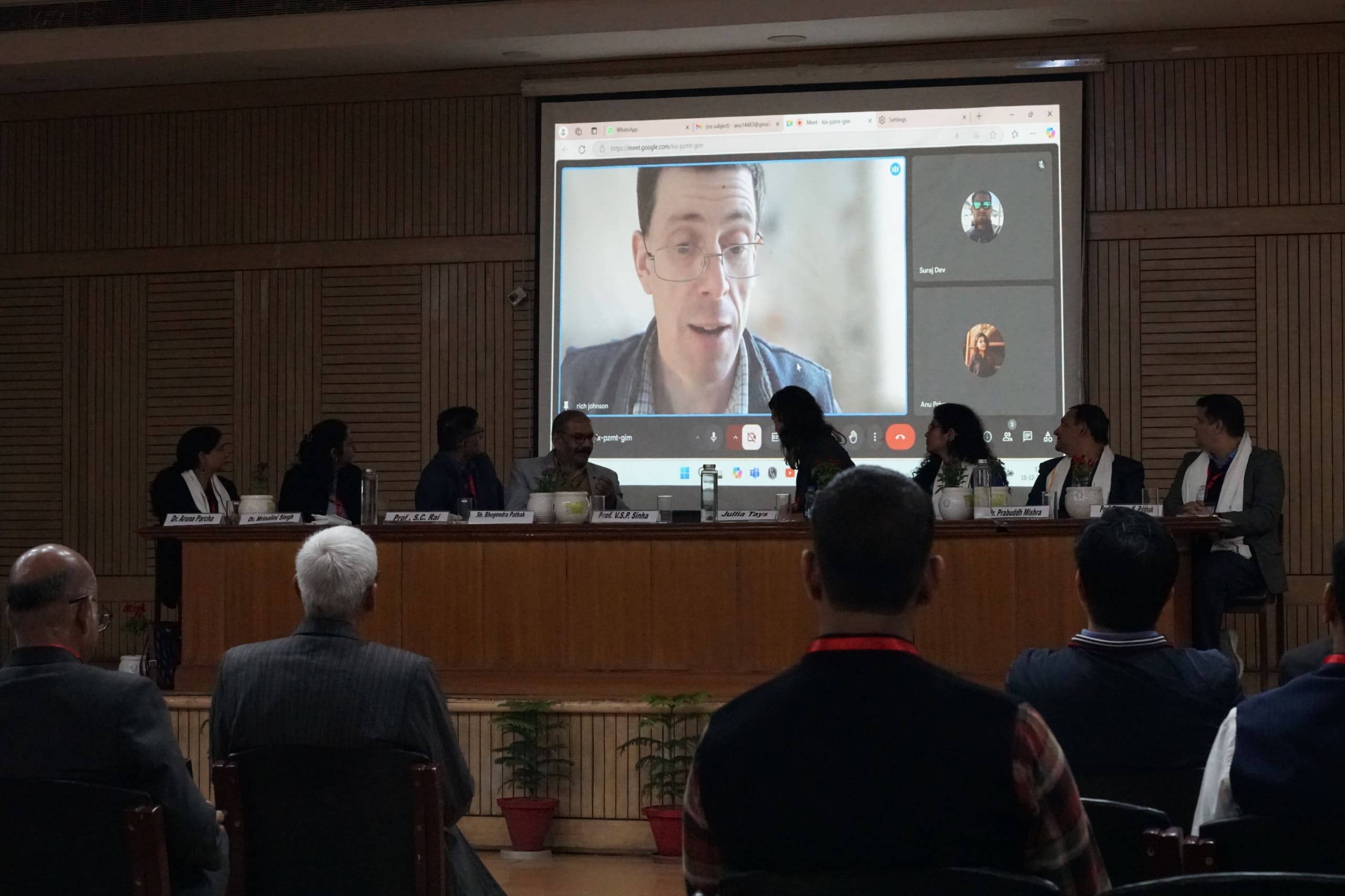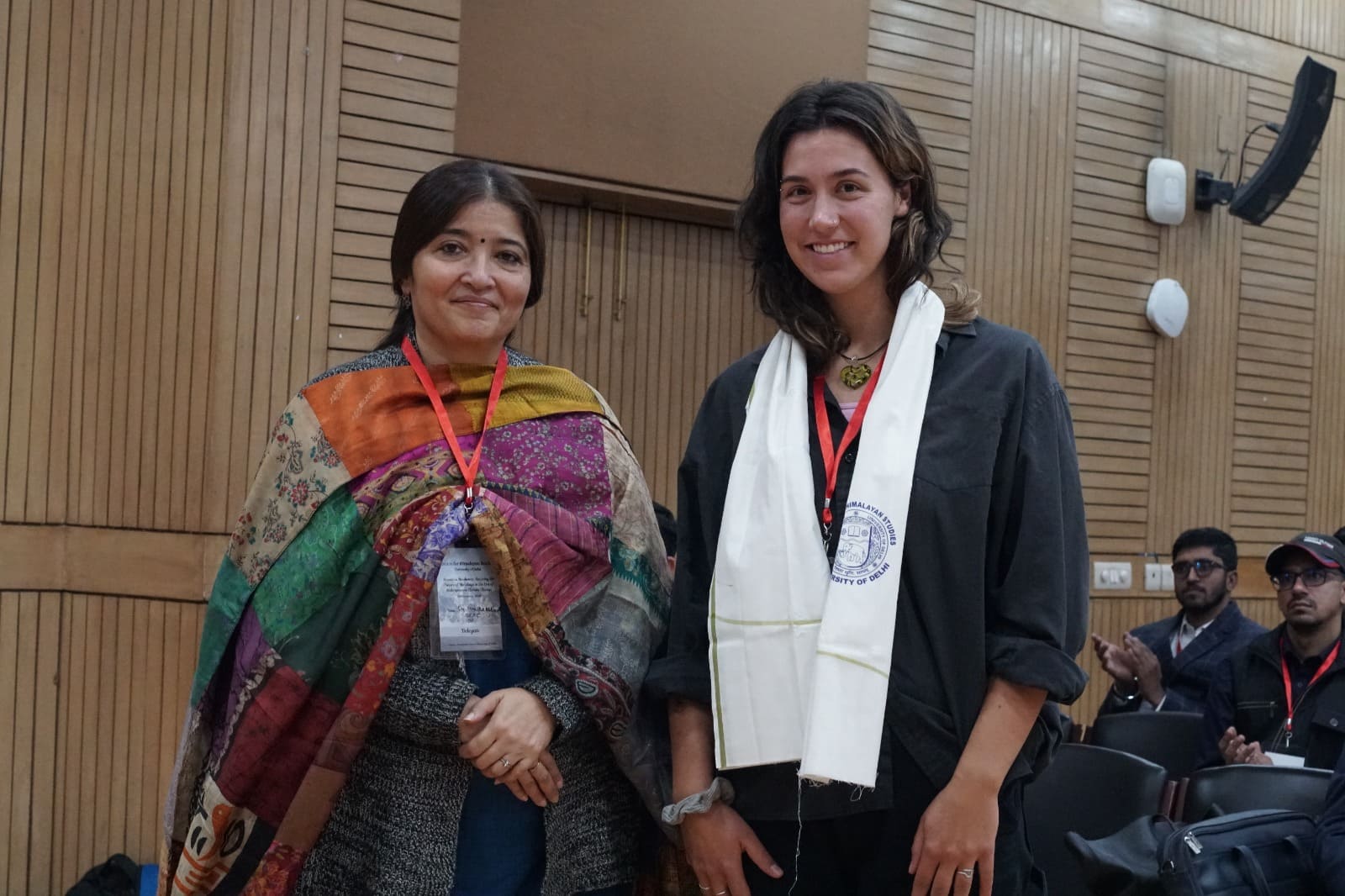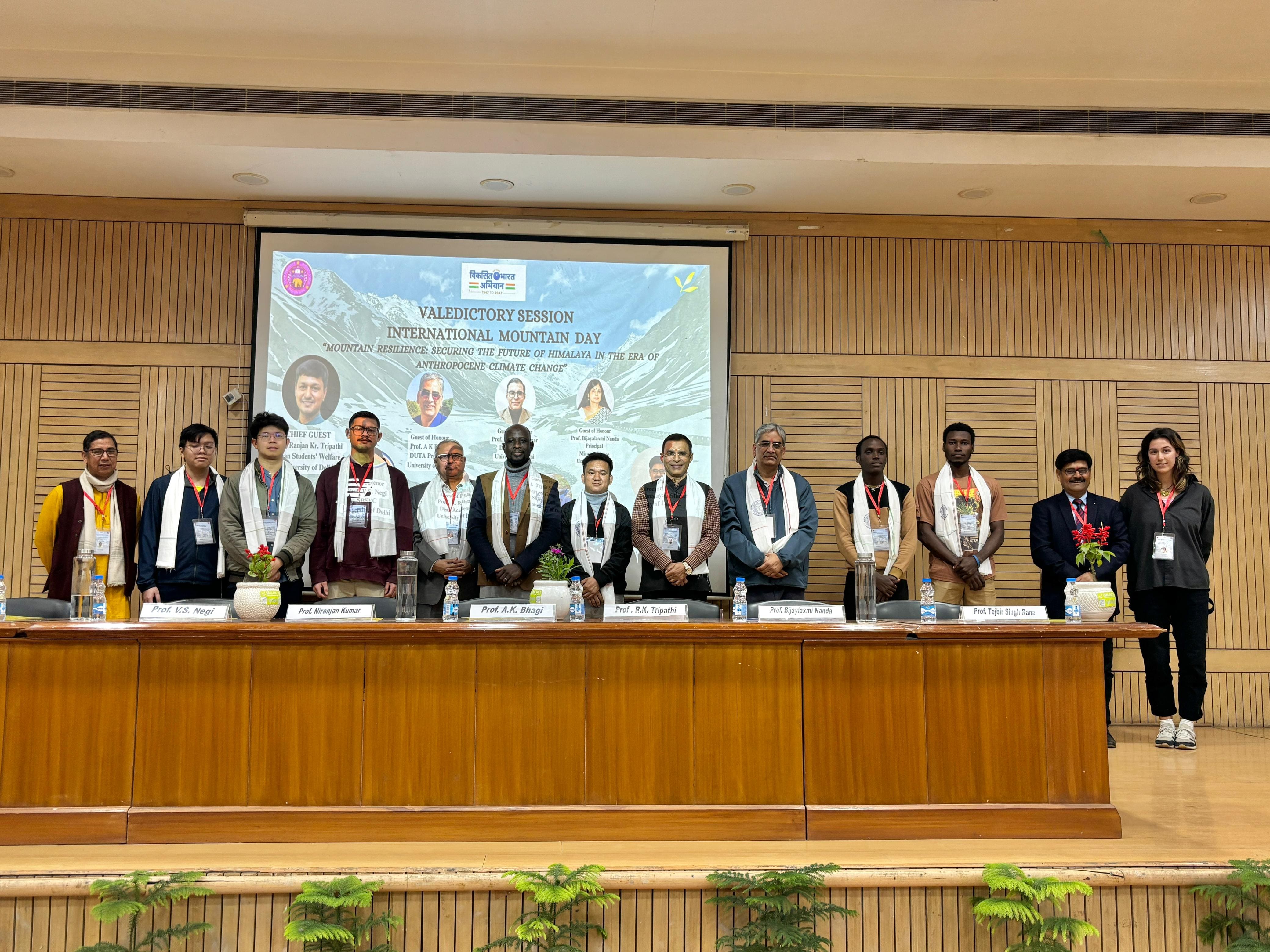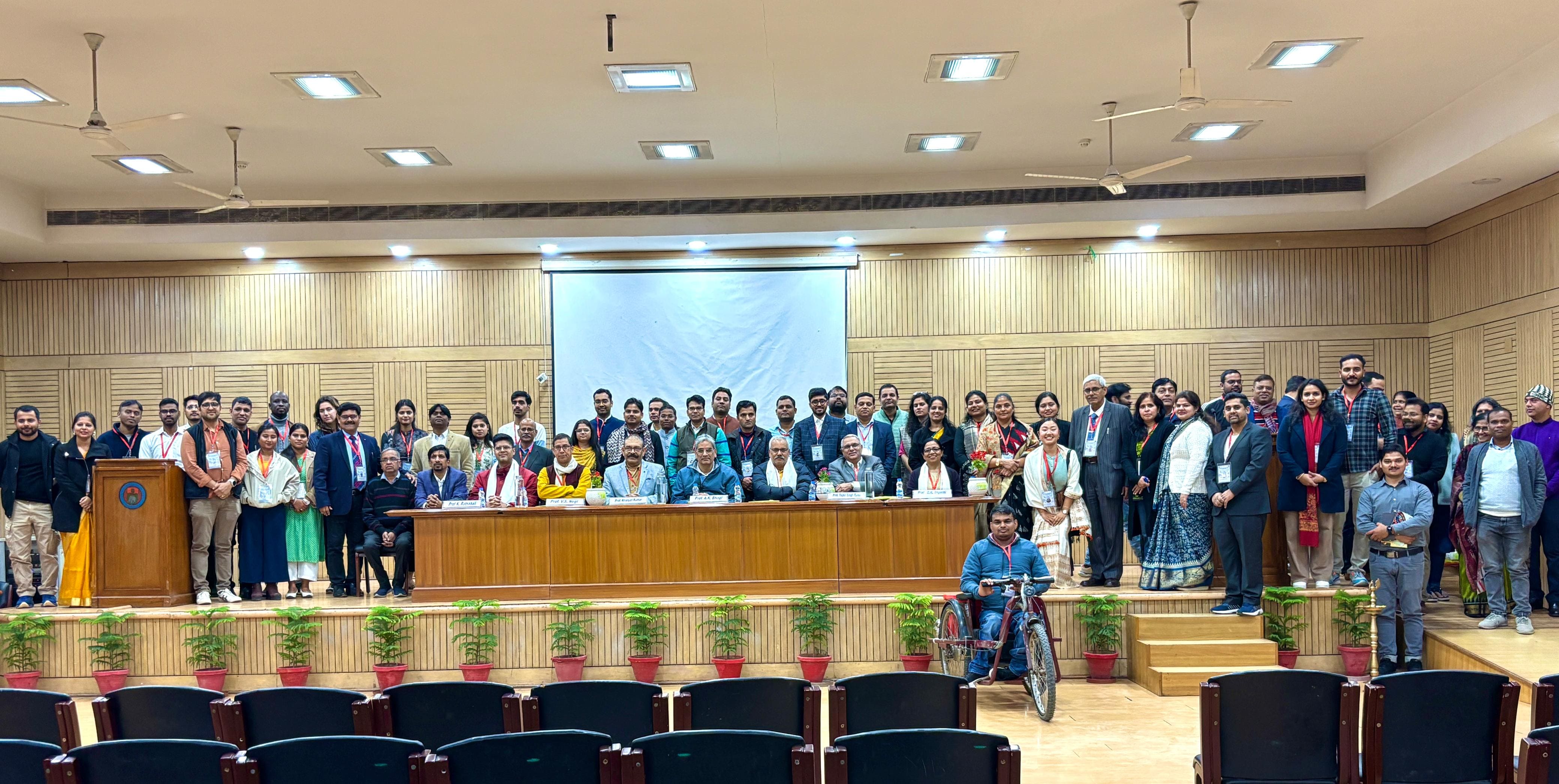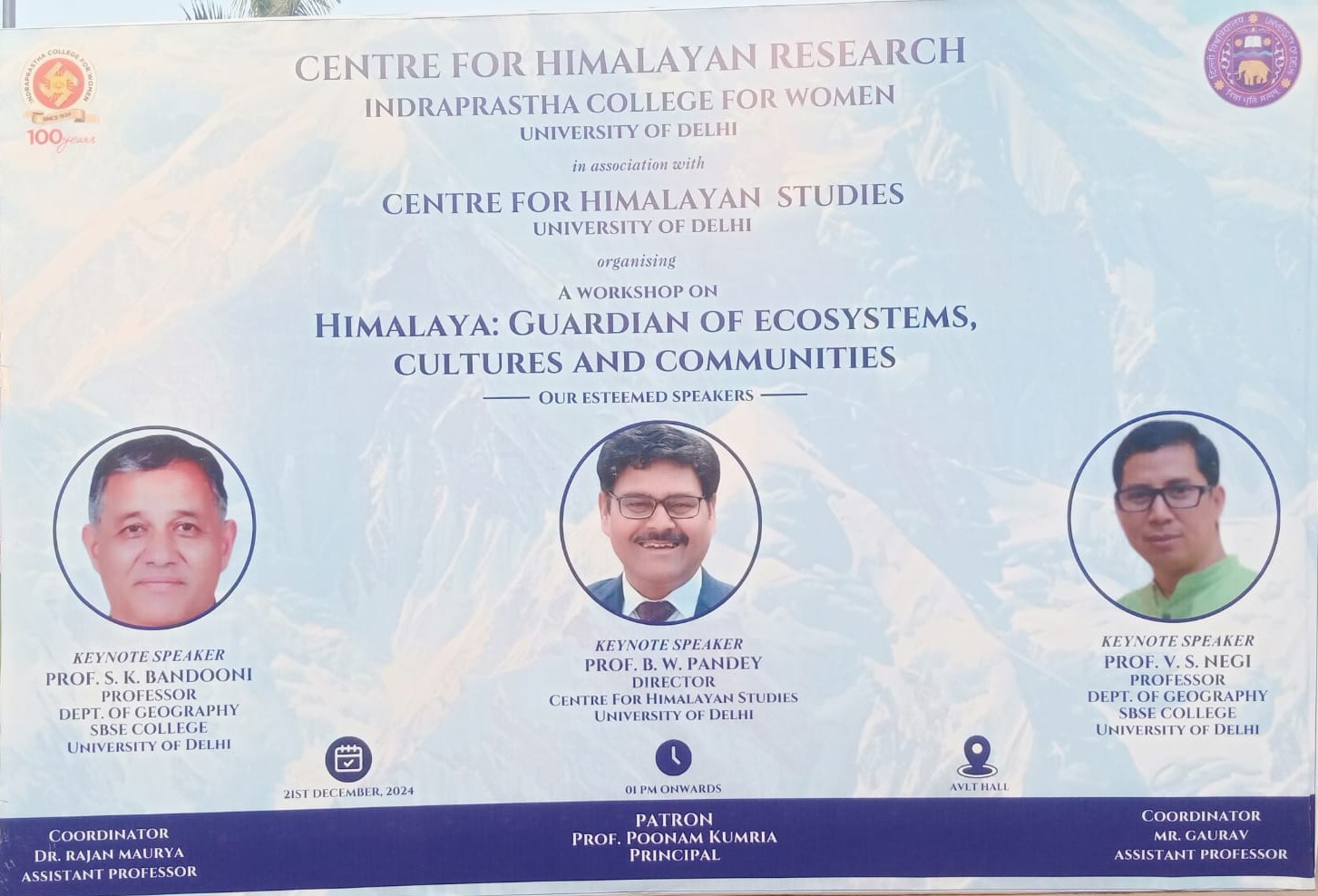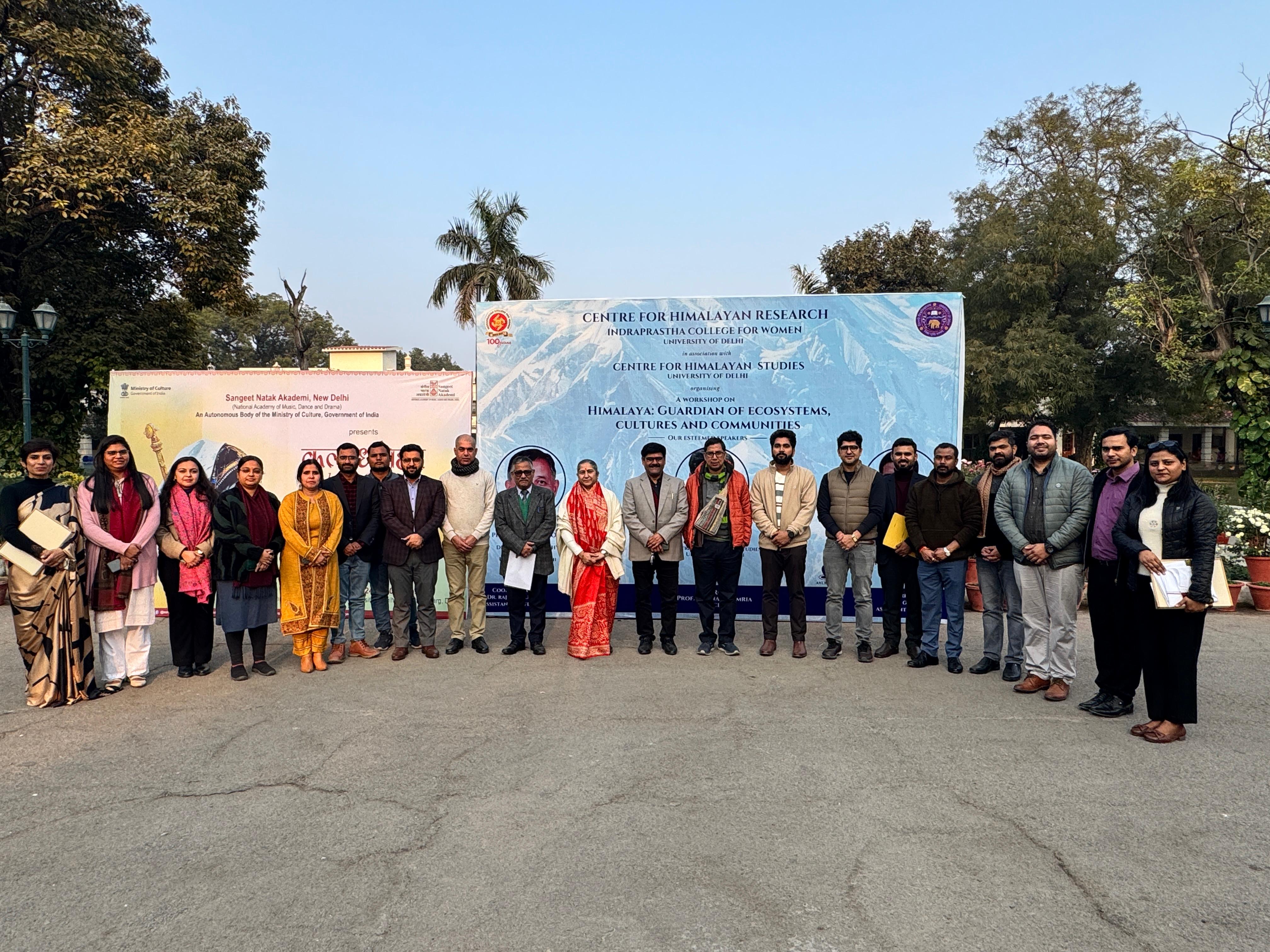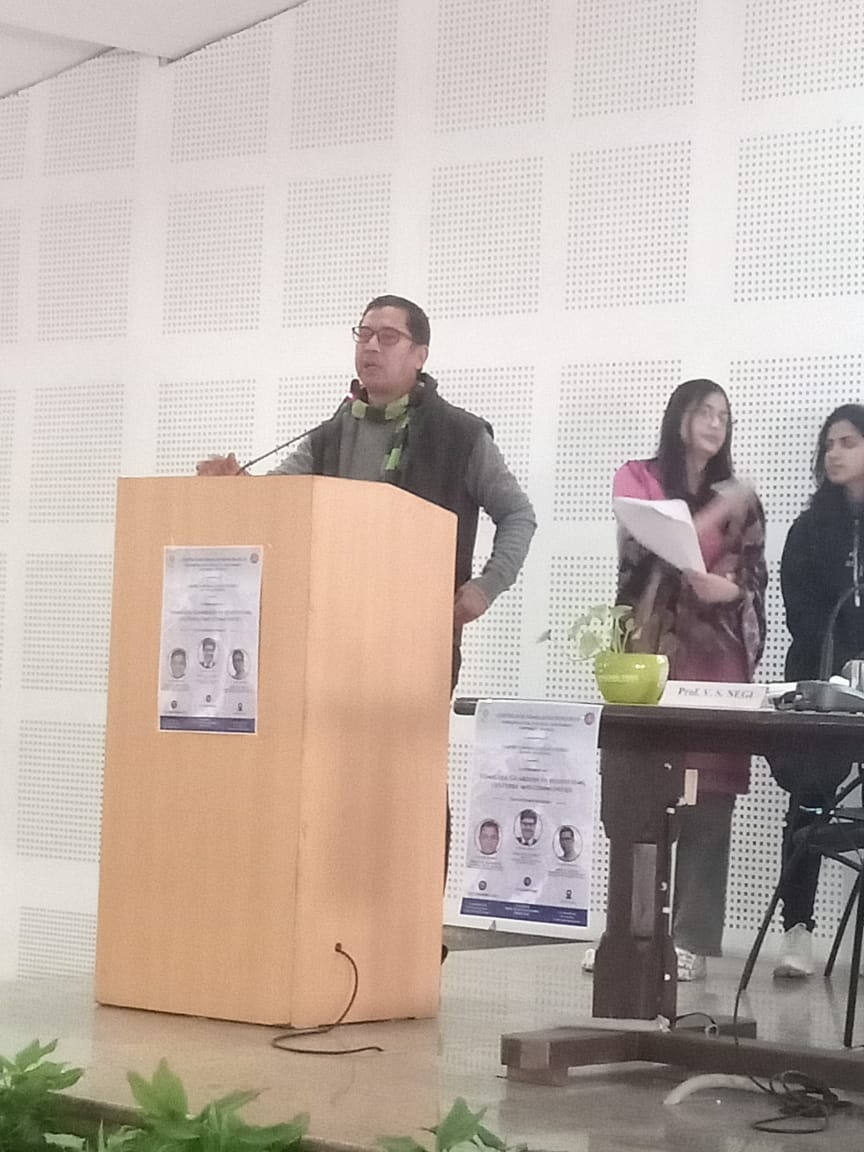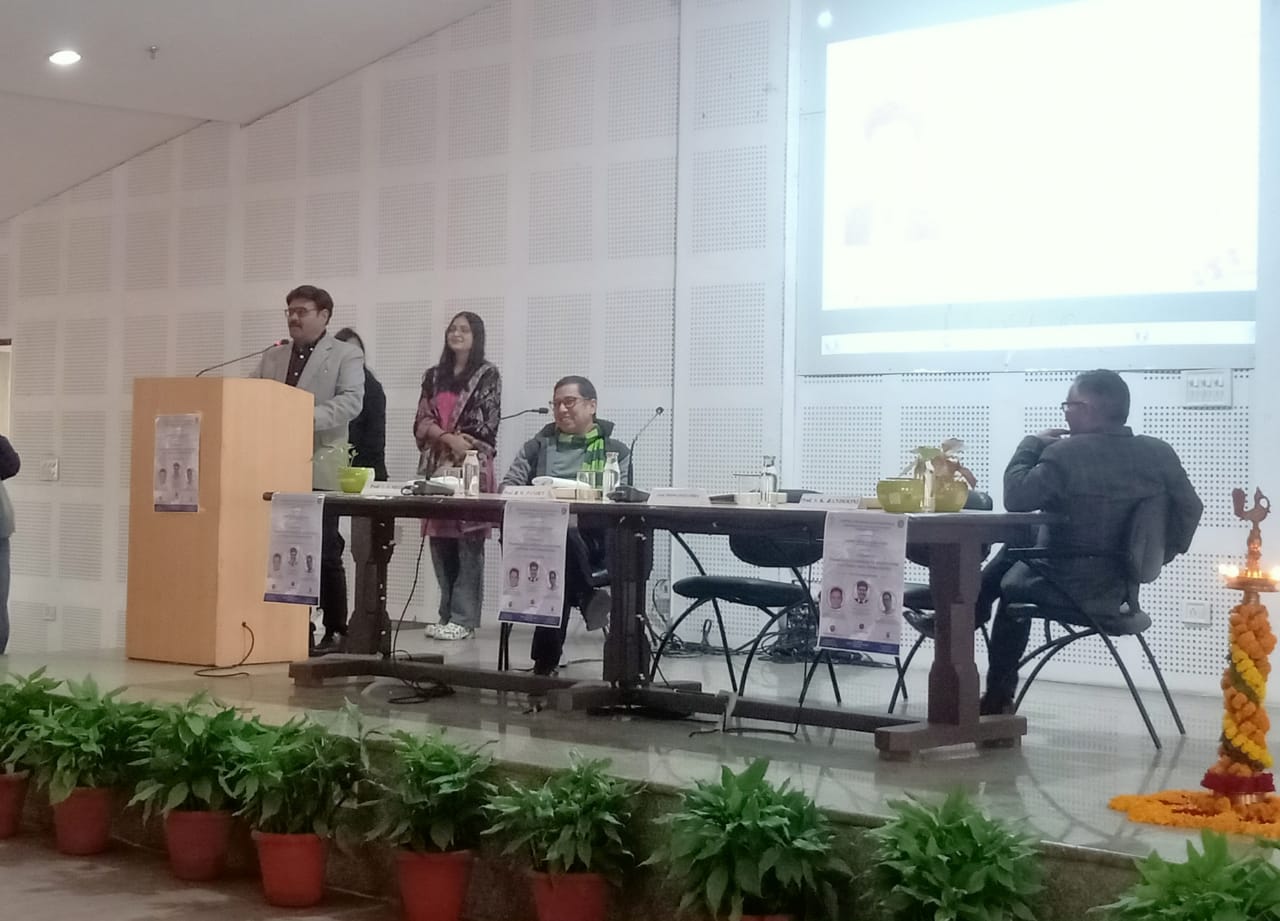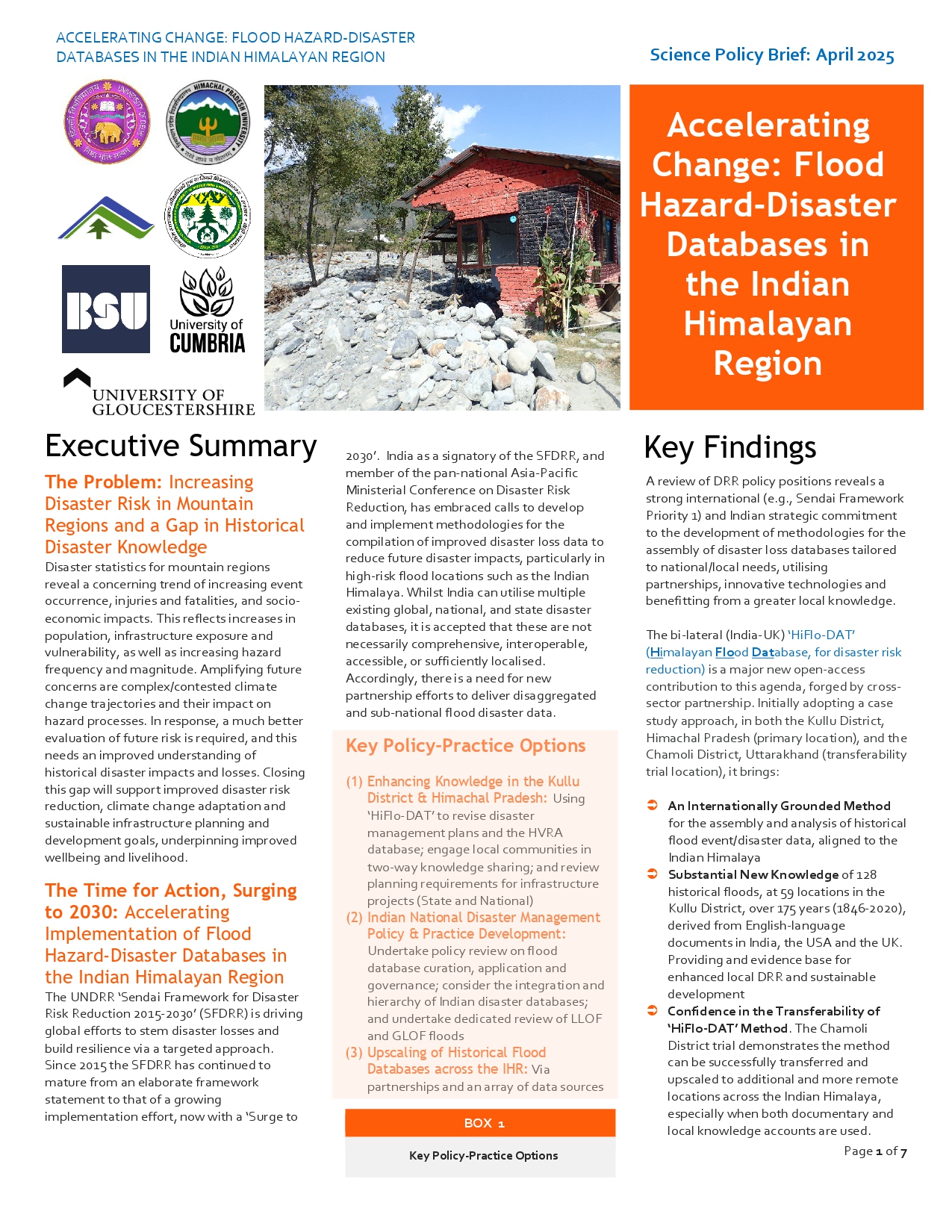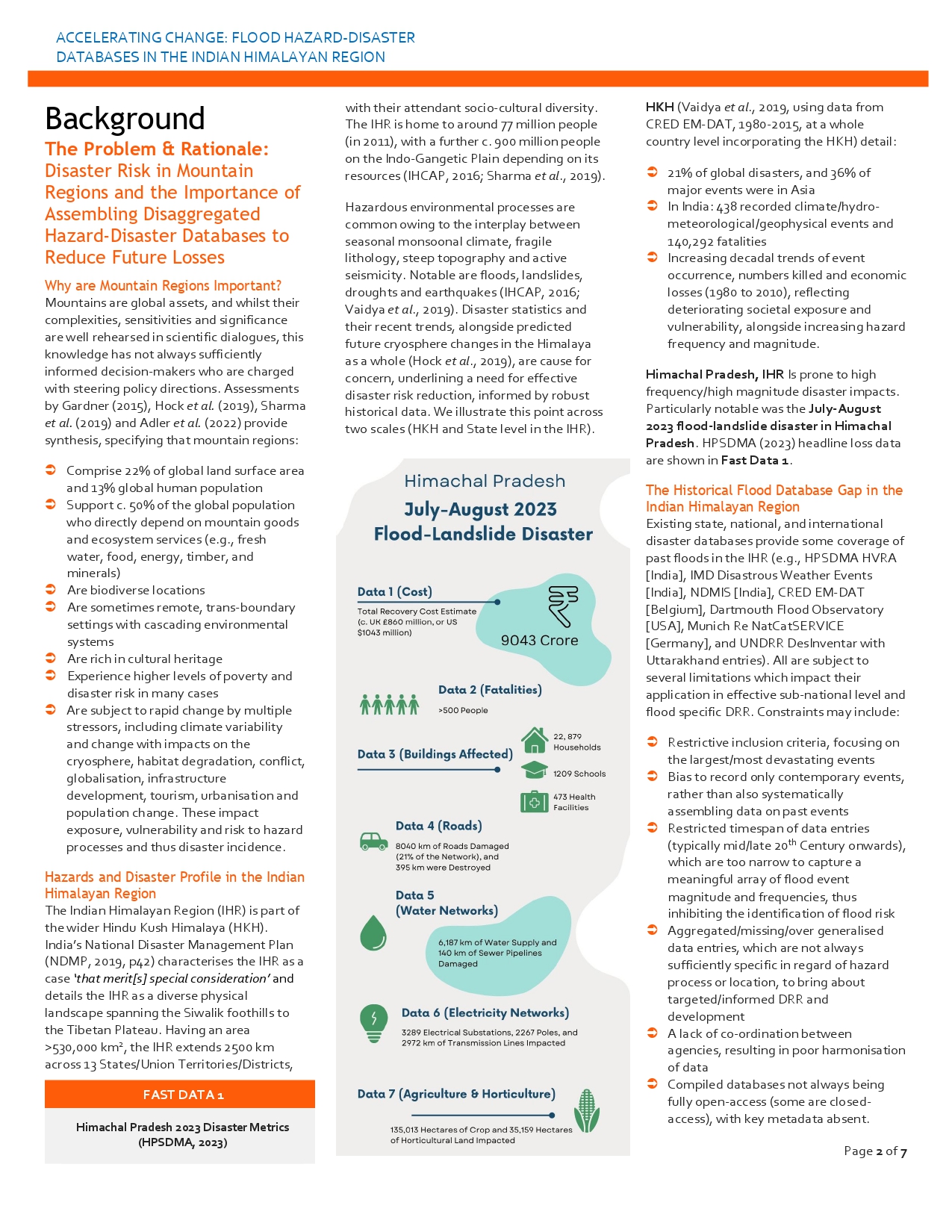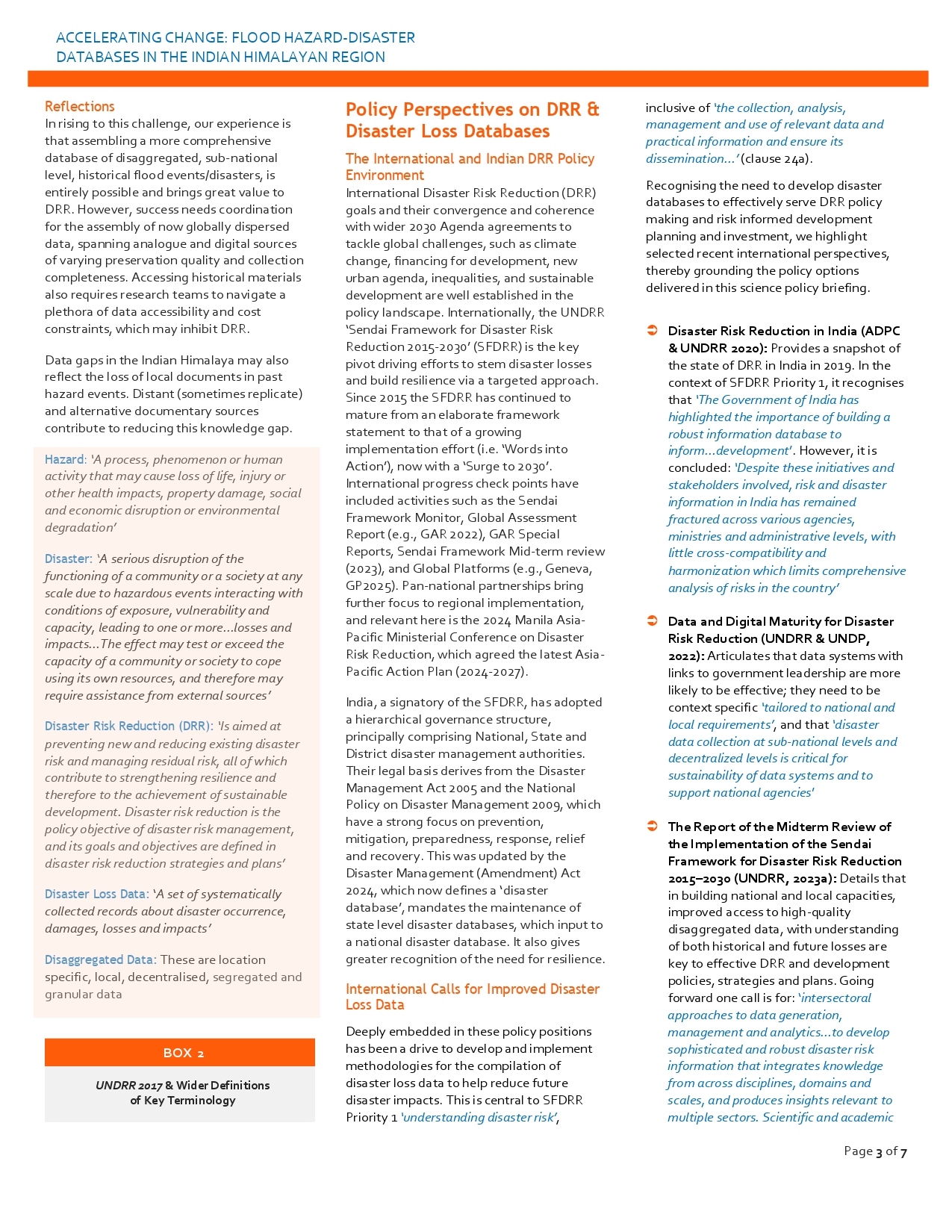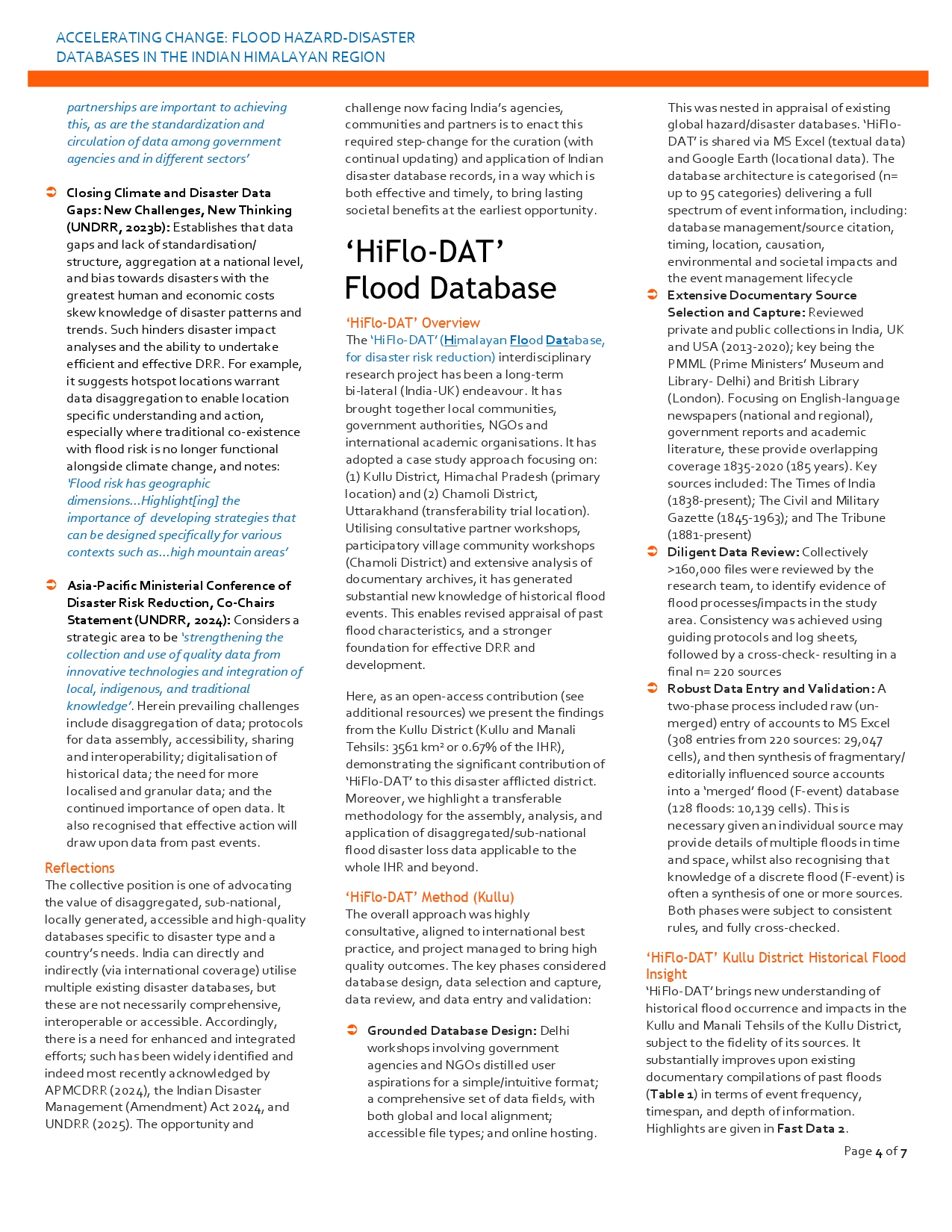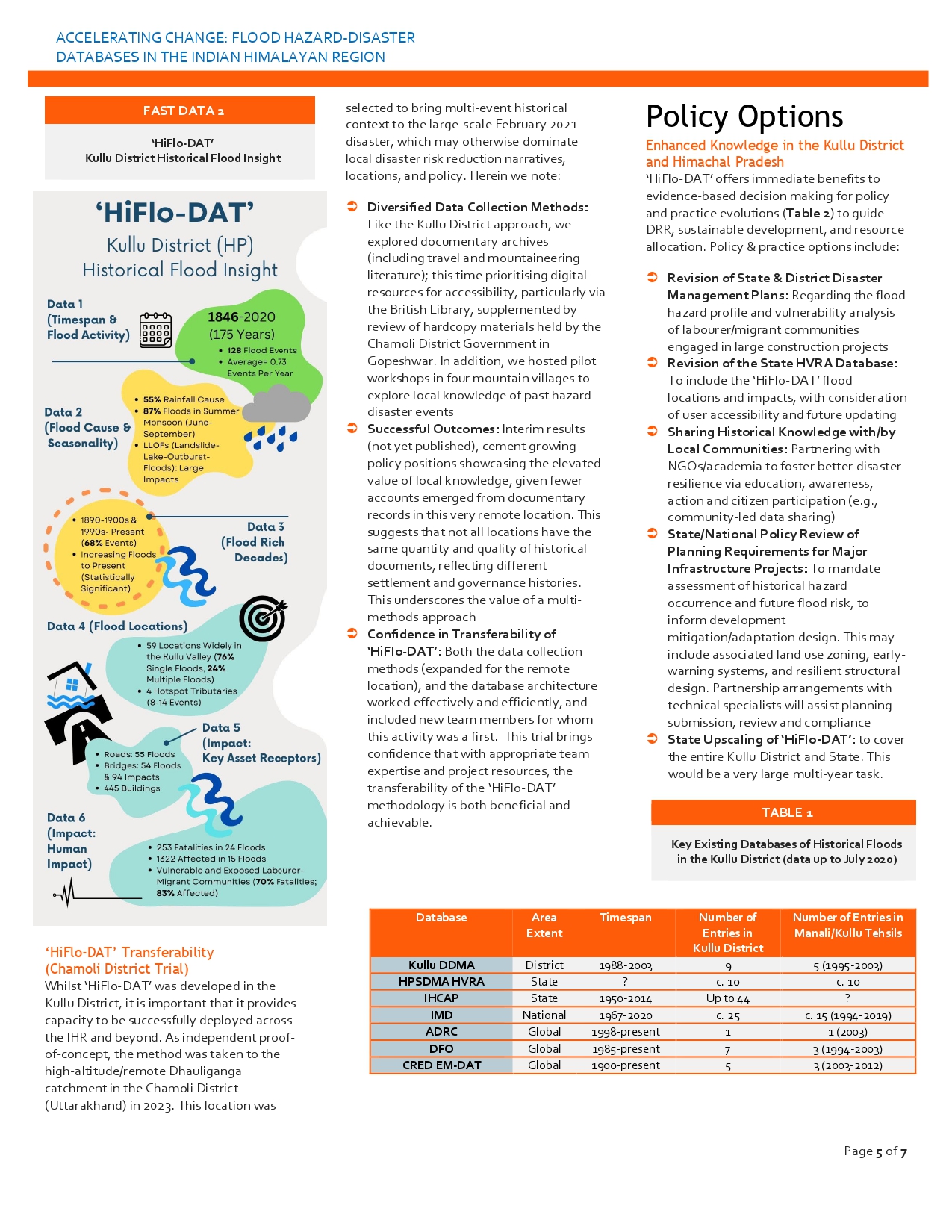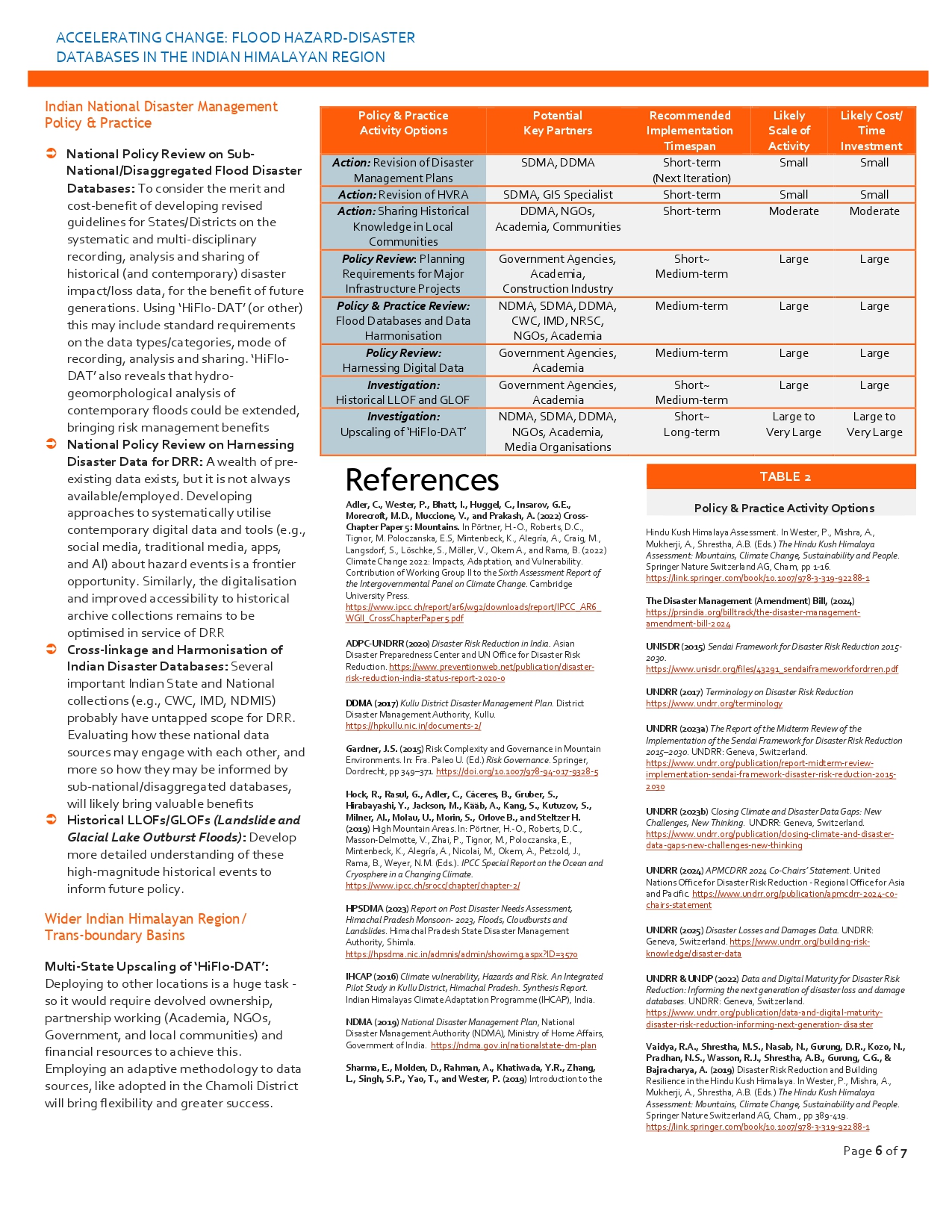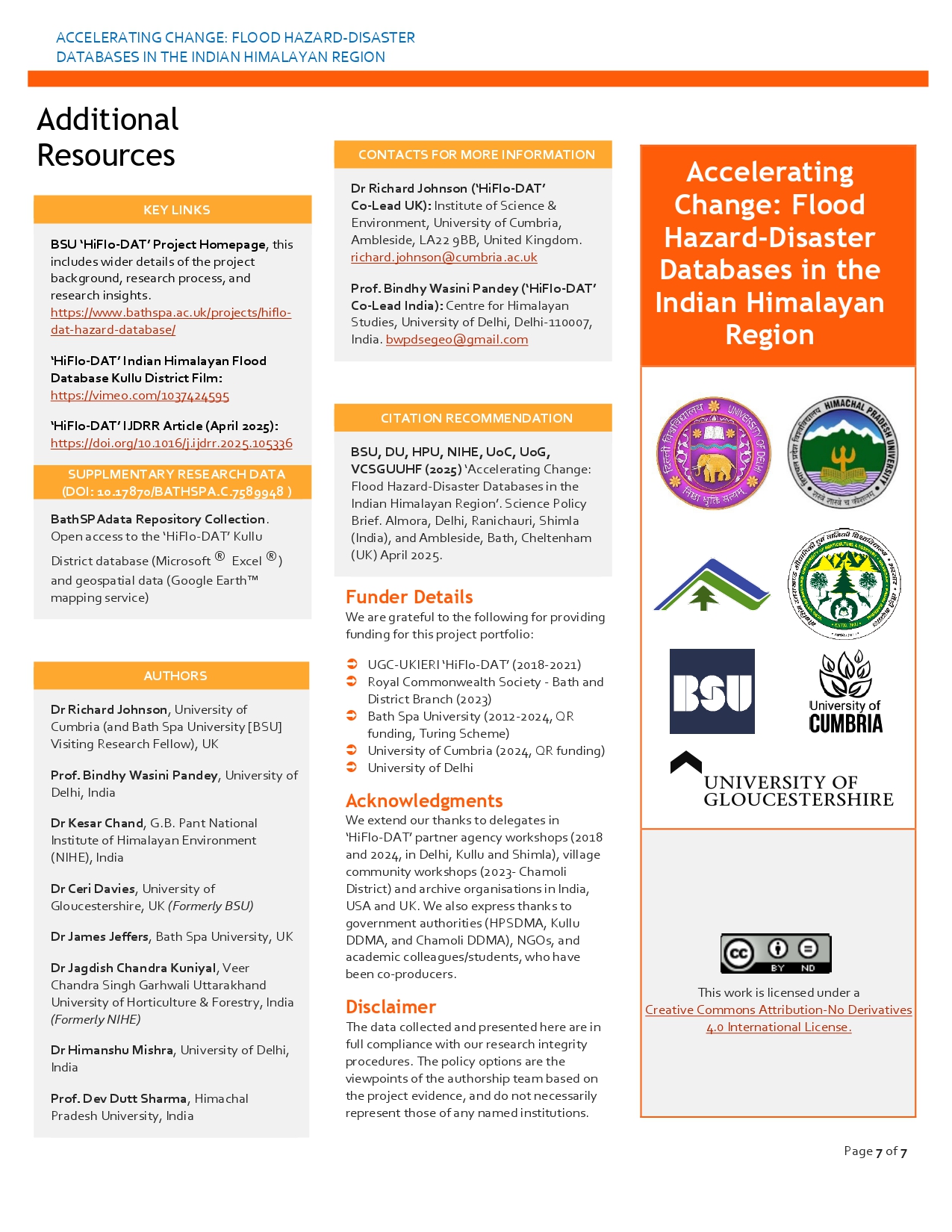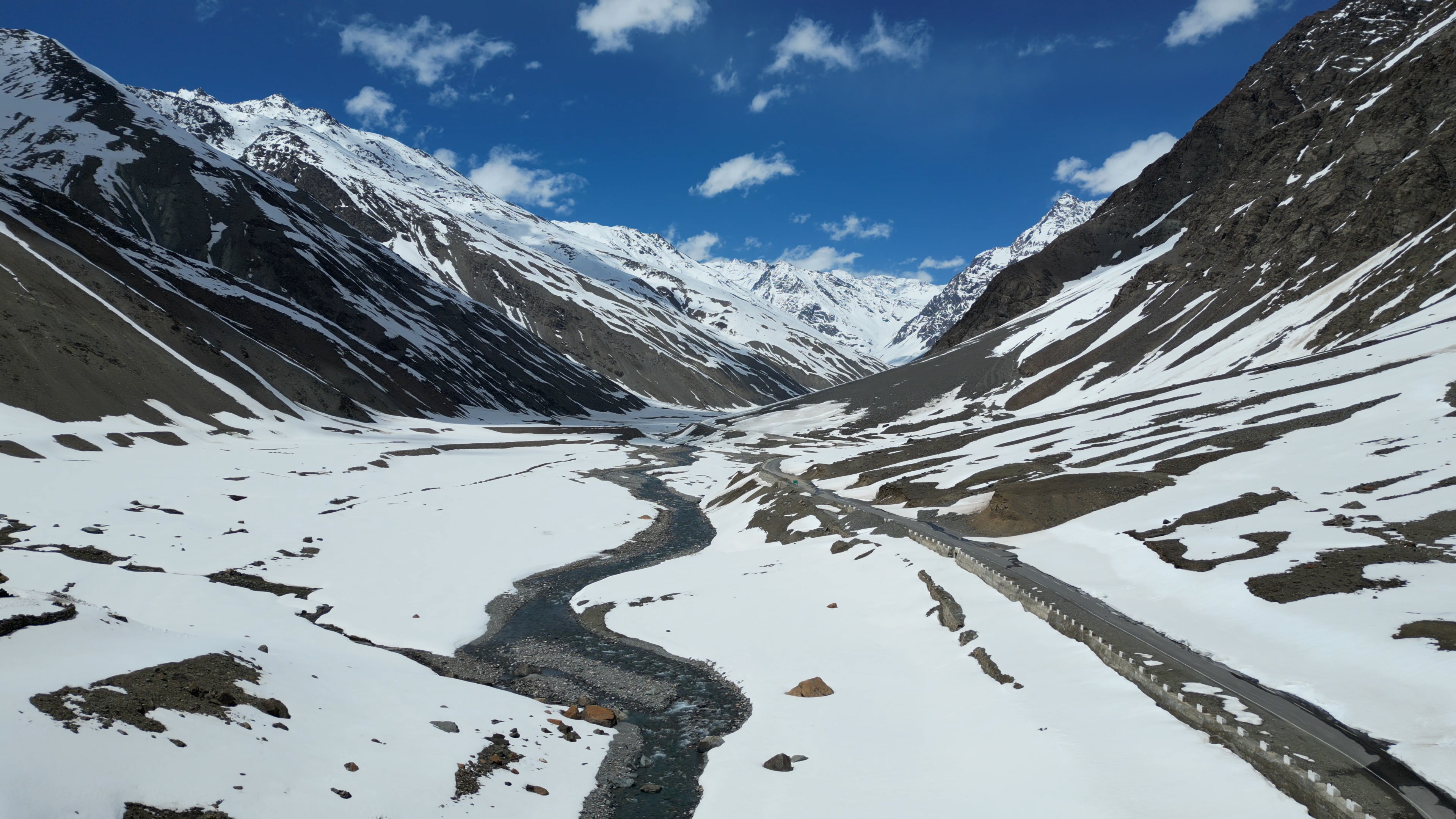
About
Welcome to the Centre for Himalayan Studies at the University of Delhi. Established in 2021, coinciding with the centenary year of the University, our centre is dedicated to advancing research and development across various facets of the Himalayan region. The Himalayas, celebrated for their youthful geological formation and iconic peaks like Mount Everest, serving as a crucial biodiversity hotspot, hosting nearly 52.7 million people which is spread over five countries namely India, China, Nepal, Pakistan, and Bhutan. Several Indian states like Himachal Pradesh, Uttarakhand, Union territories of Jammu & Kashmir and Ladakh, and the eight North-eastern states of India - Arunachal Pradesh, Assam, Meghalaya, Manipur, Mizoram, Nagaland, Tripura, Sikkim and parts of West Bengal are integral part of the great Himalayan ecosystem having diverse ecosystems and cultures. Our centre is committed to delving into the intricacies of this unique ecosystem, with a focus on its significance as the "third pole" of water and a vital reservoir of freshwater resources. Our research agenda is tailored to address pressing issues such as climate change, biodiversity conservation, and sustainable development in the Himalayan region.
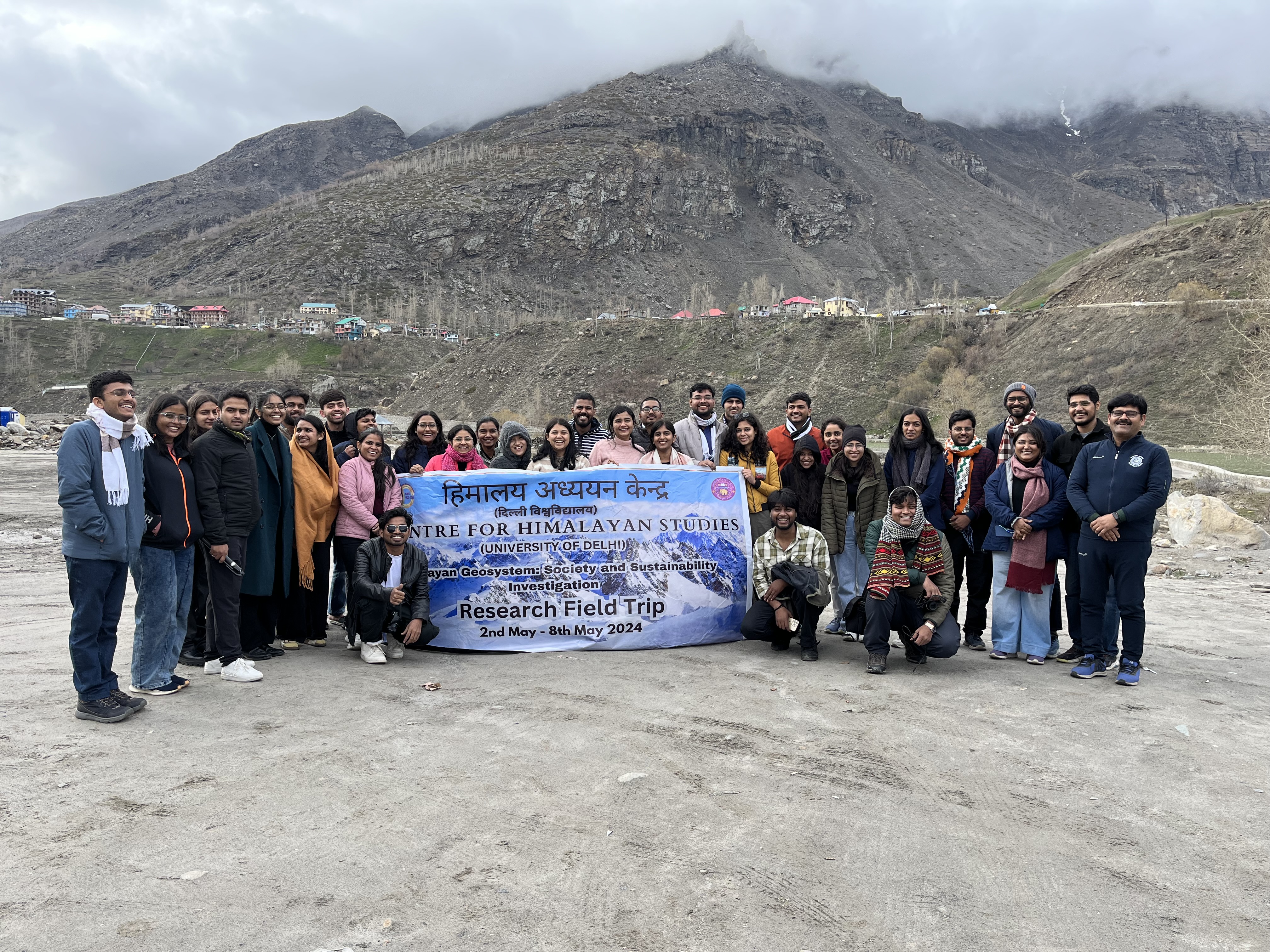
Himalayan Geosystem: Society and Sustainability Investigation
Embark on an unforgettable journey to the heart of the Himalayas with this unique field trip to Chenab Basin with the theme of, designed specifically for Masters students. This immersive experience will blend academic exploration with breathtaking landscapes, cultural encounters, and opportunities for independent research.
Objectives
A multi-disciplinary research centre devoted to study the Himalayan history, geography, society, economy, polity, culture, traditional knowledge, bioresources, environment, sustainable development and related fields.
Video Gallery
Himalayan Ecosytsem: Society and Sustainability
Join us on a transformative journey through the Himalayan ecosystem on a field visit by the Centre for Himalayan Studies from 02/05/2024 to 08/05/2024, guided by Prof. B.W. Pandey. Explore Manali, Upper Beas basin, Solang, Sisu, Koksar, Keylong, and Darcha Pass. Witness the region's beauty, traditions, and culture, followed by an enlightening interview with Prof. B.W. Pandey on environmental challenges. Delve into issues like degradation, uncontrolled tourism and sustainable solutions. Our exploration extends to remote villages, capturing local perspectives on climate change. This video aims to educate, inspire, and advocate for the preservation of the Himalayan ecosystem.
Himalaya: The Crown of Culture
This documentary is part of the Himalayan Research Internship Programme conducted under the supervision of Prof. Bindhy Wasini Pandey, Director, Centre for Himalayan Studies, University of Delhi.This internship envisages the importance of fieldwork and research in the Himalayan region, facing many challenges such as climate change, increasing population, land use and land cover change and environmental degradation. This video is an immersive experience of culture, and Social Niche of the Himalaya through a field trip organized by the Centre for Himalayan Studies to Dalhousie, Balera, Kakira and Dhar in Himachal Pradesh, India.
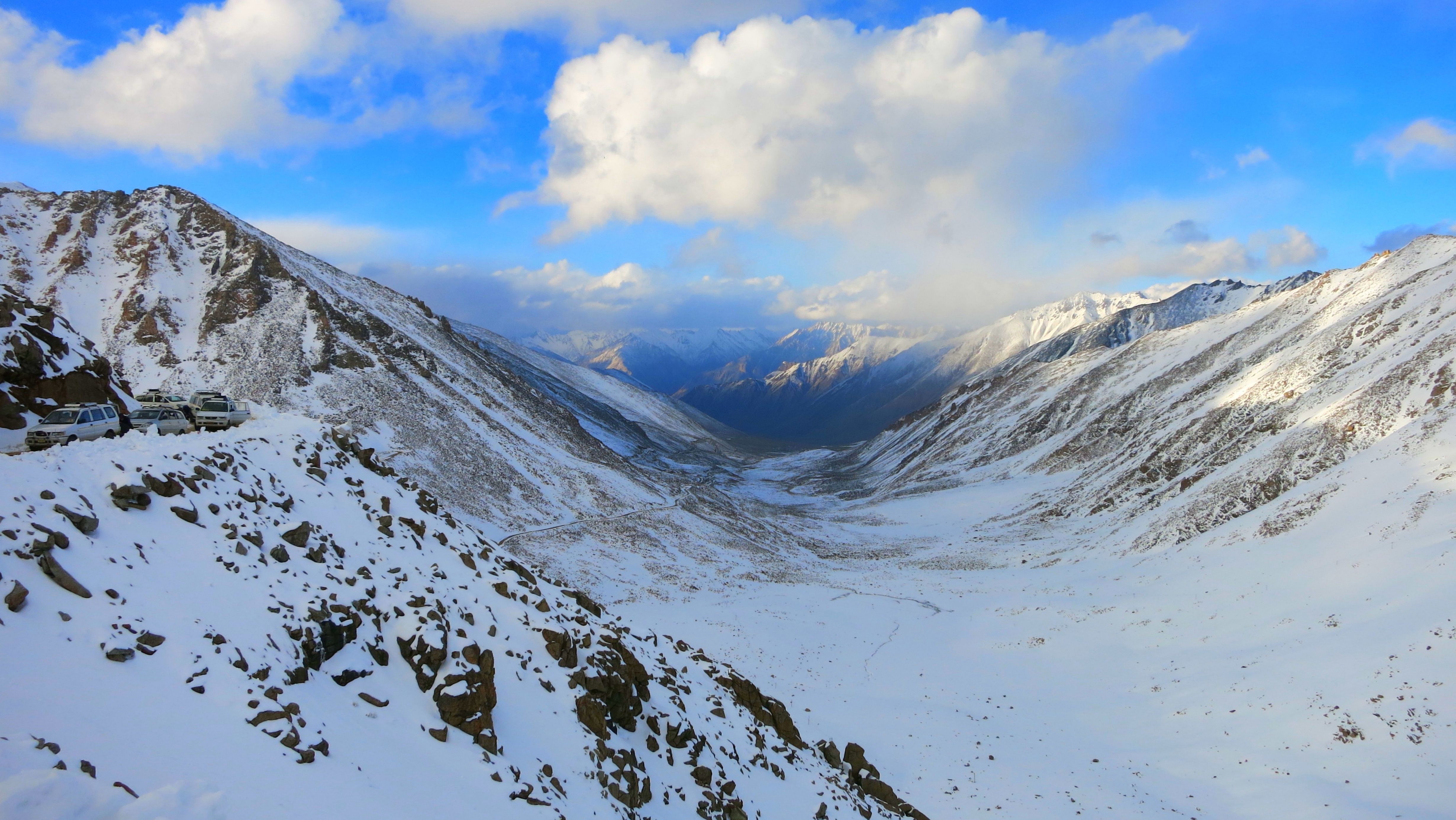
Activities
- World Mountain Day Celebration
- Peer Research Group Meeting
- HHRS Program
- Himalayan Trip: Chenab Basin Field Trip
Theme: Himalayan Geosytsem: Society and Sustainability Investigation - International Collaborations Seminar (24th May 2024)
- International Collaborations Workshop (30th May 2024)
- हिमोत्सव 2024 Himalaya: The Crown of Life and Cultural Niche (9th September 2024)
- International Mountain Day 2024
- Himalayan Research Internship Program (HRIP) 2025
- Short Term Course on ’SPATIAL ANALYTICAL TOOLS FOR ADVANCED ACADEMIC RESEARCH’
World Mountain Day Celebration:
The Centre for Himalayan Studies orchestrated a successful Mountain Day celebration on December 11th, 2023. Through various activities like panel discussions, film screenings, and cultural performances, the event heightened awareness about the pivotal role of mountain ecosystems in sustainable development with especial focus on the Himalaya.
Peer Research Group Meeting:
On February 19th, 2024, the Centre for Himalayan Studies convened a Peer Research Group Meeting, fostering collaborative research and knowledge exchange among Himalayan scholars from different departments of University of Delhi. For this purpose almost all the departments of the University were mailed and asked to nominate resource person working in the field of Himalaya. Also colleges were mailed to nominate a nodal person working the same field. This platform facilitated fruitful discussions on emerging trends and areas for future collaboration and formation of 29 themes based on the research work related to different aspects of the Himalaya for future references.
HHRS Program:
The Centre for Himalayan Studies conducted a Himalaya Hind Mahasagar Rashtra Samuh (HHRS) program in the Law Faculty on March 5th and 6th, 2024 in collaboration with Jamia Millia Islamia University and Forum for Awareness of National Security. This program explored the intricate nexus between human rights, environmental sustainability, and legal frameworks in the Himalayas, attracting scholars, legal experts, and practitioners, security forces, ambassadors from various countries.
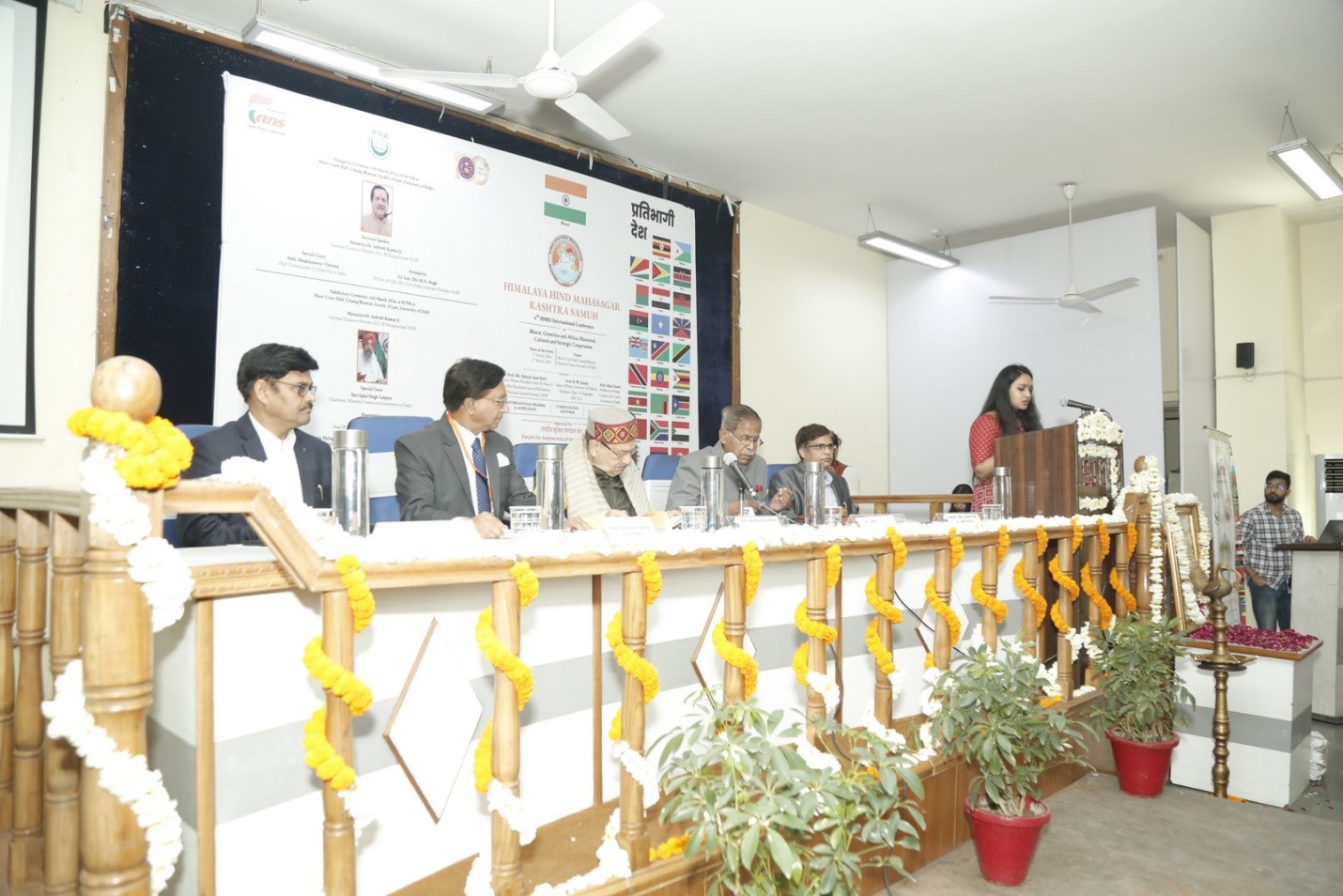
Himalayan Trip: Chenab Basin Field Trip
Theme: Himalayan Geosytsem: Society and Sustainability Investigation
Embark on an unforgettable journey to the heart of the Himalayas with this unique field trip to Chenab Basin with the theme of, designed specifically for Masters students. This immersive experience will blend academic exploration with breathtaking landscapes, cultural encounters, and opportunities for independent research.
On 21st May 2024, a meeting was convened with the Hon'ble Vice Chancellor of the University of Delhi, Prof. Yogesh Singh, to discuss the critical importance of the Himalayas and the pressing ecological issues threatening this vital mountain range. The meeting was attended by distinguished guests, including the Prof. Balram Pani, Dean of Colleges, University of Delhi, Prof. Sriprakash Singh, Director South Campus, University of Delhi, Dr. Vikash Gupta, Registrar, University of Delhi, Prof. Neera Agnimitra, Chairperson, International Relations, University of Delhi, Prof. Ashutosh Bhardwaj, Dean, International Relations S&T, University of Delhi and Prof. V S Negi, former elected EC Member University of Delhi for kind presence and gracing the meeting, Dr. Himanshu Mishra, Assistant Professor, Shaheed Bhagat Singh College Evening, as well as representatives from the University of Bath Spa and the University of Cumbria including Prof. Richard Johnson, Prof. Ian Convery and Prof. Stephanie Greshon and Seven Students from University of Bath Spa and University of Cumbria. Meeting was convened by Prof. B. W. Pandey, Director, Centre for Himalayan Studies, University of Delhi. The discussions highlighted the significance of the Himalaya as a global biodiversity hotspot, a crucial water source for major river systems, and a vital climate regulator. Participants emphasized the urgent need for immediate action to address the escalating threats posed by climate change, deforestation, unsustainable development practices, and the overexploitation of natural resources in the region. The Vice Chancellor reaffirmed the University of Delhi's commitment to supporting research initiatives, academic programs, and outreach activities focused on the Himalayan region, acknowledging its global significance and the urgency to mitigate the ecological threats it faces.
International Collaborations Seminar (24th May 2024):
The Centre for Himalayan Studies in collaboration with University of Cumbria and Bath Spa University is organizing an International Collaborations Seminar slated for May 24th, 2024. The International Collaborations Seminar on Himalayan Geosystem convenes to address sustainable development in the Himalayas, recognizing the complex interplay of ecosystems. Emphasizing conservation, climate resilience, and cross-border collaboration, experts explore strategies to preserve biodiversity while promoting socio-economic growth. By fostering interdisciplinary dialogue and international partnerships, the seminar aims to forge actionable solutions that safeguard the region's environmental integrity and support the well-being of indigenous communities.
International Collaborations Workshop (30th May 2024):
The Centre for Himalayan Studies in collaboration with University of Cumbria and Bath Spa University is organizing an International Collaborations Workshop slated for May 30th, 2024.
International Symposium on Changing Status of Ecosystem Health of the River Ganga
The "International Hybrid Symposium on Changing Status of Ecosystem Health of the River Ganga: An Update and Review" was organized by the Aquatic Ecosystem Health and Management Society, South and South East Asia Chapter, in collaboration with the Central University of South Bihar, ICAR-National Bureau of Fish Genetic Resources, Lucknow, Vigyan Bharti (Bihar Prant), and Unnat Bharat Abhiyan- University of Delhi. The hybrid symposium took place on June 10-11, 2024, at the Centre for Himalayan Studies, University of Delhi. It gathered leading researchers, experts, and scientists from various fields who are working on different aspects of the River Ganga. The symposium featured keynote lectures and was chaired by eminent scientists and researchers from various parts of the world, including Dr. Mohiuddin Munawar (Senior Scientist, Fisheries and Oceans, Canada), Dr. Dilip Kumar (Former Director/VC, ICAR - Centre for Inland Fisheries Education, India), Prof. Bhupendra Nath Pandey (Retired Professor, President of the Zoological Society of India), Dr. B. K. Chakraborty (Former Director, Department of Fisheries, Matshya Bhaban, Bangladesh), Prof. Shyam Narayan Labh (Professor, Tribhuvan University, Nepal), Prof. Ram Kumar (Professor, Central University of South Bihar, India), Dr. Uttam Kumar Sarkar (Director, ICAR - National Bureau of Fish Genetic Resources, India), Prof. Rajesh (Professor, University of Delhi, Nodal Officer, Unnat Bharat Abhiyan), Dr. Faiyaz A. Khudsar (Scientist Incharge, Biodiversity Parks Programme, University of Delhi, India), Prof. Jaigopal Sharma (Director, Department of Biotechnology, Delhi Technological University), Prof. B.W. Pandey (Director, Centre for Himalayan Studies, University of Delhi), Padmashree Dr. R. K. Sinha (Former Professor, Patna University, India), and Shri K.K. Singh (IFS, APCCF, India).
Himalayan Research Internship Program (HRIP) 2024
The Centre for Himalayan Studies (CHS) has made a significant advancement in nurturing a new generation of professionals dedicated to the sustainable development and conservation of the Himalayan region. The Centre has recently launched a comprehensive training and internship program aimed at equipping students with the crucial skills and knowledge needed to tackle the pressing challenges of climate change, environmental degradation, and disaster risk within this delicate ecosystem. This program is specifically designed for undergraduate and postgraduate students, offering them a unique blend of hands-on experience and theoretical understanding. Participants are exposed to various critical themes such as "Sustainable Tourism and Community Development in the Himalayas," "Climate Change Adaptation Strategies," and "Disaster Preparedness and Response." The program covers diverse areas in Himachal Pradesh, including Dalhousie, Kakira, Balera, and Dhar, providing a broad perspective on regional issues. A notable component of the internship program was the "Himalayan Expedition and Research Investigation," which took place from June 21, 2024 to July 20, 2024. This intensive program included a field trip to the Ravi Basin from July 6 to July 11. The field trip, under the theme "Himalayan Expedition and Research Investigation," involved interns from across India, both at the undergraduate and postgraduate levels. The objective was to conduct high-quality research on various aspects of the Himalayan region, enhancing their practical understanding and research capabilities.The internship culminated in the submission of five dissertations, each addressing different themes and objectives related to the Himalayan environment. These dissertations reflect the interns' thorough investigations and contributions to understanding and addressing key issues within the region. Through this program, CHS is not only fostering academic and research excellence but also actively preparing the next generation of experts committed to the sustainable management and conservation of the Himalayas. The initiative highlights the Centre’s dedication to advancing knowledge and solutions that will help safeguard this vital region for the future.During the one-month internship program, participants engaged in several research projects focused on sustainable development and climate resilience in Himachal Pradesh.
Himotsav 2024: Celebration of Himalaya Diwas to Honor the Majestic Himalayas
The Centre for Himalayan Studies hosted a significant celebration of Himotsav 2024, “Himalaya: The Crown of Life and Culture," on 9th September 2024, to observe Himalayan Day. This pivotal event brought together scholars, policymakers, and stakeholders to explore the Himalayan region's pressing challenges and opportunities. The one day seminar featured a distinguished line-up of speakers and researchers who shared their latest findings and insights on various critical topics, including climate change, biodiversity conservation, sustainable development, and indigenous knowledge. The presentations comprehensively overviewed current issues and advancements in the Himalayas' unique ecosystem. The seminar aimed to deepen the understanding of the Himalayan environment and its complex dynamics through a series of interesting discussions and collaborative sessions. By facilitating dialogue among experts and fostering interdisciplinary collaboration, the seminar seeks out to address the multifaceted challenges faced by the Himalayas and contribute to creating effective solutions. The event underscored the Centre's commitment to advancing knowledge and supporting efforts to ensure the sustainable management and conservation of the Himalayan ecosystem. For organizing this holy day, the Centre for Himalayan Studies collaborated with other institutions and agencies, including the National Council for Promotion of Sindhi Language, SHERPA, Dalio ka Dagariya, Shaheed Bhagat Singh Evening College, and the University of Delhi
Public Lecture: “Bodily Knowledge of Cultural Practices: Analytical Tools towards an Embodied Epistemology”
Centre for Himalayan Studies, University of Delhi in collaboration with Centre for Tribal Studies, University of Delhi organized a public lecture on “Bodily Knowledge of Cultural Practices: Analytical Tools towards an Embodied Epistemology” on 13th September, 2024 at Seminar Room 105, Centre for Himalayan Studies, University of Delhi, that saw presence of the Speaker Grit Kirstin Koeltzsch, Professor of Anthropology, National University of Jujuy, Argentina, guest of honour Prof. K. Ratnabali, Dean, Academic Affairs, University of Delhi and organizers of the lecture Prof. S.M. Patniak, Director, Centre for Tribal Studies, University of Delhi and Prof. B.W. Pandey, Director, Centre for Himalayan Studies, University of Delhi. This lecture showcased importance of cultural practices being taken up for the preservation of culture along with importance of objects being used to perform these activities. This lecture was followed by a cultural event that showcased importance of cultures in form of dance forms and folk songs of the Himalayan region of India.
International Mountain Day 2024
Centre for Himalayan Studies, University of Delhi celebrated International Mountain Day 2024 by organizing an International Conference themed "Mountain Resilience: Securing the Future of the Himalaya in the Era of Anthropocene Climate Change" to understand the impacts of human activities on Fragile and ecologically sensitive environment of the Himalaya. The Conference marked the participation of national and international speakers who presented their research findings and advocated the importance of protecting the Himalayas for the sustenance of life.
Public Lecture: “A WORKSHOP ON HIMALAYA: GUARDIAN OF ECOSYSTEM, CULTURES AND COMMUNITES ”
Indraprastha College for Women, University of Delhi in association with the Centre for Himalayan Studies, University of Delhi organized a workshop on Himalayan: Guardian of Ecosystems, Cultures and Communities on 21st December, 2024 at AVLT Hall, Indraprastha College for Women, University of Delhi with its keynote speakers of Prof. B.W Pandey Director, Centre of Himalayan Studies, University of Delhi, Prof. V.S Negi, Department of Geography, Shaheed Bhagat Singh Evening College, University of Delhi. This workshop delivered different methods of understanding the ecosystems, diverse cultures and unique communities of the Himalaya and the threats they are facing in context of current climate change and its impacts.
Accelerating Change: Flood Hazard-Disaster Databases in the Indian Himalayan Region
Executive Summary The Problem: Increasing Disaster Risk in Mountain Regions and a Gap in Historical Disaster Knowledge Disaster statistics for mountain regions reveal a concerning trend of increasing event occurrence, injuries and fatalities, and socio economic impacts. This reflects increases in population, infrastructure exposure and vulnerability, as well as increasing hazard frequency and magnitude. Amplifying future concerns are complex/contested climate change trajectories and their impact on hazard processes. In response, a much better evaluation of future risk is required, and this needs an improved understanding of historical disaster impacts and losses. Closing this gap will support improved disaster risk reduction, climate change adaptation and sustainable infrastructure planning and development goals, underpinning improved wellbeing and livelihood.
International Conference on Geospatial Innovatinos for Biodiversity Conservation, Climate Resilience, and Sustainable Development Across Multi-Domain Econsystems
The international conference aims to harness geospatial technologies to address global challenges like climate change and biodiversity loss. By bringing together scholars, researchers, policymakers, and industry professionals, the conference will foster knowledge exchange and collaboration. Geospatial technologies, including GIS, remote sensing, and spatial analytics, have revolutionized environmental data collection, analysis, and utilization. These tools can be applied to biodiversity conservation, climate resilience, and sustainable development. The conference will delve into topics such as species distribution, habitat connectivity, climate modelling, disaster risk assessment, and sustainable agriculture. By bridging the gap between scientific knowledge and practical applications, geospatial technologies can inform decision-making and promote sustainable practices across various ecosystems. These sessions will provide insights into the latest research, innovative projects, and best practices in geospatial science. Attendees will have the opportunity to engage in thought-provoking discussions, explore case studies, and participate in hands-on demonstrations that highlight the practical applications of geospatial technologies across various ecosystems, such as coastal, mountain, desert, and urban environments..
International Seminar, 23rd May, 2025
On “Climate Change and Mountain Resilience”
The University of Cumbria, in collaboration with the Centre for Himalayan Studies, University of Delhi, organised an International Seminar on Climate Change, Vulnerability, Resilience, and Integrated Mountain Development on May 23, 2025. The event, held in hybrid mode at Maharishi Kanad Bhawan, Faculty of Science, University of Delhi, brought together researchers, policymakers, and academicians from around the world. The seminar focused on the urgent challenges faced by mountain ecosystems due to climate change and explored adaptive strategies for building resilience and sustainable development in these fragile environments. The discussions highlighted interdisciplinary approaches and community-based solutions.
HIMALAYAN SUMMER RESEARCH PROGRAMME
5th June — 15th July
The Thirty Days Himalayan Summer Research Program (HSRP), organised under the aegis of the Centre for Himalayan Studies, is a de-novo program on Mountain Ecosystem and Governance. It equips students with theoretical frameworks of new-age mountain research and supplements these with hands-on applied training addressing ecological and socio-cultural aspects of the Himalayas across physical and human dimensions in a time–space continuum. The self-reinforced curriculum leverages heutagogy, sessions by domain experts, curated academic resources, remote mentorship, and active student contributions to generate robust evidence- and knowledge-based research and governance outcomes with a synergistic Science–Policy–Industry interface.
- Program focus: Mountain ecosystem dynamics, governance, conservation, and community resilience.
- Learning mode: Lectures, field practicums, remote mentorship & student-led projects.
- Outcome: Research briefs, policy notes, and evidence-based recommendations.
Contact
Location:
Dream Building, North Campus, University of Delhi, Delhi
Email:
director@himalayanstudies.du.ac.in,
bwpandey@geography.du.ac.in
Call:
+91-9560525260
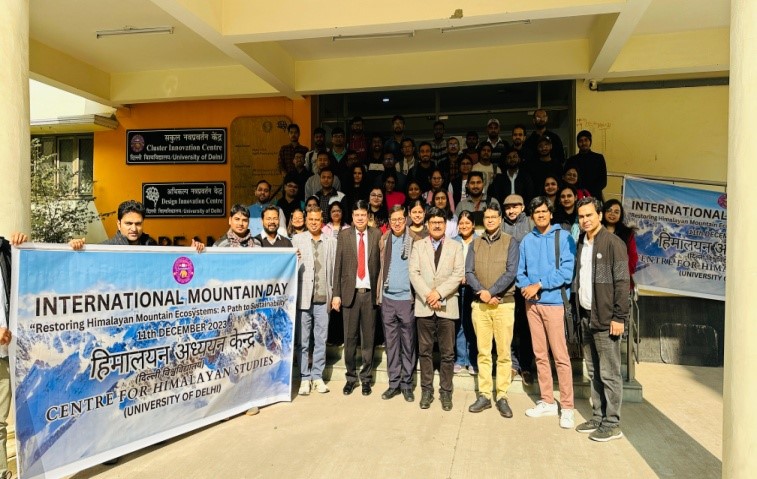
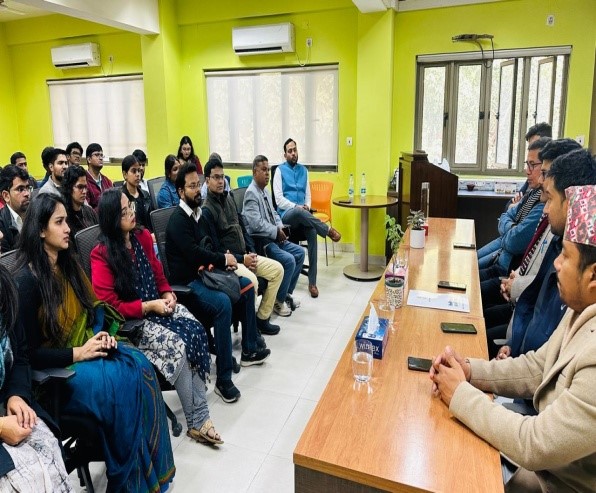
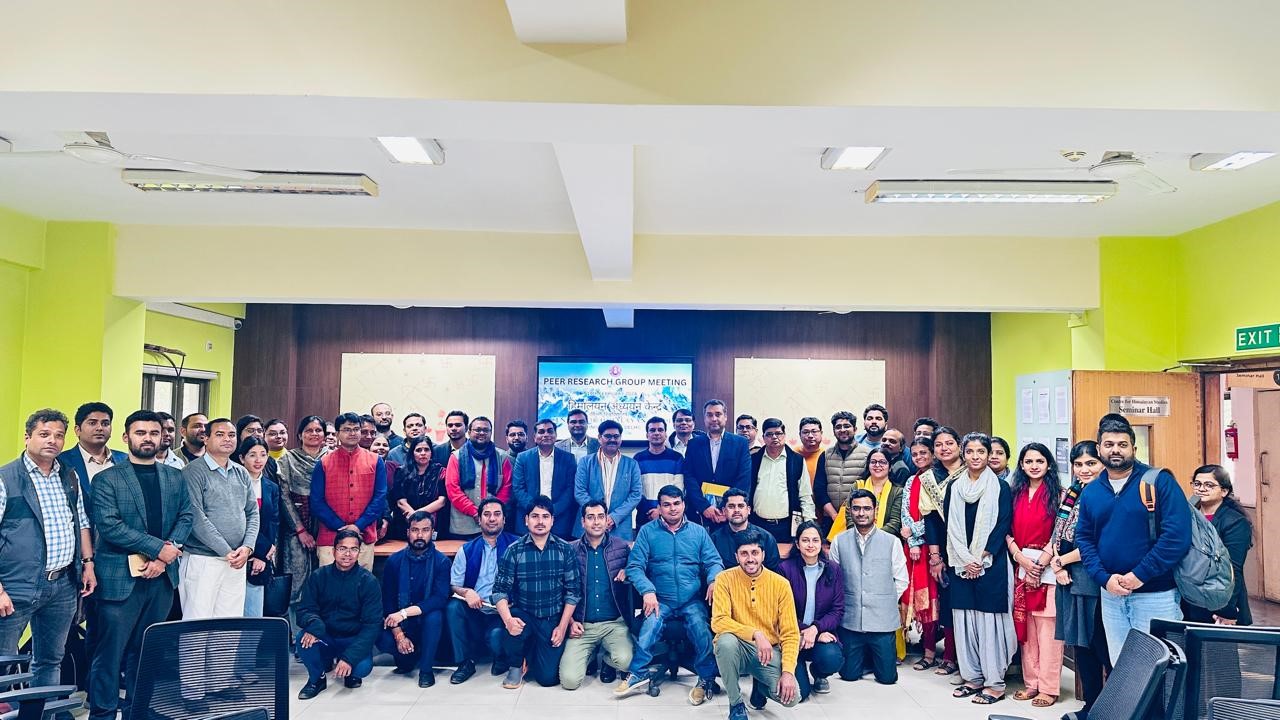
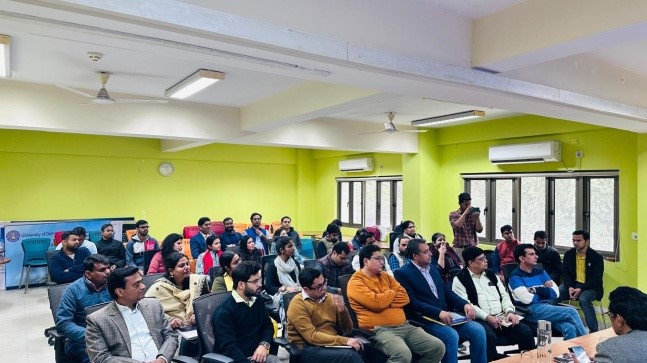
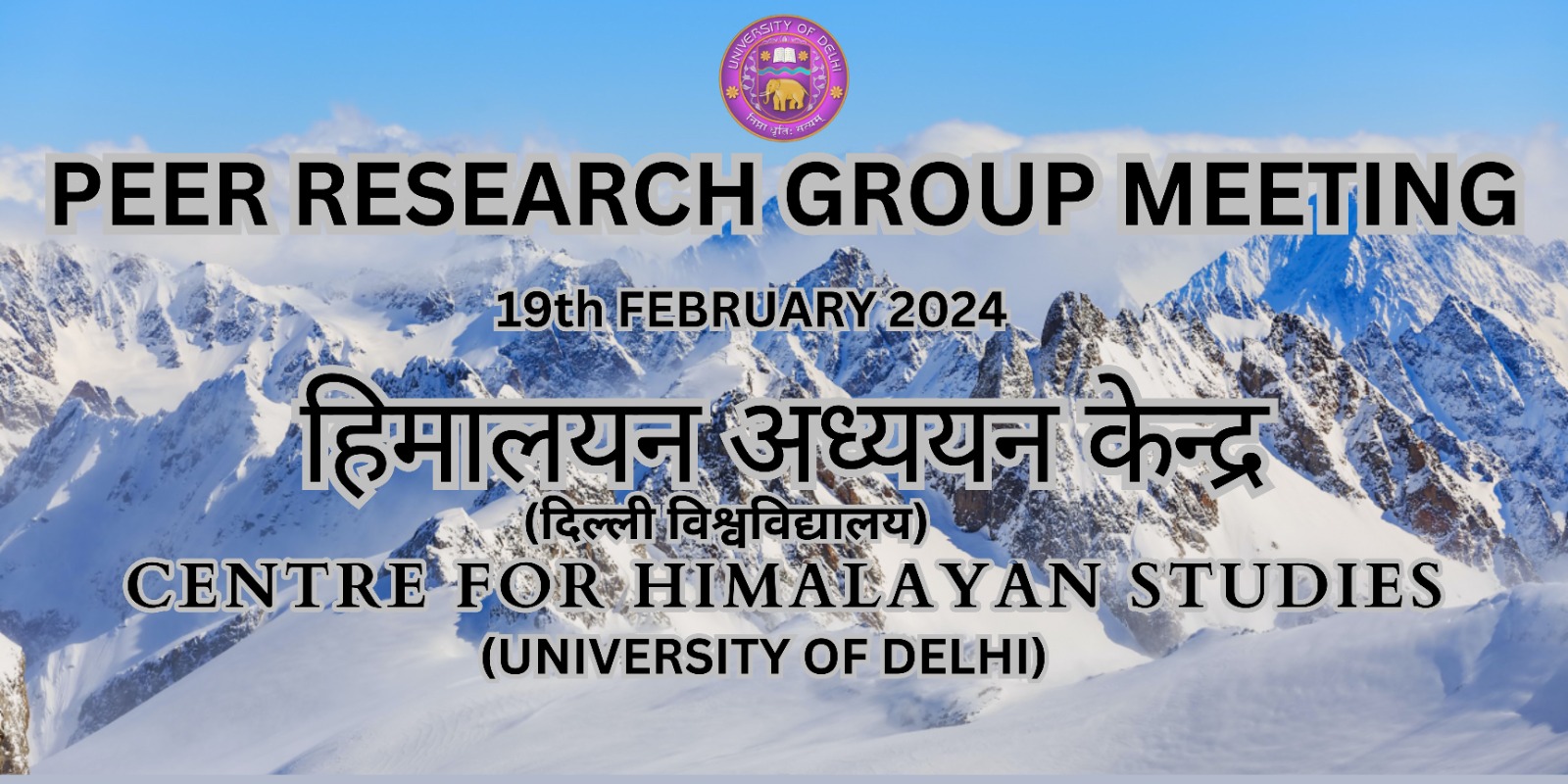
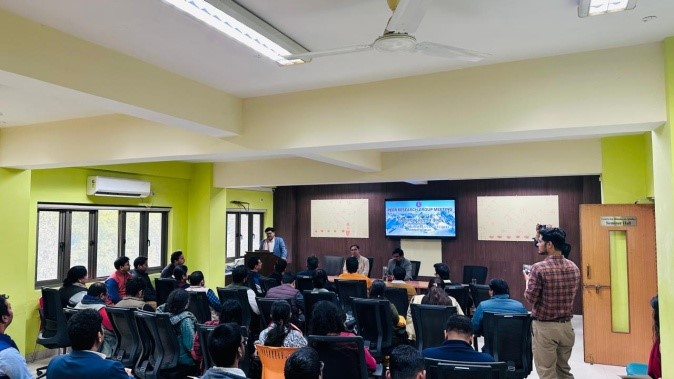
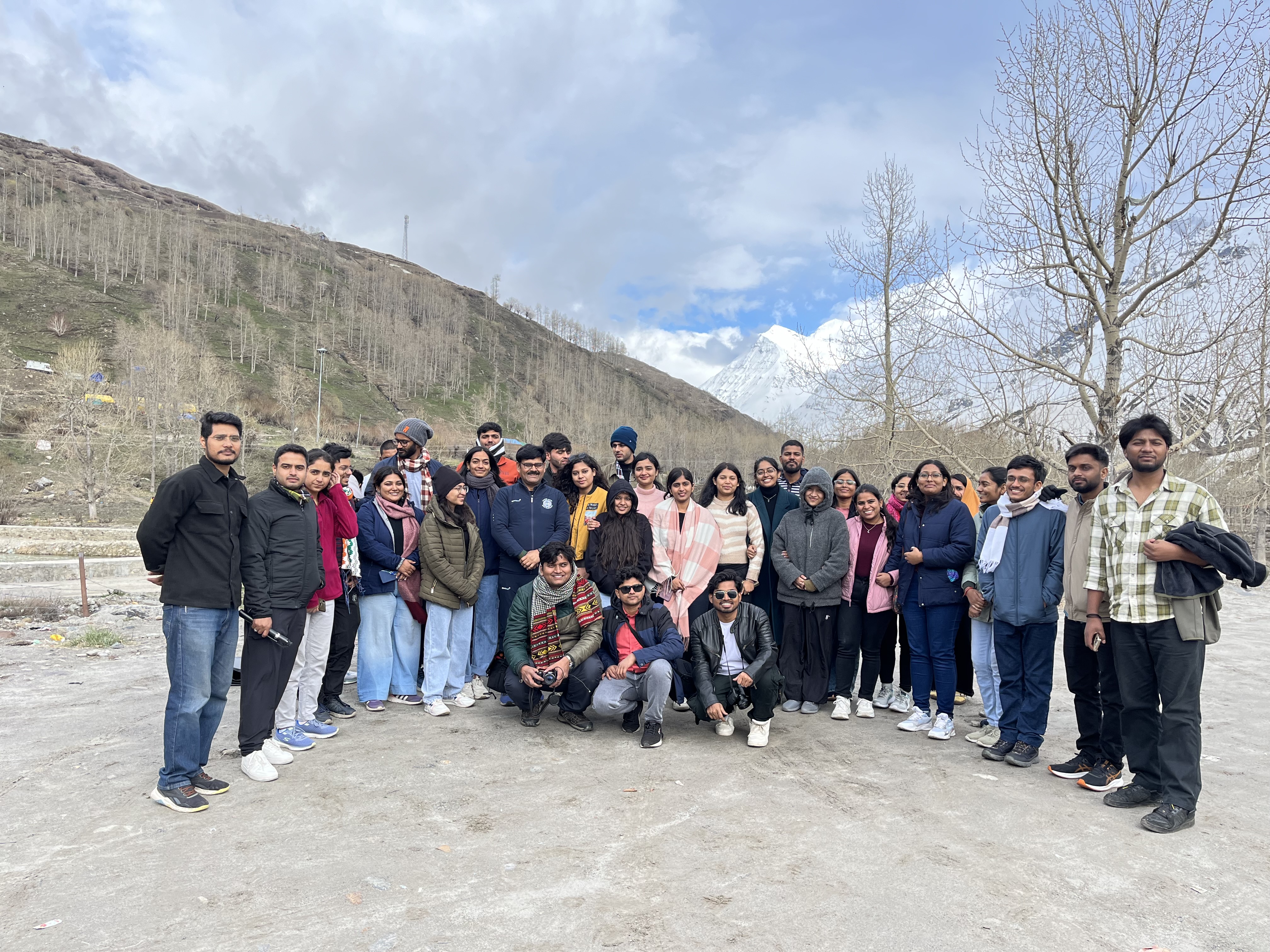
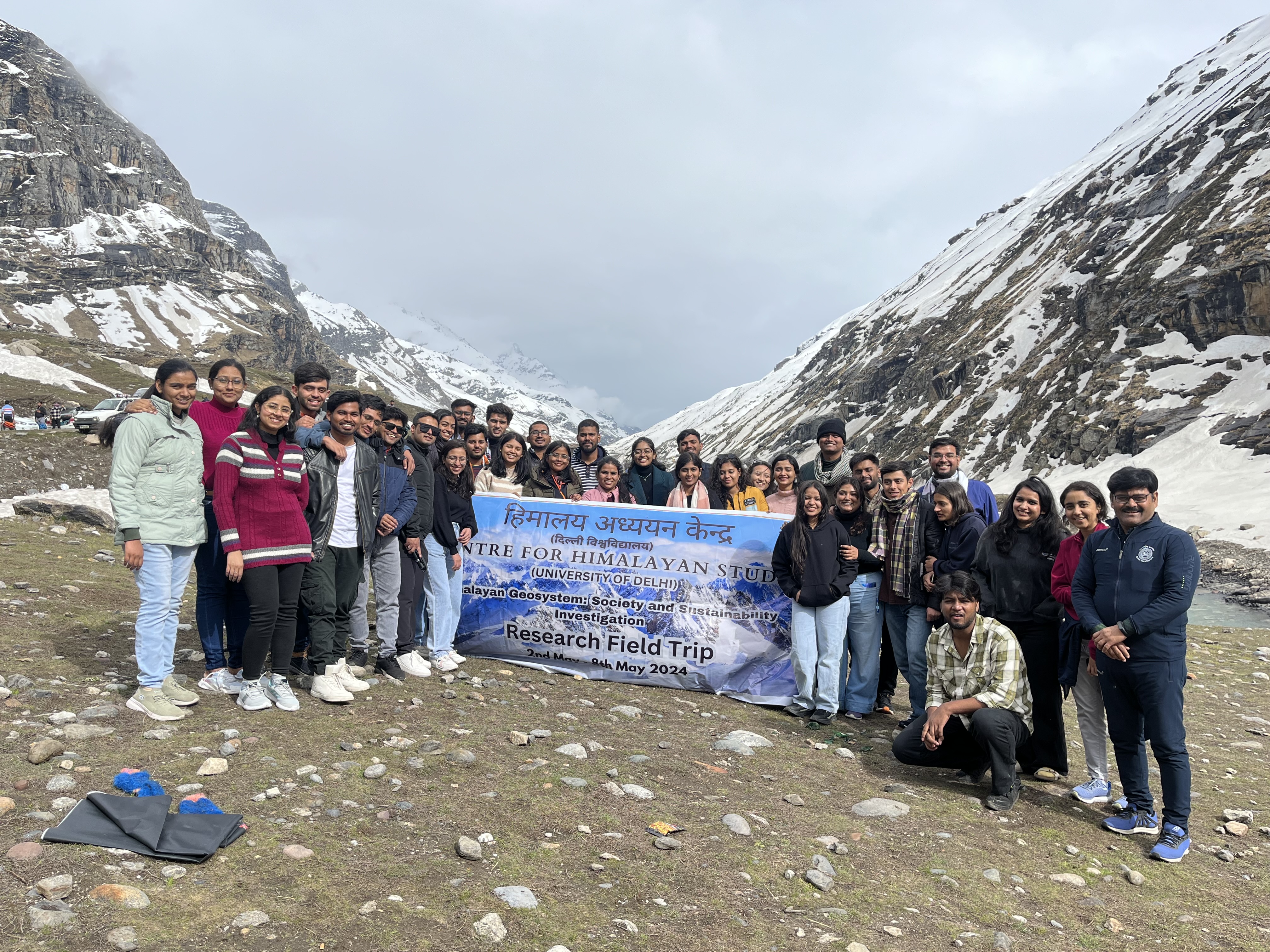
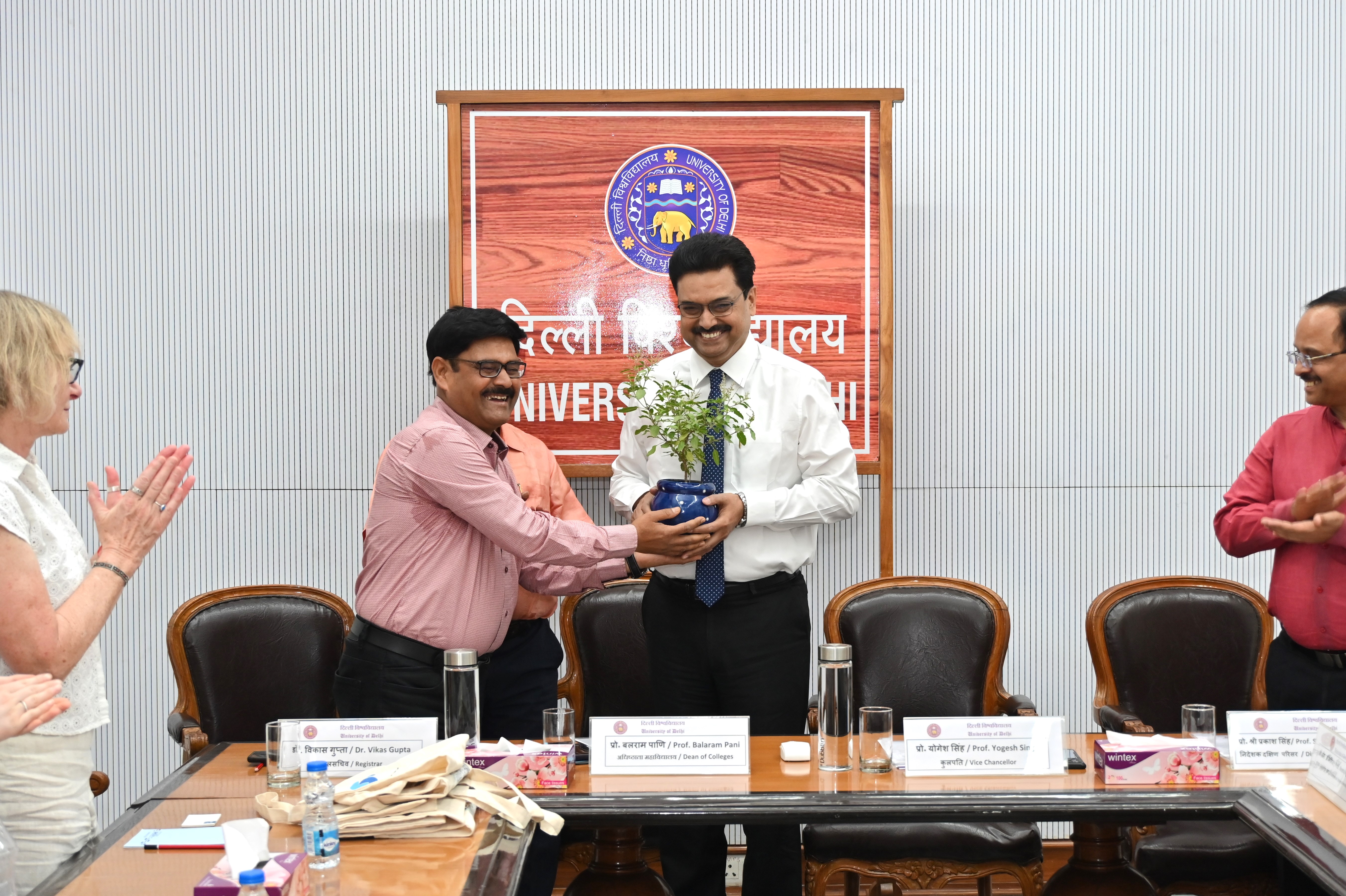
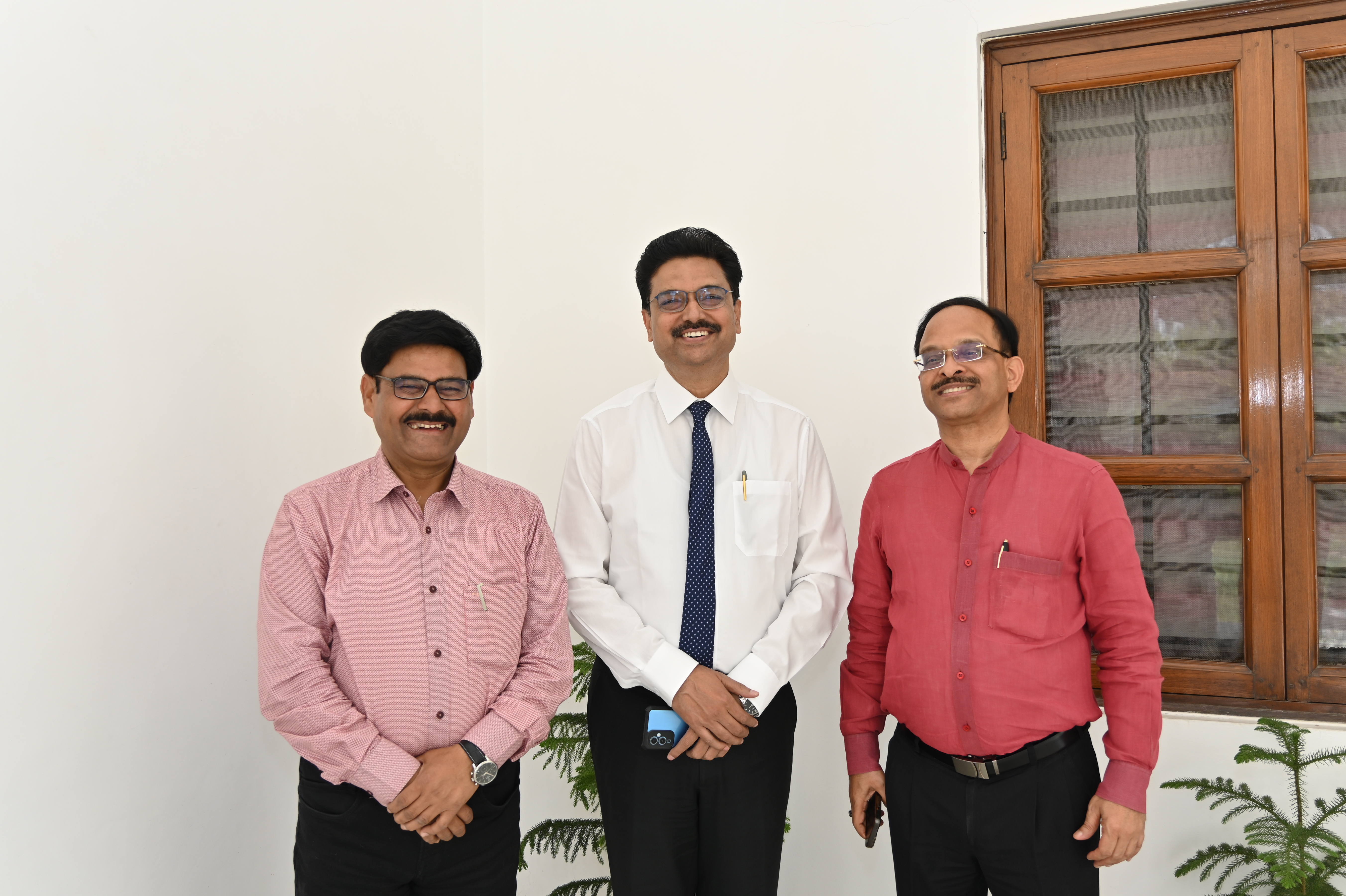

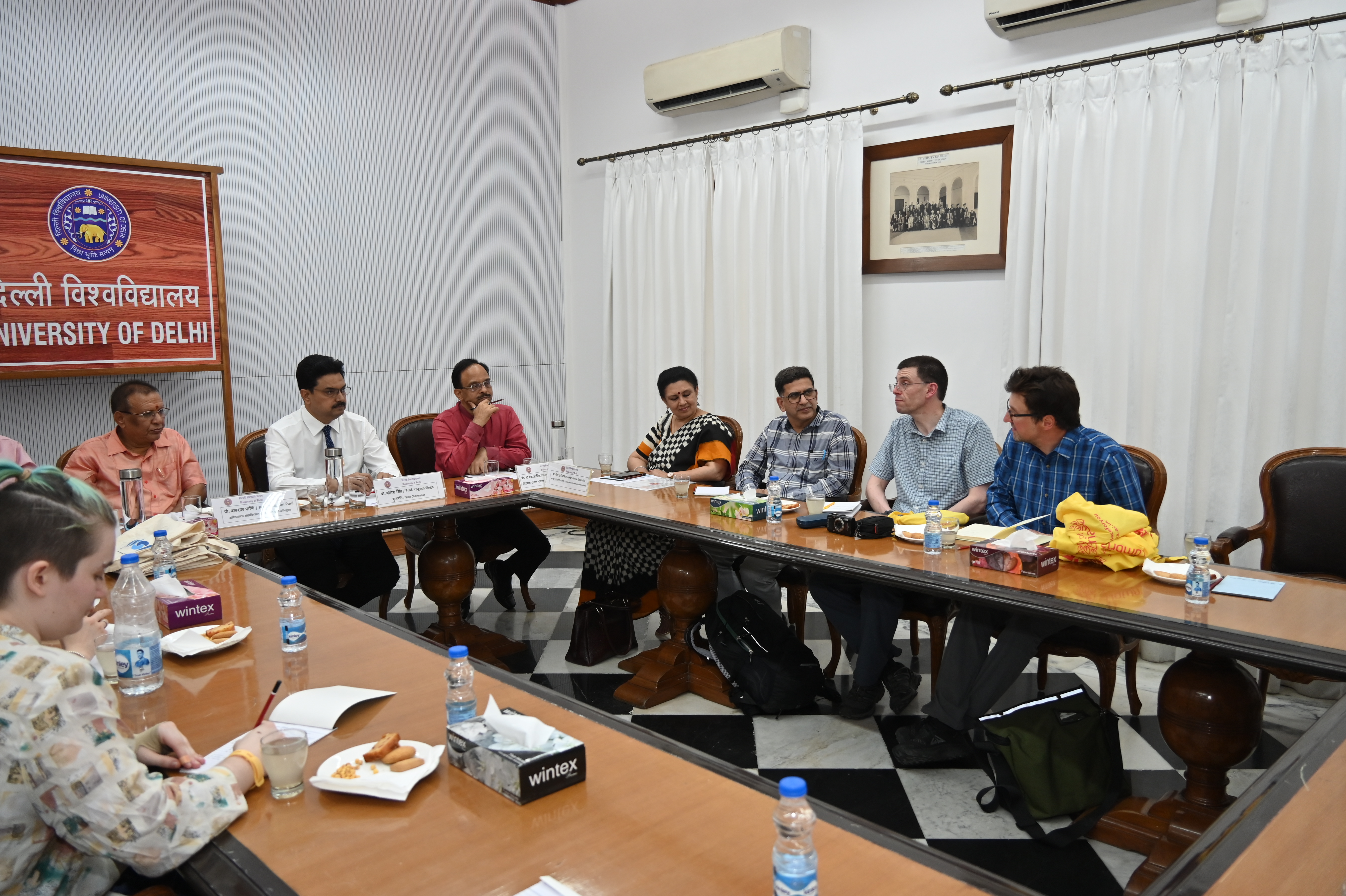
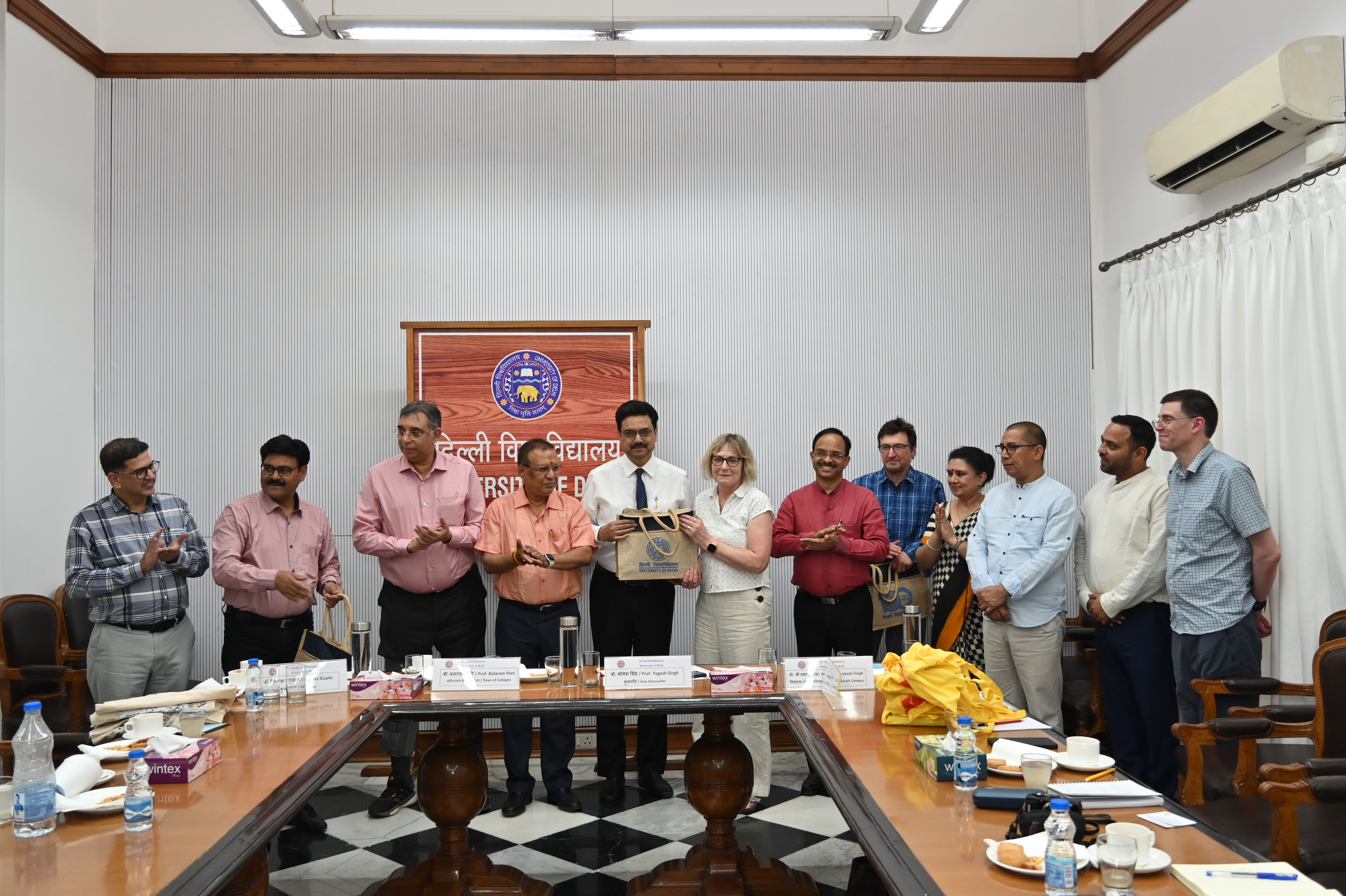
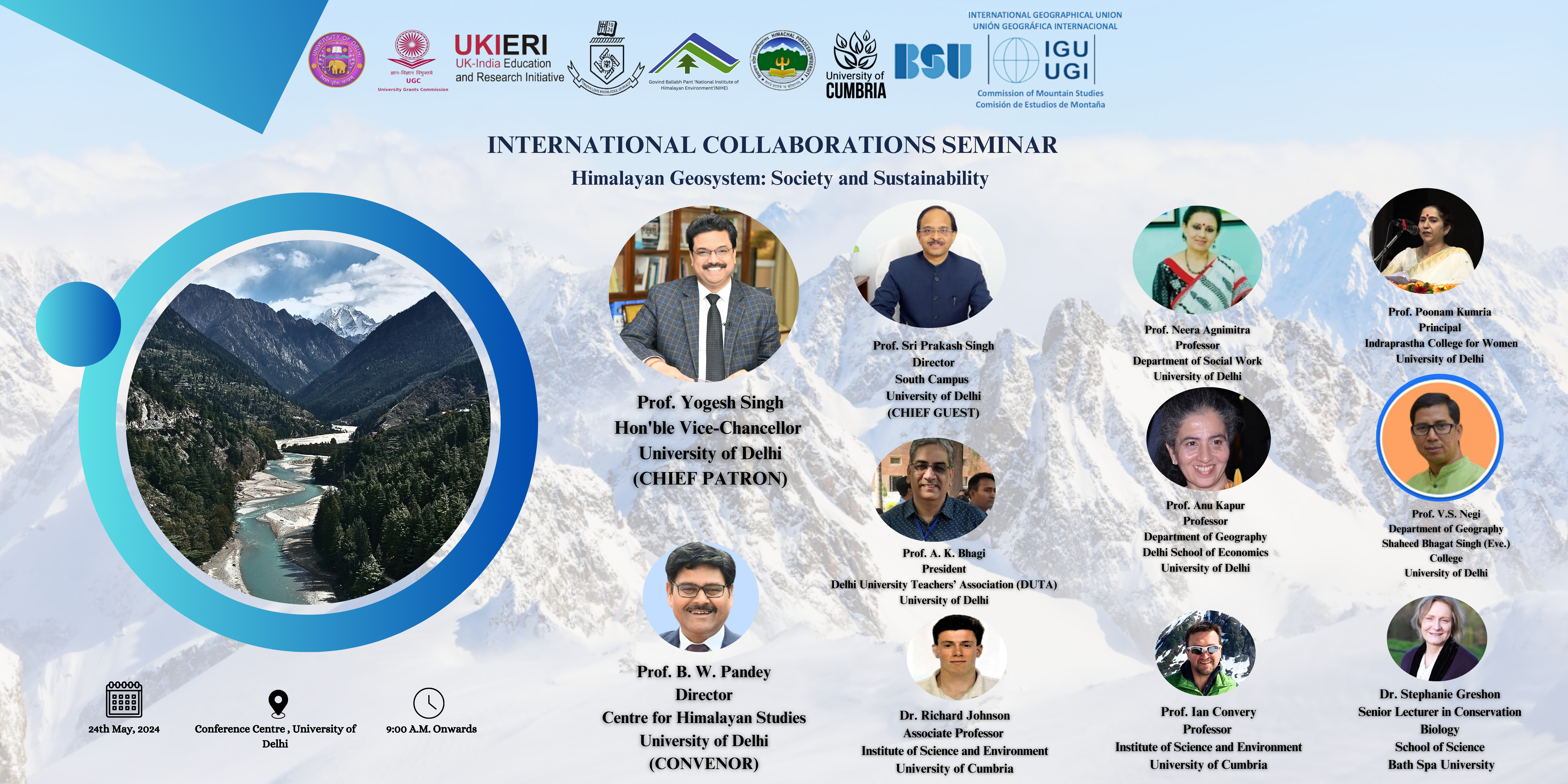
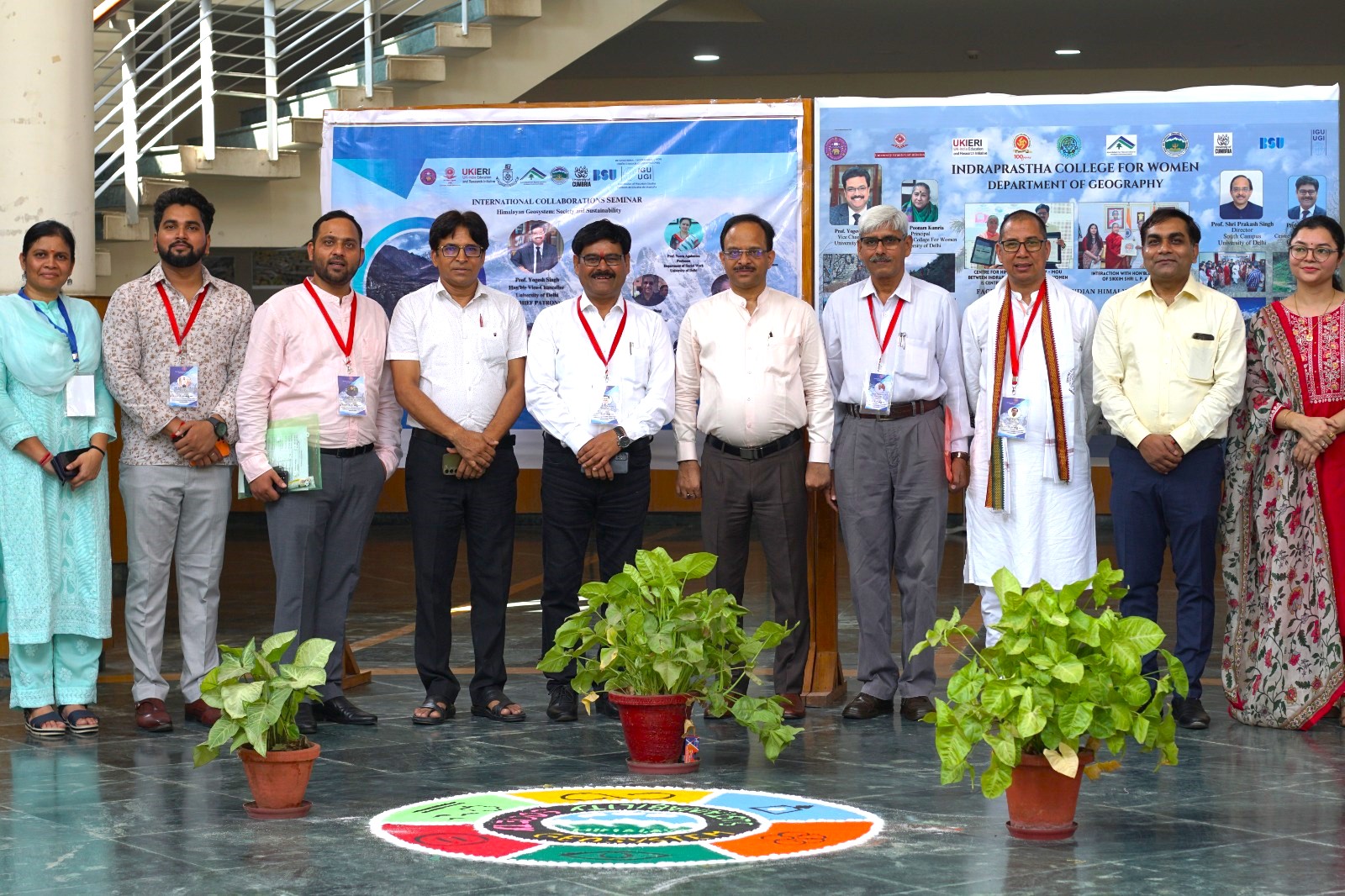
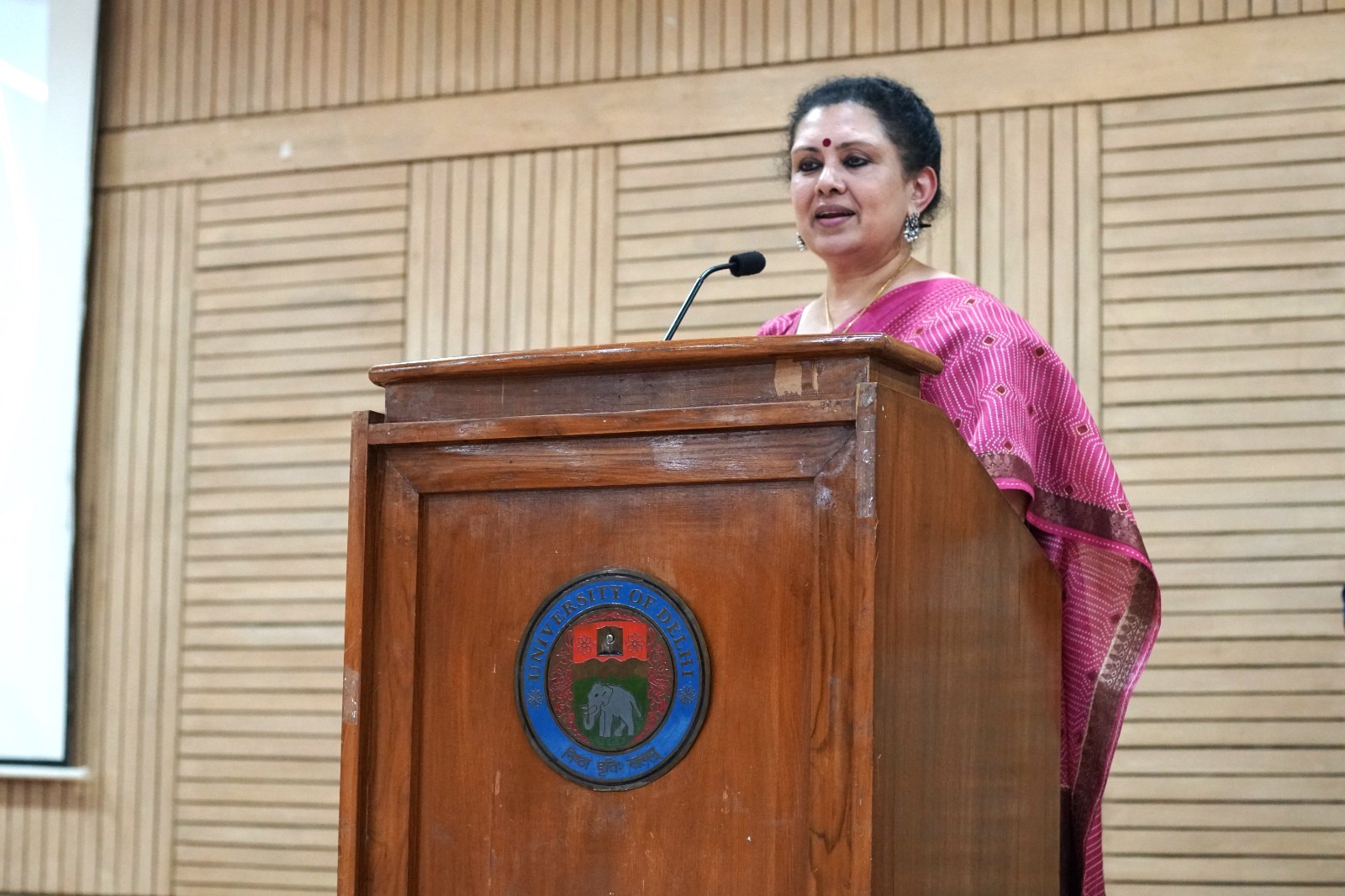
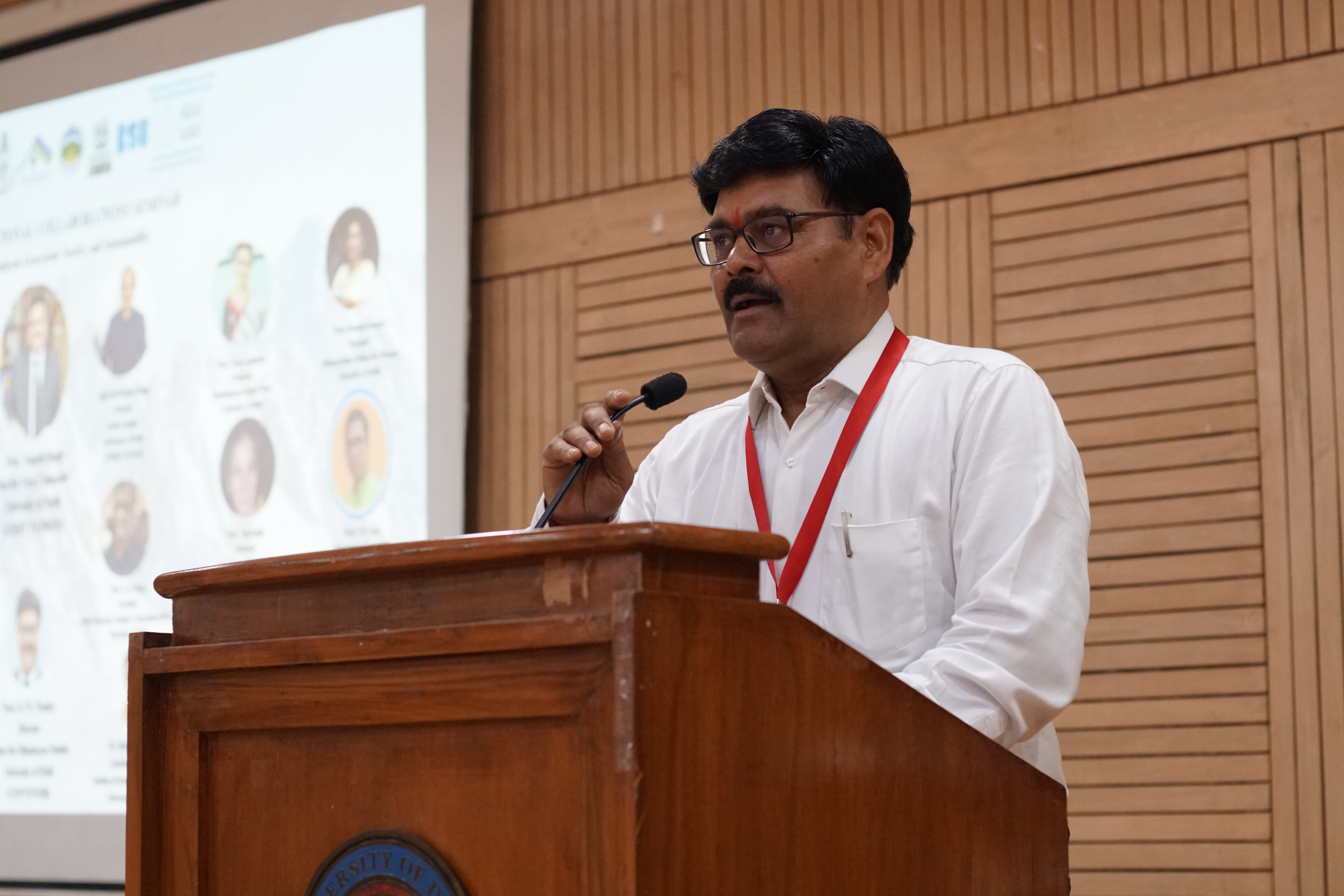
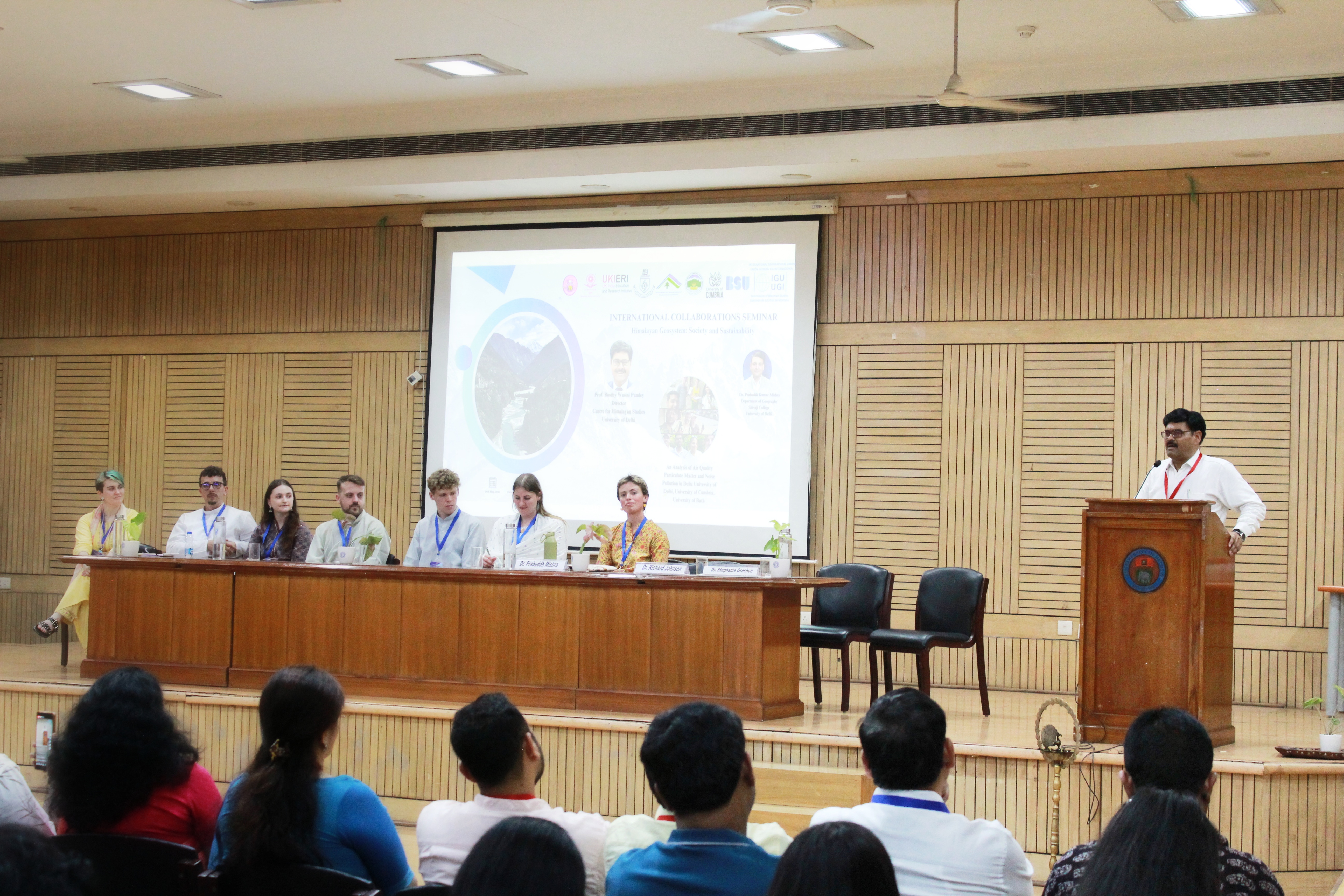
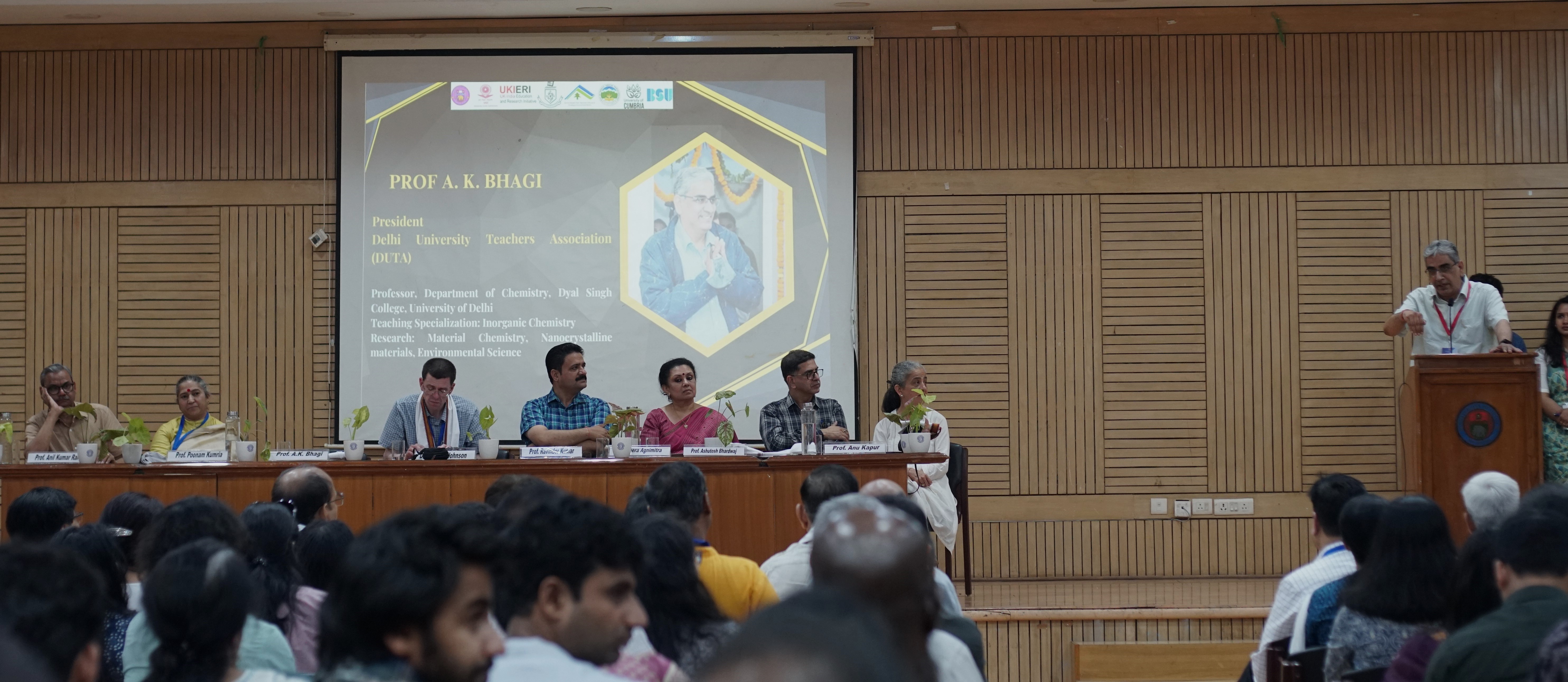
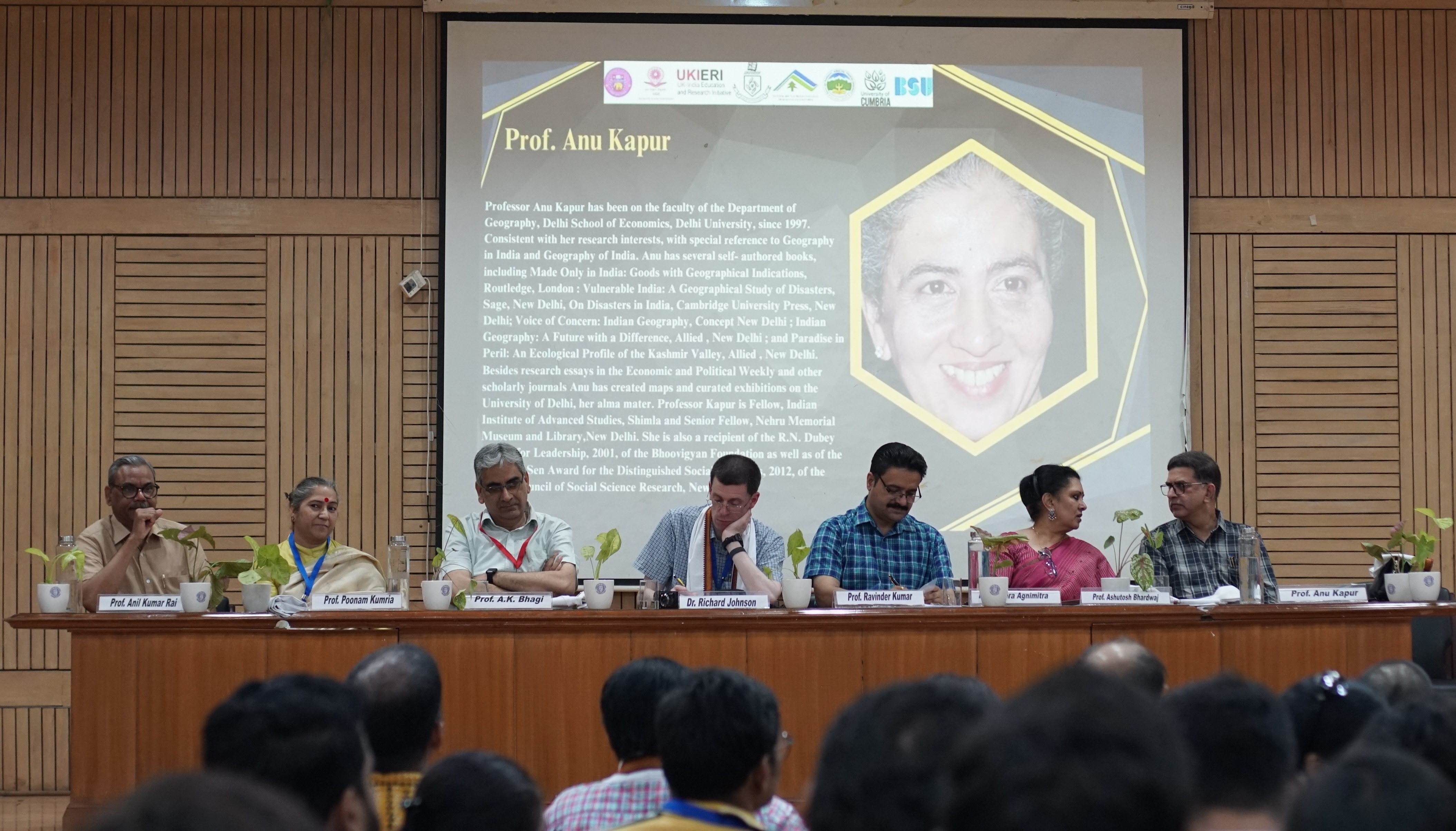
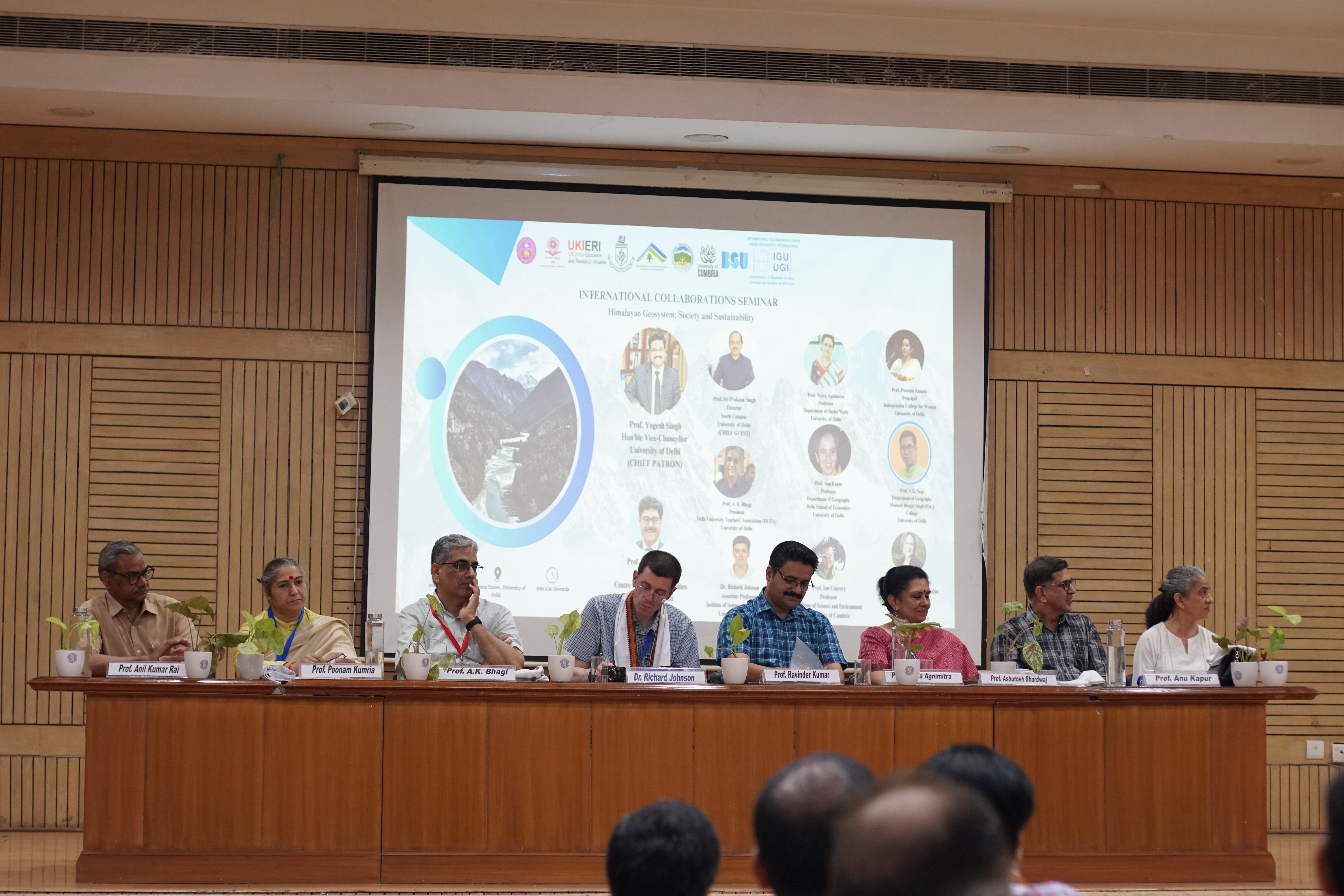
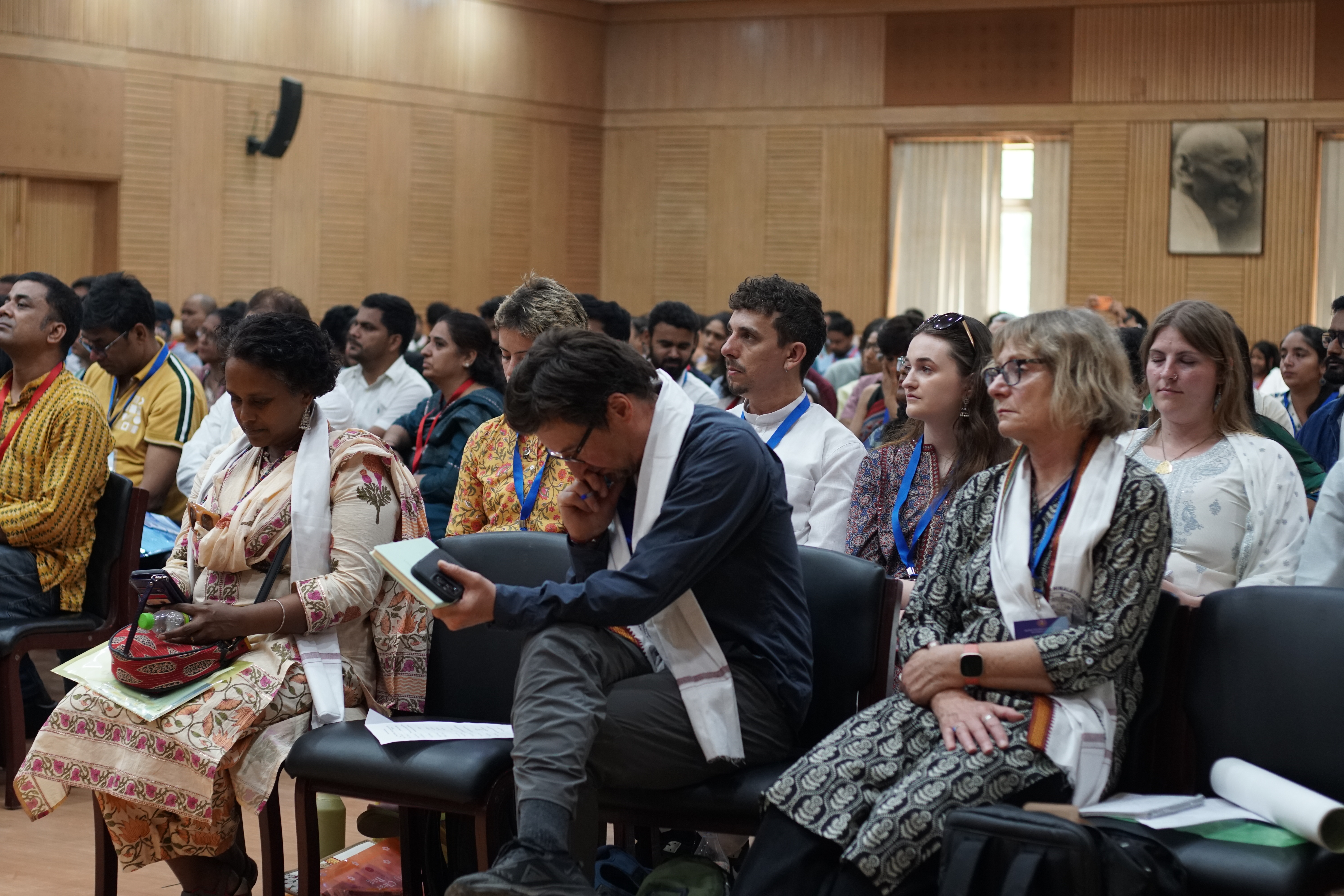
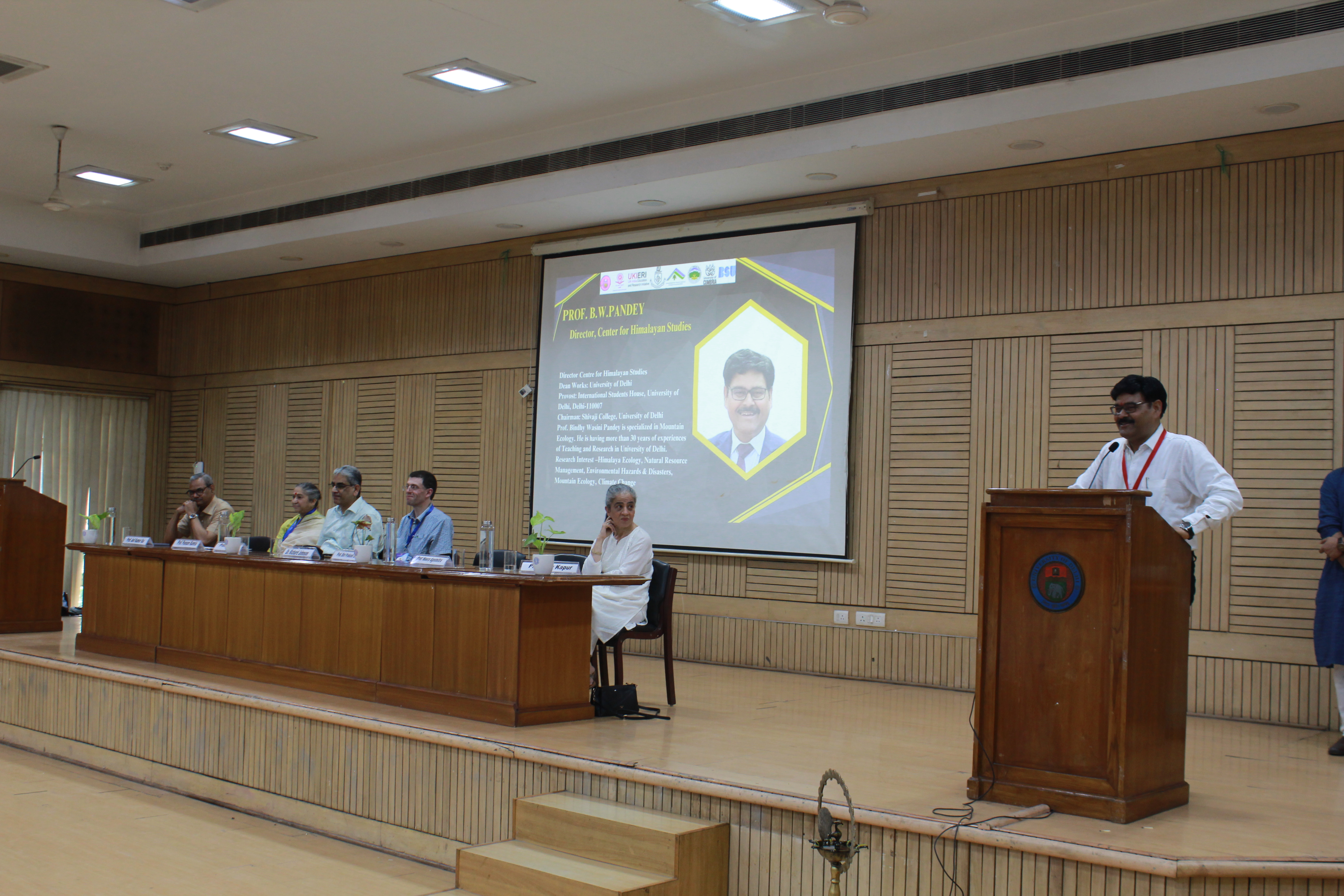
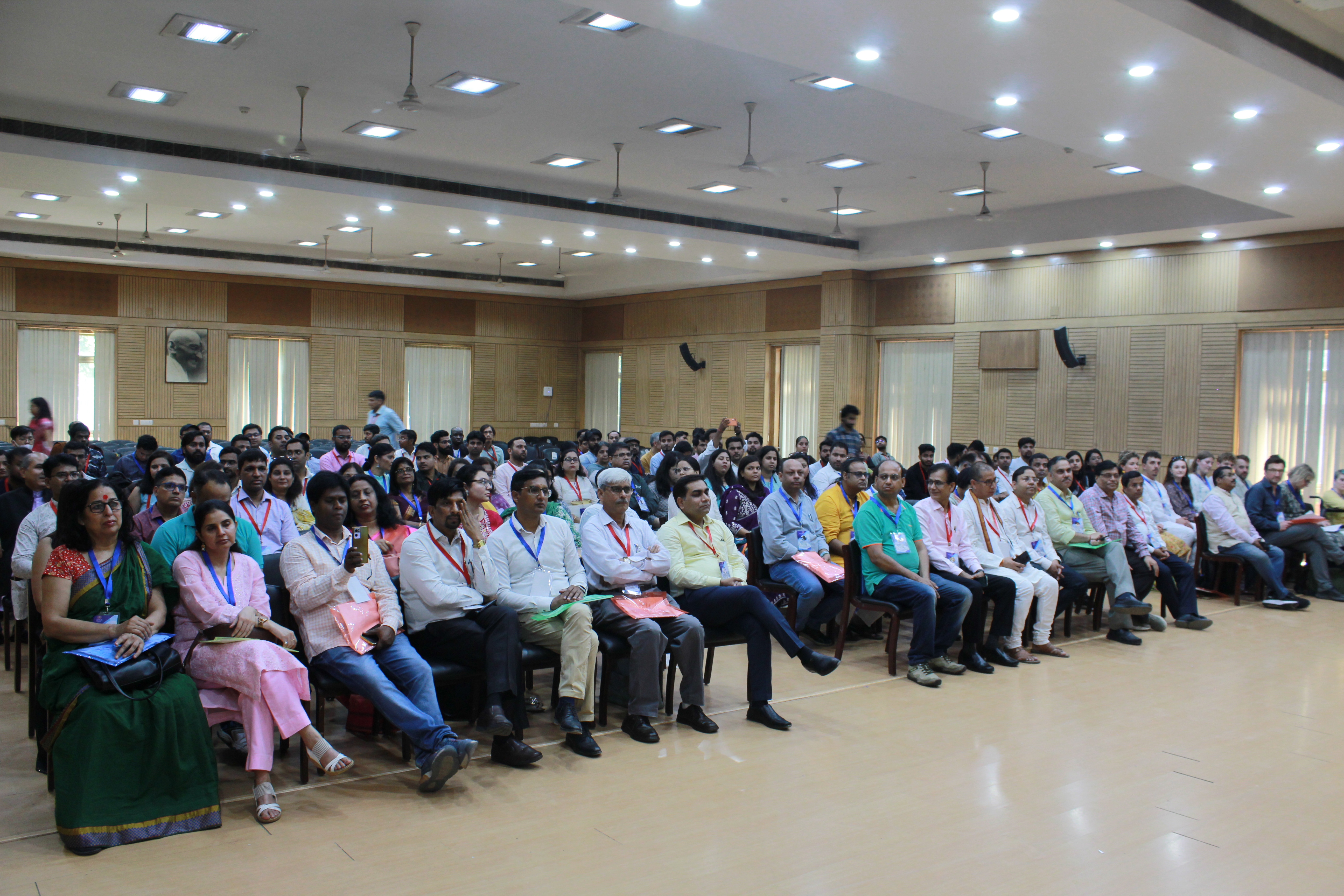
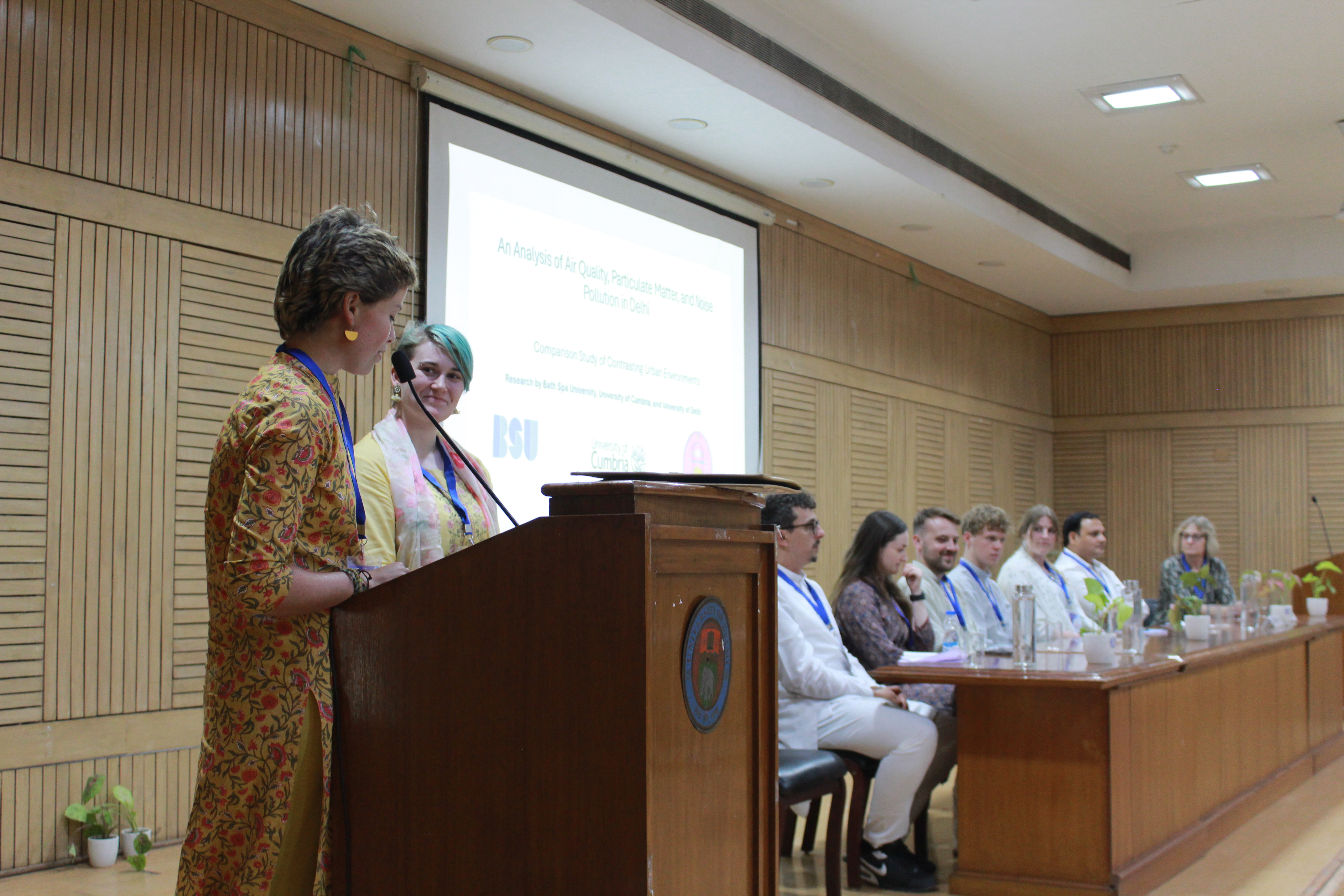
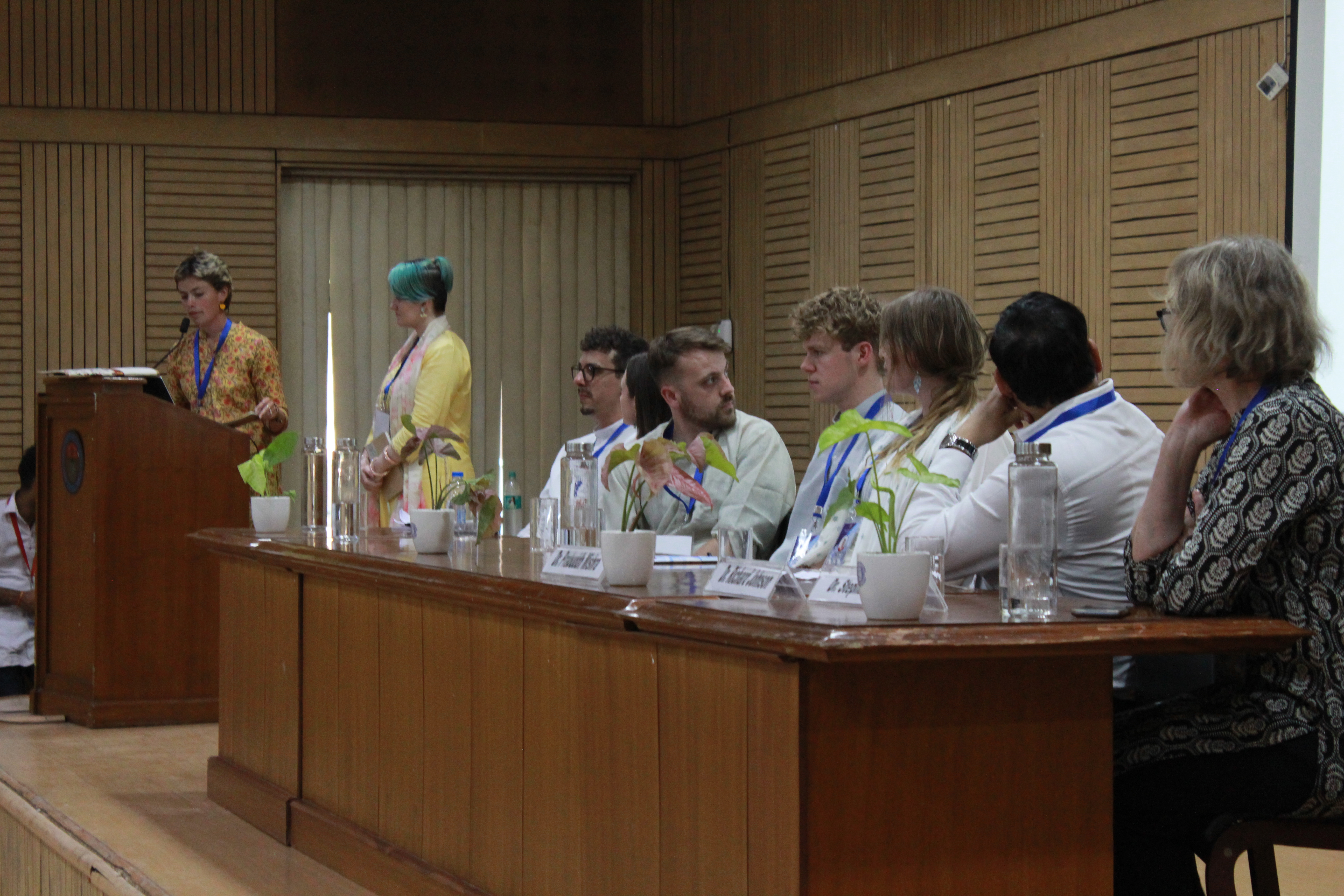
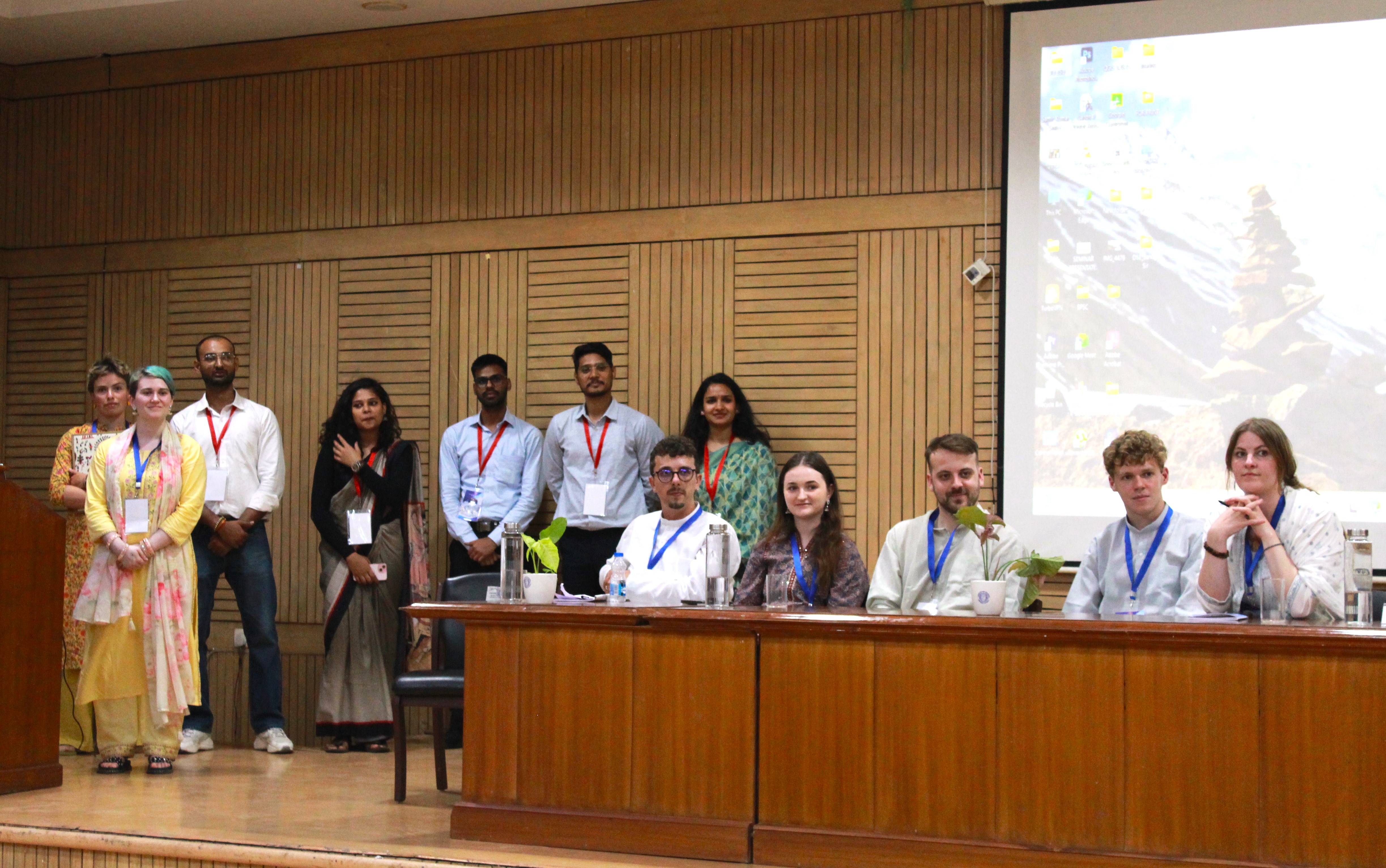
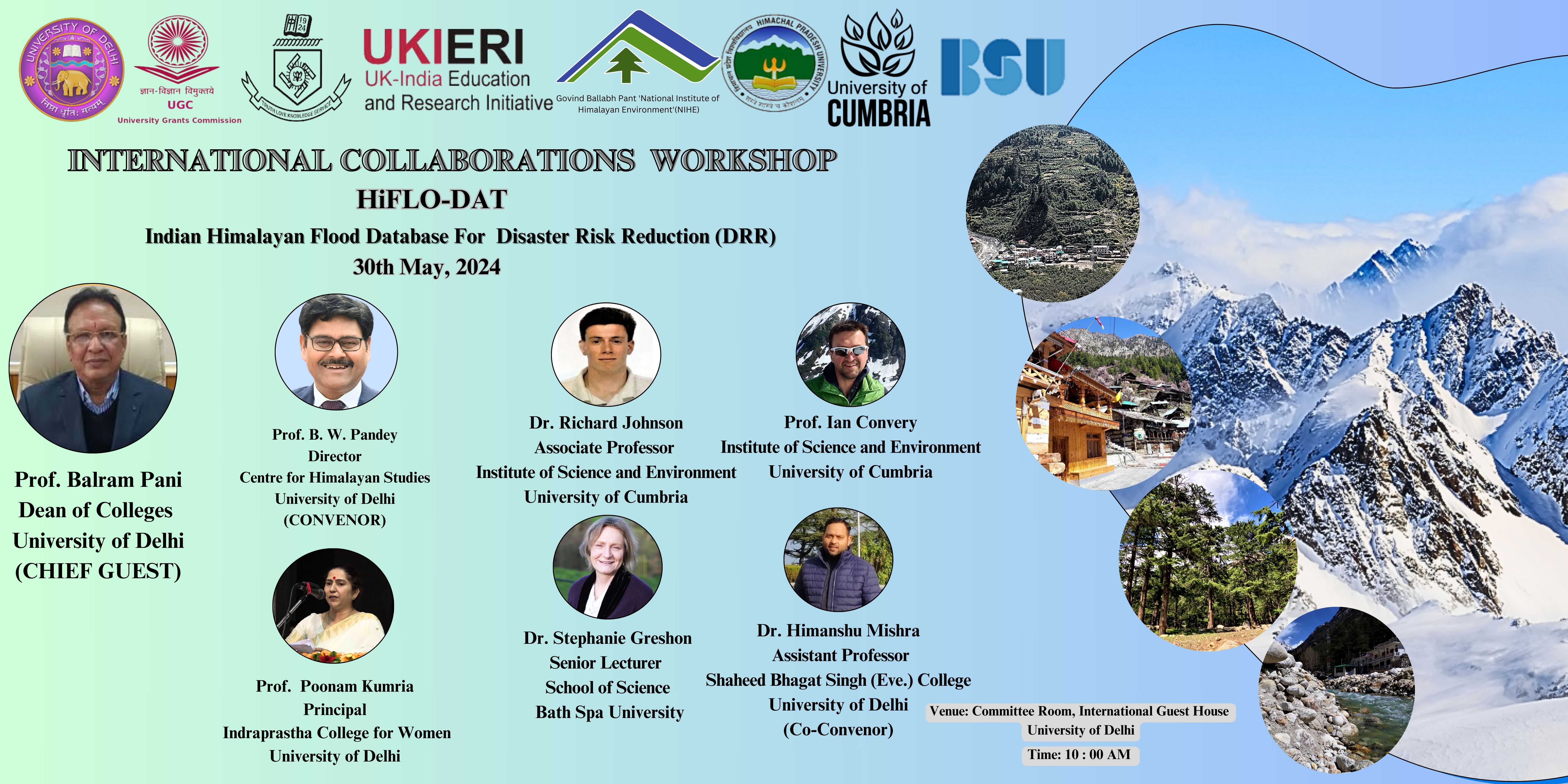
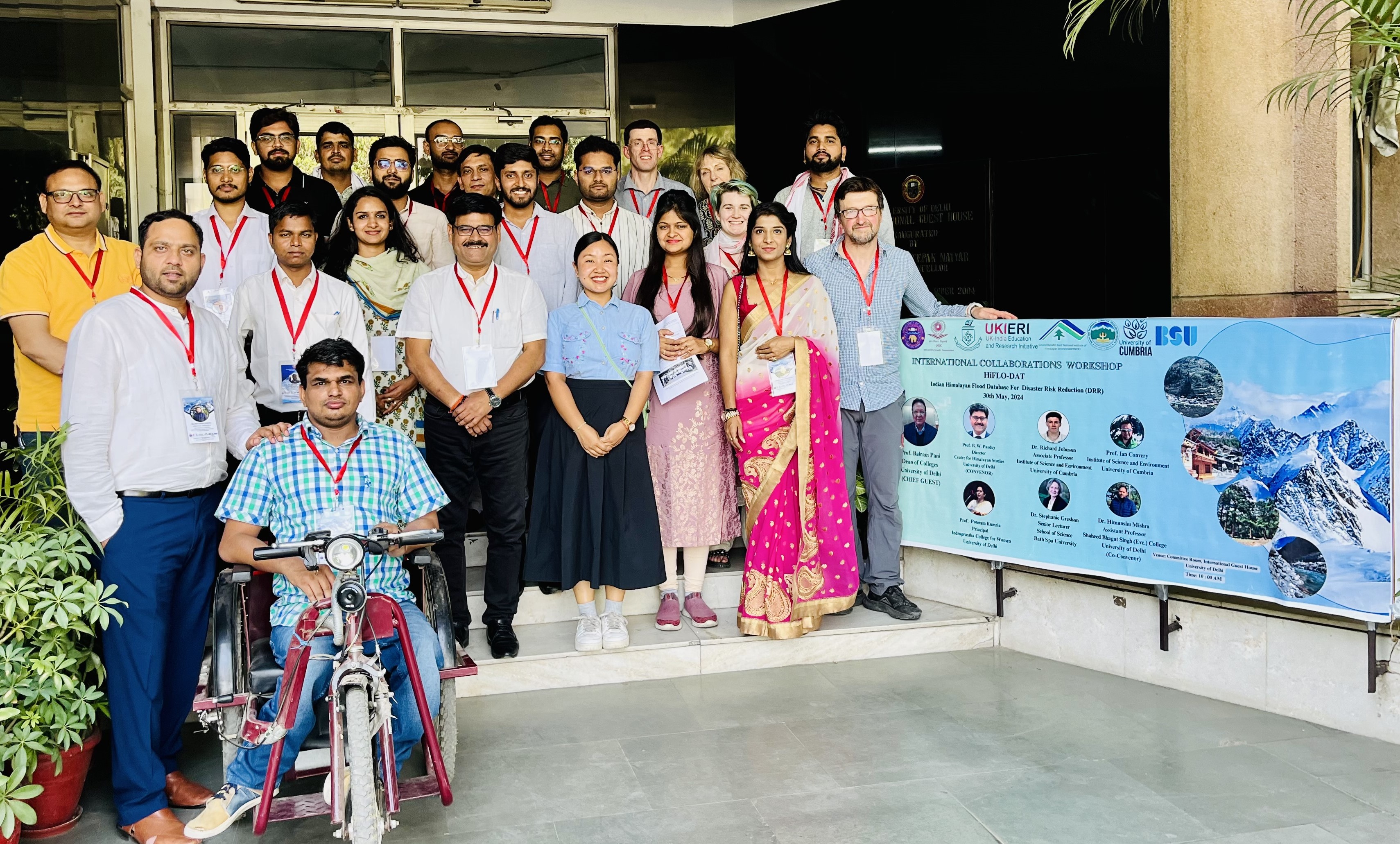
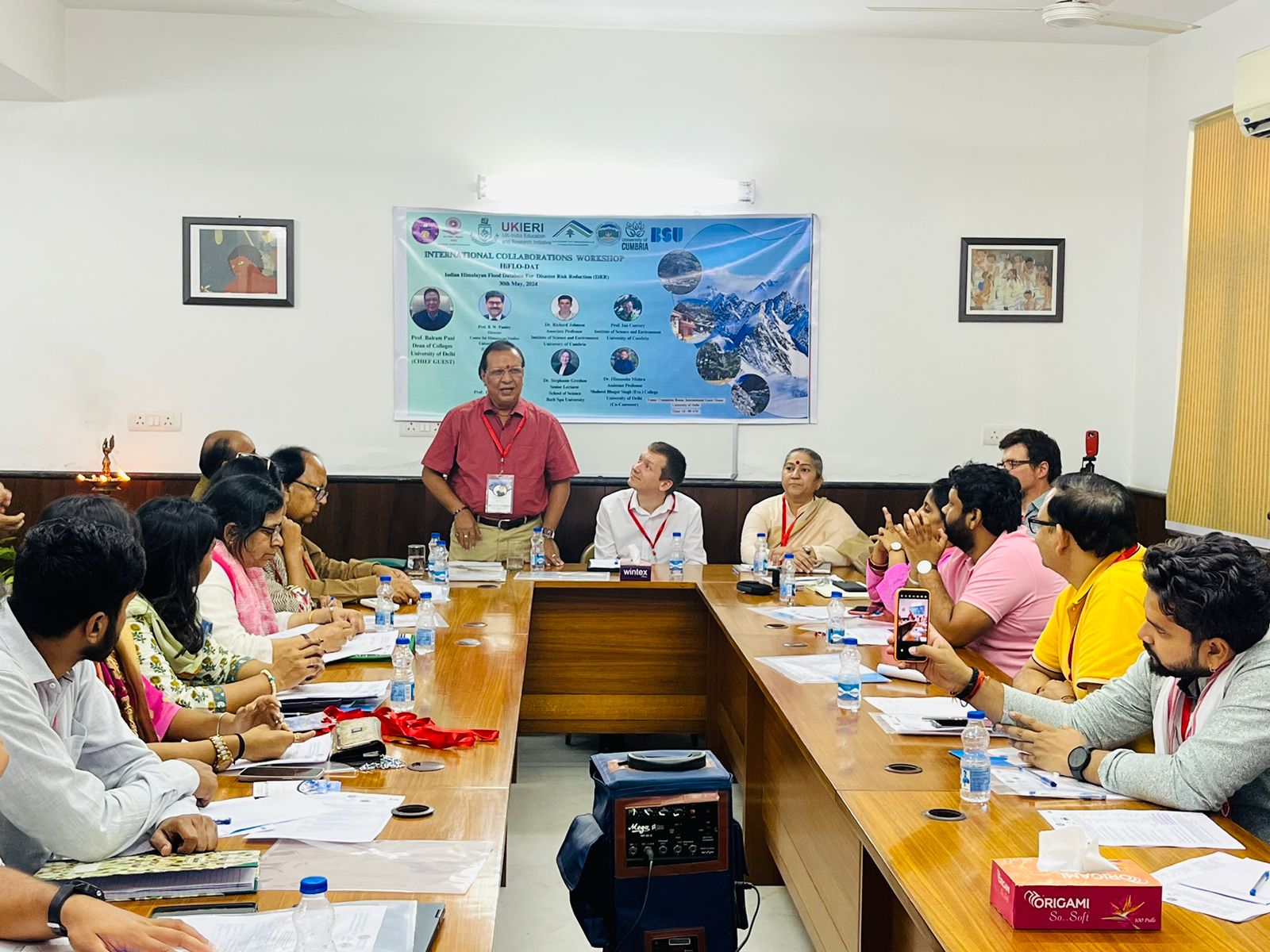
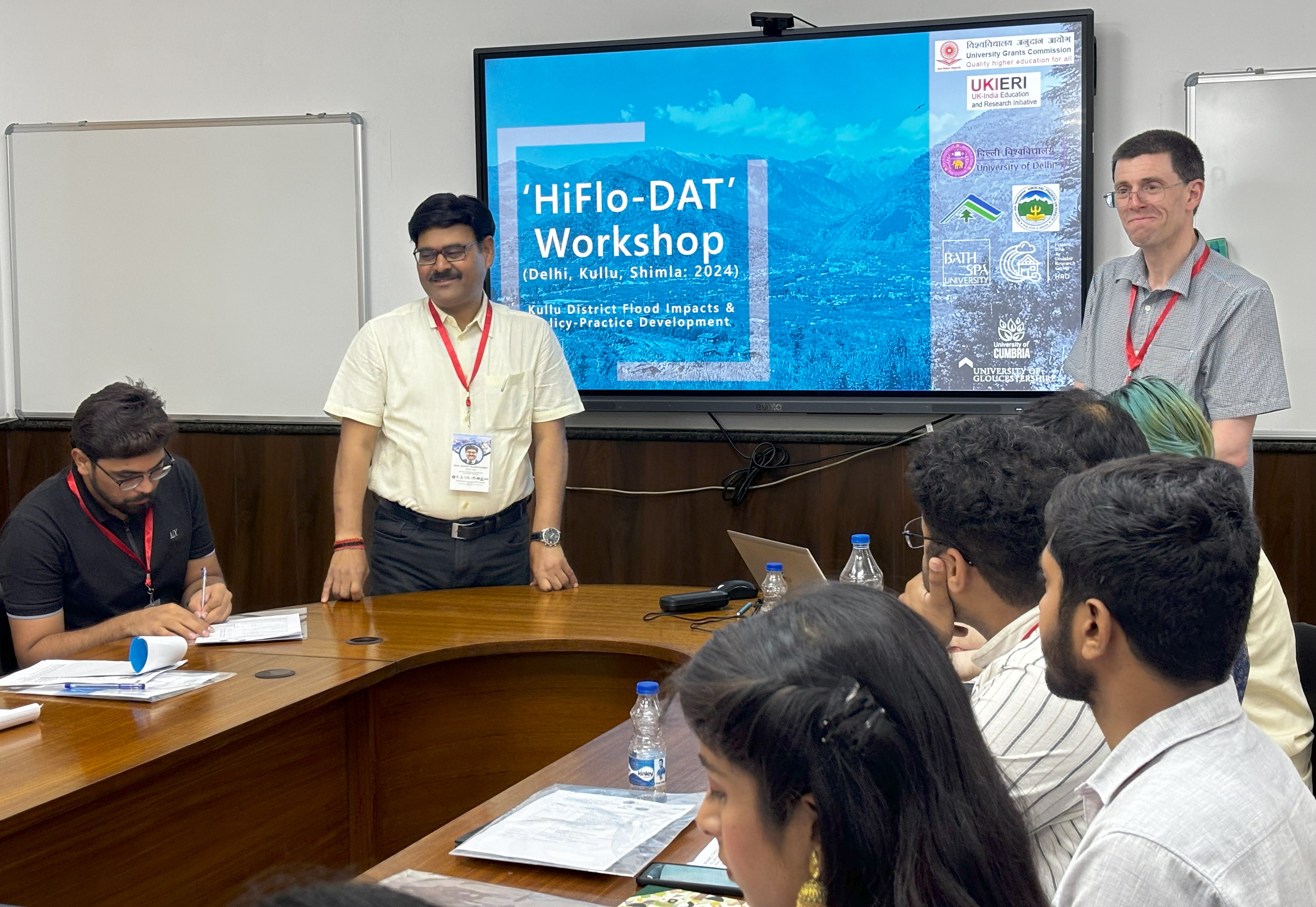
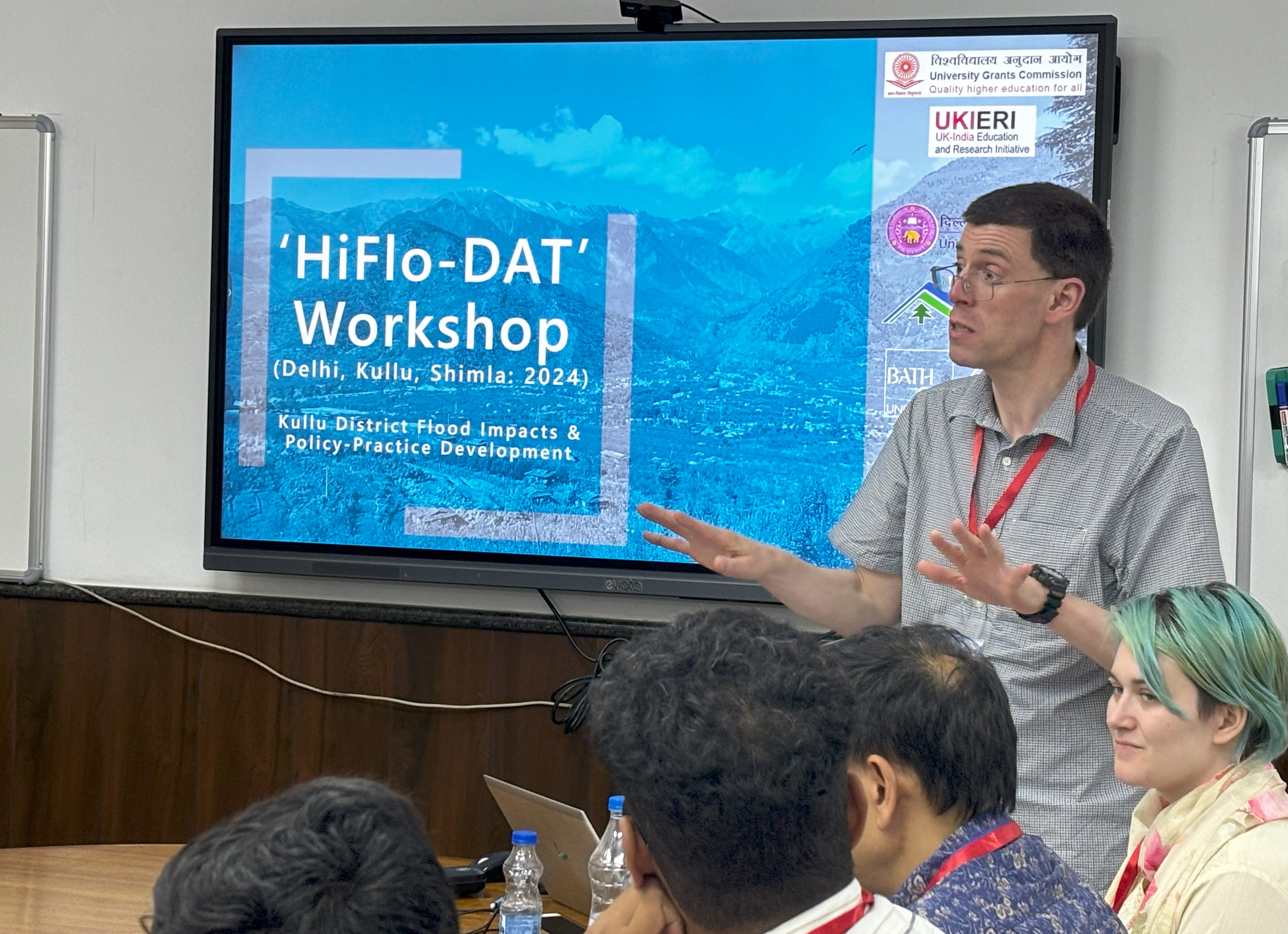
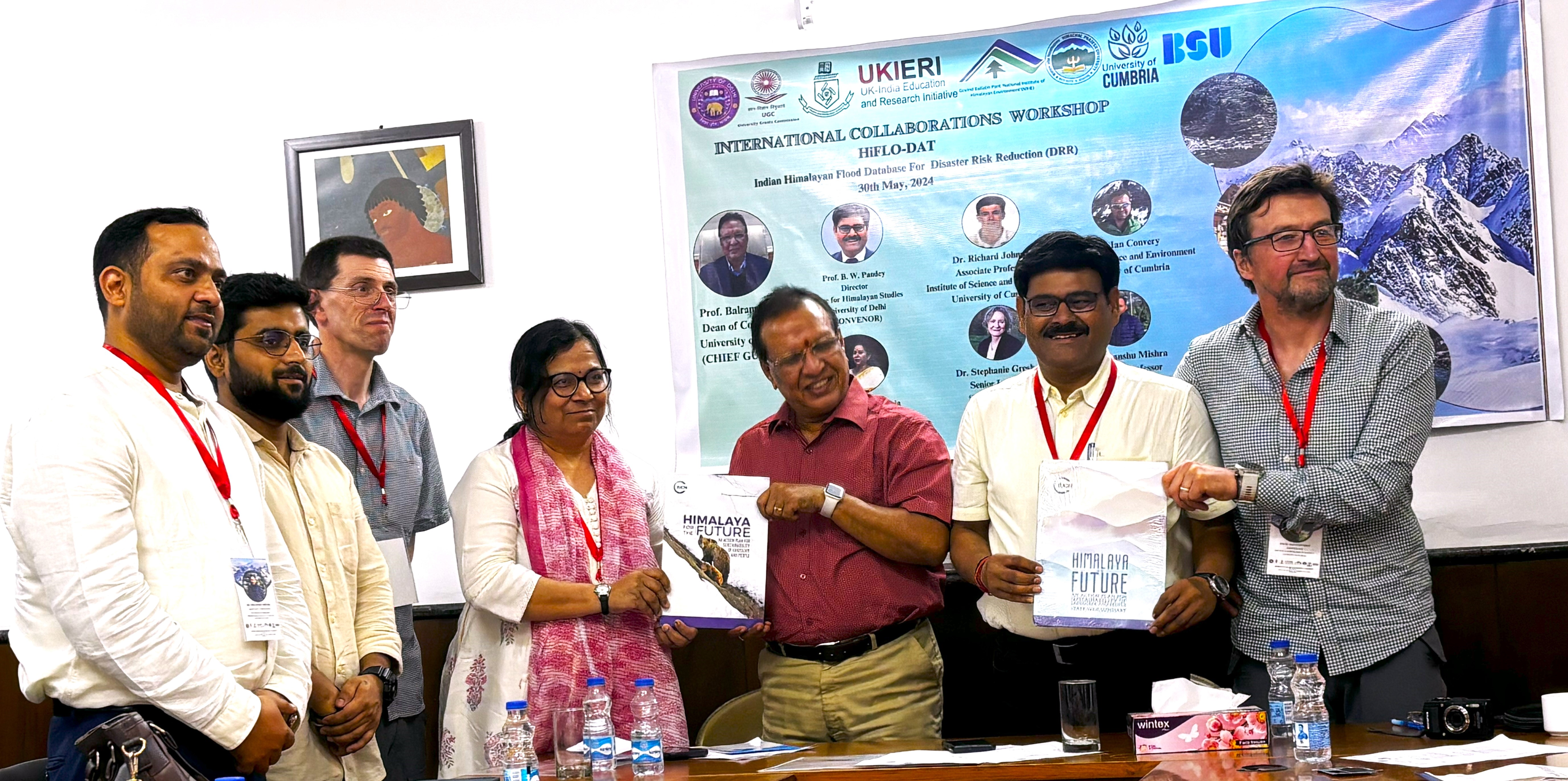
.jpg)
